- English (EN)
- Español (ES)
- Português (BR)

Is Dublin Safe? Crime Rates & Safety Report
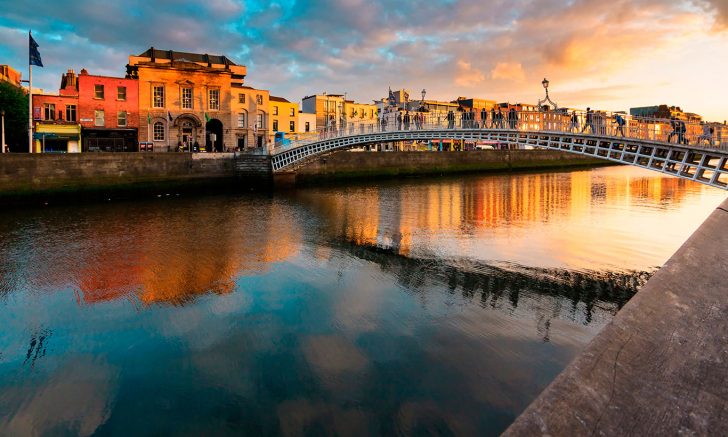
Ireland : Safety by City
Dublin is the capital city of Ireland and too large city for the size of Ireland.
Located on Ireland’s east coast and at the mouth of the River Liffey, Dublin was founded in 841, originally settled by Vikings.
The city expanded rapidly from the 17th century and became the second-largest city in the British Empire.
So, its history and tradition make it extremely attractive to tourists from all over the world.
Dublin is an ideal place for a family holiday especially for children who could be taken to the Dublin Zoo, Stephens Green Park or Phoenix Park.
Ireland will be an ideal spot for both experienced and inexperienced travelers to discover something new.
- Warnings & Dangers in Dublin
OVERALL RISK: LOW
When it comes to safety in Dublin, the area near the brewery is generally safe. The most common crimes in Dublin are theft and pick-pocketing. Nevertheless, most visitors experience no difficulties here. You should take sensible precautions to protect yourself from possible criminal acts against you.
TRANSPORT & TAXIS RISK: MEDIUM
Dublin has heavy traffic, and many accidents occur as a result of this. Tourists should know that in Dublin cars drive on the left, so you need to look both ways before crossing the street. Helmet and lights are necessary if you cycle and it is safe to cycle at the edge of the road and in bus lanes. Taxis can be recognized by a yellow roof plate and each registered taxi driver should have an ID card and license clearly on display. Taxi drivers are generally safe and honest in Dublin.
PICKPOCKETS RISK: MEDIUM
Pickpockets operate at Connolly Railway Station, Heuston Station, and Grafton Street. The area around Temple Bar is attractive for tourists, as well as pickpockets. You should be watchful of car thieves as well, who are particularly quick to spot unwary tourists and attack them.
NATURAL DISASTERS RISK: LOW
The only possible natural disaster in Dublin is flooding during the spring. There is no risk of other hazards.
MUGGING RISK: LOW
Mugging is very rarely reported in Dublin. The chances of being mugged are almost zero percent and the kidnapping is also almost impossible. Even though this is a good situation, do not rely completely on it and apply all the things you can do to minimize the risks of becoming a possible victim.
TERRORISM RISK: MEDIUM
Terrorist attacks in the Republic of Ireland might happen due to the global risk of terrorist attacks, which could be performed in public places. Travelers might not be the direct target but might become victims if happen to be at the wrong place at the wrong time.
SCAMS RISK: LOW
It can be said that there are almost no scams in Dublin. Since many tourists are taking the money out of ATMs, scammers might try to take advantage of that, so take money from the ATMs in banks and shopping centers. Unemployment is at a high level, thus there is a possibility that groups of young boys and girls mess up with tourists.
WOMEN TRAVELERS RISK: LOW
Even though the risks for female travelers is low, taking normal safety precautions is necessary, since there are some reports of sexual crimes being on the rise in Ireland.
- So... How Safe Is Dublin Really?
When speaking in general, Dublin is a very safe city.
Certain petty crimes are possible, such as muggings, and robberies, which have been known to occur in Dublin.
Be very careful while in Grafton Street, which is a place frequently visited by tourists and pickpockets as well.
As in any city, there are areas to be avoided, full of junkies and criminals.
In Dublin, as in any other European capital city, you should be watchful, vigilant and be aware not to walk into some bad areas.
Avoid staying on the street late at night when drunk people express violent behavior and crime are most likely to occur.
If you do get into any kind of trouble, never be afraid to approach Gardai, the police officers whose job is to help.
- How Does Dublin Compare?
- Useful Information
Whether you need a visa for entering Ireland or not, depends on your nationality. Your passport should be valid for the proposed duration of your stay. Ireland is a member of the Common Travel Area, so British nationals would not need a passport to visit Ireland.
The Republic of Ireland belongs to the European Union and the official currency is the Euro. You should check before you travel whether your credit card is accepted there or not, but most of the Master card and Visas can be used in ATMs in Ireland.
Dublin has a mild climate, but the city is not especially rainy. Winters in Dublin are mild and snow sometimes occurs, but it is not very common, as a chilly rain and hail. Summers in Dublin are also mild with the average maximum temperature of 20°C. Be aware that the thunderstorms might happen in Dublin.
You can come to Dublin via Dublin Airport, Belfast City Airport and Cork Airport. Dublin is served by Ryanair, Ireland's second airline and Europe's largest low fares airline.
Travel Insurance
Ireland might be very safe, but the accidents cannot be predicted, so before coming there, take the travel insurance policy that would cover medical help and theft.
Dublin Weather Averages (Temperatures)
- Average High/Low Temperature
Ireland - Safety by City
Explore dublin.
- Top 6 Stay-Like-A-Local Airbnbs in Dublin
- Where to Next?
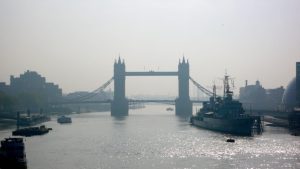
28 Reviews on Dublin
Open drug use..
Dublin has a very visible problem with open drug use, with the two needle exchanges being located in the city centre. Users usually congregate from the Middle Abbey St. section of O’Connell St., towards the river and along the quays. They can be seen in doorways, on bridges and bus shelters. Every shop in Dublin has security guards, often multiple security staff to prevent thefts and violence from the addicts. Police presence is minimal, much lower than any other European Capital, you are unlikely to find members of the Gardaí Siochana (Irish Police) on patrol, outside of responding to traffic incidents.
I totally agree with you, I was in Dublin last weekend I found it to be a very violent city. Please beware travelling to Dublin you could find yourself in a lot of trouble very quickly.
I’ve lived in Ireland all my life and in Dublin for 20 years and I don’t recognise your description of the city. Dublin is like any major city. If you take reasonable precautions, you don’t have anything to worry about. I’ve travelled a good bit and I feel safer in Dublin than in most cities. I’m female and I’ve wandered around the city on my own for years without ever having any problems. A few people I know have been pickpocketed, usually in pubs, but that could happen in any city. There definitely is a drug problem here but if you don’t go looking for drugs, why would it affect you? It’s never affected me or anyone I know. There are areas I wouldn’t set foot in but they’re not anywhere near the tourist areas so why would a tourist even see them? One thing I have noticed is a lot of tourists tend to stay in Dublin 1 or Dublin 7. These areas are within walking distance of the city centre. They’re fine during the day but personally I would try to avoid walking around them at night. I have walked through them at night and had no problems, but they don’t feel safe. I’d stick to the south side, probably Dublin 4 or 6 as they are within walking distance of the centre or else I’d use the dart line (public transport – like an overground underground) and stay by the coast e.g. Blackrock, Killiney, Dalkey etc. (Might be best not to stay in Bray. The coastal walk there is one of my favourite places but I’ve heard parts of Bray can be dodgy at night). Some of the wealthiest people in Ireland live in Killiney/Dalkey and the wealthiest places in any city are usually the safest.
Be careful of Taxi drivers. I forgot my phone in one and had to pay the taxi driver 30 euro to deliver it to me. Obvious scammer.
I am wanting to plan my 1st out of country trip(USA) to Dublin. Do you have recommendations on safe places to stay? Do they have AirB&Bs? Is it easy to rent a scooter or bike for day travel?
In Dublin there are county bikes you can rent for the day (government has these bikes for people to rent in certain areas), but generally, you won’t need it as everything in Dublin is a stones throw away from everything else.
I do recommend avoiding taxi’s as the fares can vary from one to another, and can be expensive, so use the Bus, DART, and Commuter instead, and any other form of transport ig necessary.
Air B&B’s are available throughout Dublin, I’d recommend getting one in South Dublin, so places like Dun Laoirghe, Dalkey, Ballsbridge etc.
hope this helps from a native Irishman.
why Dublin ,, too risky and if you are flying to Ireland , spend as little time in Dublin as you can , its infested with petty criminals muggers druggies shoplifters ,,, 2 days should e ample time there , its not NY or LONDON ,, get to the provinciall cities and town right down the Atlantic coastline ,, that will be a treat ,,,
Clontarf or raheny
Clontarf is much nicer and generally safer
Drug-related issues and anti-social behaviour
Unfortunately, there is a lot of drug-related issues and anti-social behaviour. Also, muggings have become very high recently in 2020. No matter where you put your bicycle in the city centre, it will be stolen, and, if they couldn’t do it, they would damage it.
Homeless can be too pushy and physical when asking for money. In a lot of cases, they would through the food given to them and ask for money instead. Drugs are offered to people walking everywhere in the city.
Extremely difficult to find decent size accommodation, costly. The youth in Dublin city centre and Dublin 8 area as well as public transports can be a pain in the neck. They would throw eggs, bottles and some food at people passing by. The police do nothing to stop these actions at all. Also, breaking supermarkets windows is their favourite game.
I have been living here for 6 years. I can’t wait to leave.
Drugs rampant
Massive drug problems in dublin. Drug dealers operating openly on street corners. Junkies shooting up in every alley. Drug dealers and users threatening people on the streets, they seem to have no fear of the police. I’ve been to dublin 6 years ago and loved it. It’s awful how dirty and dangerous it is now. Won’t be going back.
Drugs related, homelessness, unsanitary conditions, physical assault and public harassment has become a major hit during the pandemic. The government and the police won’t do anything to protect the rights of the citizens. I am leaving the country this summer. Beautiful city, lots of nature but because of both corrupts government and useless police force, the city has turned into a 3rd world country.
Amazing City and experience. Felt very safe and enjoyed the warmth of the locals living in the City. Will definitely be back again.
For the capital of one of richest country in Europe it is unbelievable: Homeless junkies everywhere, even kids mug and assault people. Local police, the Garda, rather harasses ordinary people enjoying a glass of wine in the park on a nice day than deals with the criminals. The government is corrupted to the bone and the result can be seen on the streets.
Exponential
It’s true this city keeps on getting bigger. It is actually doubling in size.
I live here
Dublin isn’t safe at all. I’m 20 and have been constantly public harassed since I was 10 here. A lot of people my age and younger tend to carry weapons or things they can use as weapons. If you’re not Irish or are a woman it isn’t safe
I’m an Irish man and I don’t feel safe here. I’ve been harassed and threatened and had eggs thrown at me.
I was seriously planning on visiting Dublin. I am from South Africa. Reading this feedback reports it sounds like where I am from here in South Africa. Apart from the problem children and muggings and the open drug use. That ain’t happening here in SA. I want to thank the people for your honesty and trustworthy words of advice. Upon reading this, I’d rather take my money and my time somewhere else.
Which reviews did you read? They varied hugely. This is not surprising or new – Aesop, the famous Greek storyteller, was sitting by the road one day when a traveller asked him, “What sort of people live in Athens?“ Aesop replied, “Tell me where you come from and I will tell you what sort of people you will find in Athens.” Frowning*, the man replied, “I am from Argos and the people there are most unpleasant.” “I am sorry to tell you,” said Aesop, “that you will find the people in Athens much the same.” A few hours later another traveller came down the road, and he too stopped and asked Aesop, “Tell me, my friend, what are the people of Athens like?” Again Aesop replied, “Tell me where you come from and I will tell you what sort of people you will find in Athens.” Smiling, the man answered, “I come from Argos, and the people there are very pleasant.” “I am happy to tell you, “said Aesop, that you will find the people of Athens much the same.”
Dublin is fabulous
Trust me, go to Dublin and travel around Ireland. The reports on here are hyperbolic nonsense. Dublin is a beautiful city, full of arts and culture. The Abbey Theatre, The Chester Beatty, The National Gallery has one of the finest collections in Europe, the Hugh Lane, Trinity College and the Book of Kells. Dublin is also the tourist gateway to some of the worlds most beautiful natural wonders & ancient monuments. Newgrange less than two hours from Dublin city centre is a marvel built before the pyramids. The people of Dublin are gorgeous and friendly. Of course there are chancers on the margins, like any town or city but if you have travelled anywhere in your life you can spot them a mile away. I’m sure in your home town you know one if you see one. I lived in Dublin for two years. I’m Australian. I’ve can honestly say I have met and made lifelong friendships with lovely Dubliners. Their hospitality is second to none. Seriously, If you take Ireland off your bucket list because of fear monger rhetoric, you will miss out on one of the most extraordinary countries in Europe. Have courage fear not. Good luck 🍀
Beautiful city
Don’t listen to other reviews critical of this beautiful city, of course it has homeless and drug use just like every other major city in the world but it is very good with lots of life and enjoyments . I been here many times and loved it
There is more than one "Dublin"
Having lived all my life in Dublin, I am surprised by how many reviews describe Dublin as infested with criminals! Certain parts are safer than others – this is true of any city. But if you are sensible, I imagine you will be as safe in Dublin as anywhere else. Some personal opinions: 1. The atmosphere is different on each side of the river Liffey. The north side is rougher/less safe – that is a broad generalisation, but I am sorry to say it’s true. 2. Having said the above, the wonderful Gate Theatre and the Hugh Lane Gallery are on the north side, as is Dublin’s best restaurant (Chapter One). 3. The nicest part of the city (for me) is around Stephen’s Green/Dawson Street/Merrion Square. 4. Grafton Street used to be a lovely place to promenade, but it has suffered during the recent recession and is less special than it was. The streets off it are more interesting. 5. The Guinness brewery is in a neighbourhood with some economic challenges – I would be a little more alert around there. It’s hugely popular though and should be no problem to visit. It’s reasonably close to the Museum of Modern Art – good to pair them up on an afternoon. 6. Dublin has a very good café culture – for example around South William Street and Drury Street – if you like to sit out and people-watch, you are in luck. 7. Dublin also does “old” very well – the two medieval Cathedrals are lovely. 8. Late at night you need your wits about you, but I suspect this is true whatever city you are in. Stick to busy areas – if nobody is about, there is a reason for it. 9. Do get a guide book. You will have fun in Dublin if you do your homework first. I hope this helps.
My Dublin thoughts
As someone who visited Dublin in summer last year (2022), I think most of your points are quite accurate.
While I saw some suspicious stuff during my stay and some parts of the city are certainly rough around the edges, it was very far from the 3rd World dystopia some comments describe here. It has many pleasant and worth visiting places; if you stay on guard, use your common sense and stay away from shady areas and people (just like you should in any other big city) you will be fine.
The city keeps on changing and nothing seems the same
It’s sad that a beautiful city has become a disgusting cesspool. Over the last 30 years this place has hit bottom! Be careful. It’s not safe. Visit other parts of Ireland. Liberal loons think it is fine…but it’s not. Run!
It has its things, but seriously it is not a third world country. Common sense is what you need, and you will be grand. If you think Dublin is violent or dangerous, take a trip in the continent.
Local review
Dubliner here in his 40s. Loved my whole life here. I can tell you it’s not as bad as people make it sound but I can see how you might have that experience. However it is NOT the city I grew up in and not worth the stupid costs. Successive governments have turned this once amazing city into a cultureless kip. Everything that gave it’s unique character is gone, or at best replaced with leprechaun tourist versions of it. I sound old but I can’t explain how different it is, everything from the sense of humour down to the accents have changed and it was always tough but not in this way, starting to feel like a slum. As one commenter said “liberal loons think it’s ok”. I grew up thinking I was a liberal but I have to agree with him, they’ve absolutely destroyed the place. Mad house. It’s not that dangerous if you know where to go, but you could easily end up feeling like you took a wrong turn. More on point though, it’s not worth your money, over priced and same s**t lifestyle you’ll see in every western city now. As for rest of Ireland, meh it’s ok, bit better but on the same track. Also can get pretty boring there if you stay too long and experience is very dependent on weather.
Dublin is not safe. The biggest danger is groups of teenage boys. No matter where you go, you’ll see groups of teenage boys who harass, intimidate, threaten and attack people who look like easy targets, without provocation. Police presence is minimal. If you are attacked, it is unlikely that police will be nearby or respond in time to help you. I’m sorry to say this, but groups sociopathic, feral teens have destroyed this city. I would advise staying away from Cork and Galway for the same reason. Smaller towns and rural locations are much, much safer but our cities are like Gotham.
Share Your Experience Cancel reply
Your Review
Title of your review
Article Contents
- Dublin : Safety by City
- Overall Risk
- Transport & Taxis Risk
- Pickpockets Risk
- Natural Disasters Risk
- Mugging Risk
- Terrorism Risk
- Women Travelers Risk
- Weather Averages (Temperatures)
- User Reviews
- Share Your Experience
Popular Destinations

Safety Index
Recent reviews & comments.
- Anonymous on Venezuela
- Sam on Stockholm
- Jose Canete on Vietnam
- Kentson Anttila on 16 Pros and Cons of Living in Finland
- Michael Shapiso on Davidson
Popular US States
- Pennsylvania
Security Alert May 17, 2024
Worldwide caution.
- Travel Advisories |
- Contact Us |
- MyTravelGov |
Find U.S. Embassies & Consulates
Travel.state.gov, congressional liaison, special issuance agency, u.s. passports, international travel, intercountry adoption, international parental child abduction, records and authentications, popular links, travel advisories, mytravelgov, stay connected, legal resources, legal information, info for u.s. law enforcement, replace or certify documents.
Share this page:
Ireland Travel Advisory
Travel advisory august 28, 2024, ireland - level 1: exercise normal precautions.
Reissued after periodic review without changes.
Exercise normal precautions in Ireland.
Read the country information page for additional information on travel to Ireland.
If you decide to travel to Ireland:
- Enroll in the Smart Traveler Enrollment Program ( STEP ) to receive Alerts and make it easier to locate you in an emergency.
- Follow the Department of State on Facebook and X/Twitter .
- Review the Country Security Report for Ireland.
- Visit the CDC page for the latest Travel Health Information related to your travel.
- Prepare a contingency plan for emergency situations. Review the Traveler’s Checklist .
Travel Advisory Levels
Assistance for u.s. citizens, ireland map, search for travel advisories, external link.
You are about to leave travel.state.gov for an external website that is not maintained by the U.S. Department of State.
Links to external websites are provided as a convenience and should not be construed as an endorsement by the U.S. Department of State of the views or products contained therein. If you wish to remain on travel.state.gov, click the "cancel" message.
You are about to visit:
Is Dublin Safe? What You Need To Know (2024)
Categories Travel Guides
Is Dublin safe? This question has been on the minds of many travelers, considering the recent global events and concerns about safety in major cities. In this article, we aim to provide a comprehensive and up-to-date analysis of the current safety situation in the vibrant and iconic capital of Ireland.
Dublin, Ireland’s dynamic capital, is a welcoming and exciting destination thanks to its fascinating history, unique culture, and friendly locals. This is a city that has something for everyone, from its historic buildings like Trinity College and Dublin Castle to its lively pubs and picturesque streets.
Nonetheless, Dublin has its fair share of safety concerns that locals and tourists alike should be aware of.
In this guide, we’ll learn more about the issue of safety in Dublin, and look into some tips for a risk-free trip to this beautiful metropolis.
Things you'll find in this article
Is Dublin Safe?
Public transportation, pickpockets, night safety, safe neighborhoods, dublin city center, blanchardstown, pearse street, west dublin, safety tips.
Related Read:
- Dublin Travel Guide: Best Places To Stay, Eat And See (For 2024)
- Dublin Tours: The 10 Most Unusual Tours In The City
- 3 Days in Dublin: Itinerary With Maps and Tips (For 2024)
- 10 Best Day Trips From Dublin (Cost, Transport and Tips For 2024)
- 10 Things To Do in Dublin With Kids (For 2024)
- 10 Free Things To Do In Dublin, Ireland (For 2024)
Yes! Despite its reputation as the least safe area in Ireland, Dublin is nevertheless a relatively safe location to visit. Plus, Ireland consistently ranks among the safest countries in the world.
The vast majority of locals are warm and welcoming, eager to help visitors feel at home during their stay. Most people want to lend a hand when they see that it is needed.
You shouldn’t be concerned about traveling to the city. Still, it’s necessary to take measures to protect your safety as you embark on any trip.
Safety Concerns In Dublin

Road congestion is a common problem in Dublin because of the city’s size and population. There are more vehicles on the roads during rush hour, and impatience can lead to accidents. Please be cautious when walking, driving, or bicycling near roads, and always look both ways before crossing.
Taxi fraud is an issue in some large cities, even Dublin, so be sure to only get into a legitimate cab. Taxi drivers are required to prominently display their licenses and identification cards, and their vehicles are easily distinguished by their distinctive yellow roof plates.
Pickpockets in Dublin target American visitors more than any other nationality. Keep your belongings to a minimum and your senses on high when you’re out and about in the busier parts of town.
Visitors, whether those going to sights alone or in large groups, should be on high alert. The areas, notably in the direction of Grafton Street, Connolly Railway Station, and Heuston Station, are home to a disproportionate number of crooks.
Dublin has not experienced significant terrorist incidents in recent years. The city has a generally low threat level when it comes to terrorism, and the Irish government has implemented robust security measures to ensure the safety of residents and visitors.
However, it is always advisable to stay informed about the latest travel advisories and adhere to any local guidelines to ensure a safe and enjoyable visit to Dublin.
Safety for Solo/Female Travelers
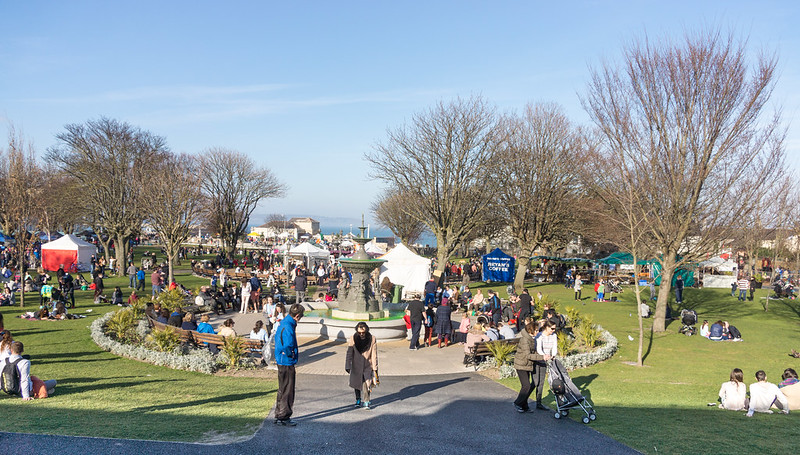
Dublin is a great place to test the waters of solo travel. There is a lot to do in this exciting city, and the locals are always prepared to lend a hand if you run into trouble.
When exploring a new area at night, especially if you’re traveling solo, it’s important to take extra precautions. For your protection, stick to well-lit locations.
If you’re a woman traveling alone, you’ll be happy to know that Ireland ranks first on the Bounce Women Travel Safety Index as one of the safest nations in the world.
As long as you exercise the same level of caution abroad as you would at home, visiting Ireland is a risk-free experience for solo female travelers.
Don’t go wandering about at night in sketchy neighborhoods, and never, ever accept food or drink from strangers. If a woman is traveling alone, she should never reveal her accommodations to an unknown person.
Dublin is rather safe after dark, but it’s always important to remain cautious.
The evening hours are prime time for a night out on the town. Still, there are infrequent but real incidents of physical violence that might occur when people have been drinking heavily and their tempers flare. You should avoid getting into any form of altercation at all costs.
If something were to happen to you, walking in well-lit areas where people might see you would be your best bet. Staying in groups is also safer than walking alone at night. More people means more protection.
Some parts of Dublin are indeed a lot safer than others. If you want to know where to stay to guarantee a peaceful and secure holiday, here are some of the safest areas in Dublin.
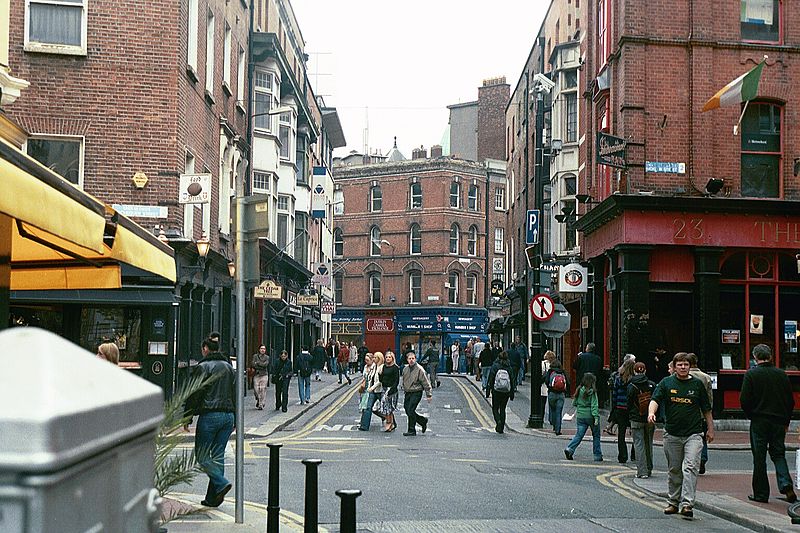
In and around Dublin’s downtown area, you may pick from a wide variety of high-quality hotels and other lodging options. The area is also close to the city’s major points of interest such as Trinity College , Temple Bar and St. Stephen’s Green. You also won’t have to worry about getting lost on a deserted street because of the constant foot traffic in these locations.
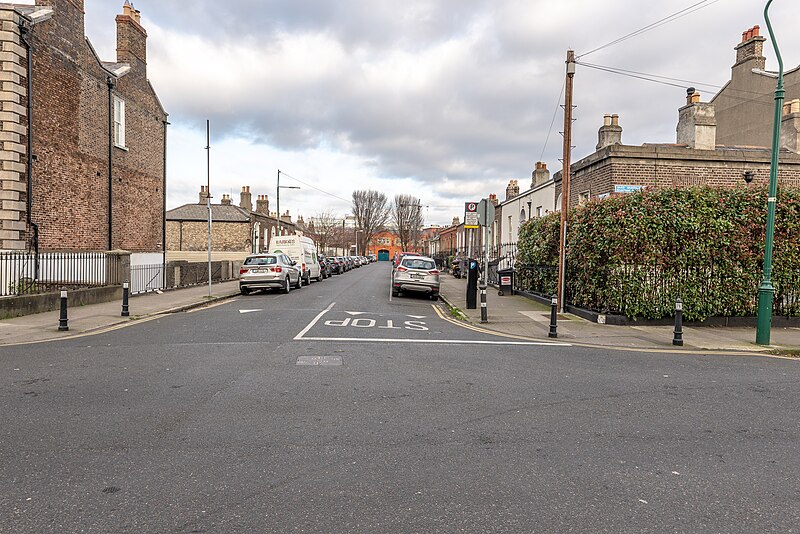
Another fantastic Dublin neighborhood is Portobello. This neighborhood is bustling and welcoming, and it’s only a ten-minute stroll from the heart of town. You shouldn’t feel unsafe while visiting here because of its reputation for visitor safety.
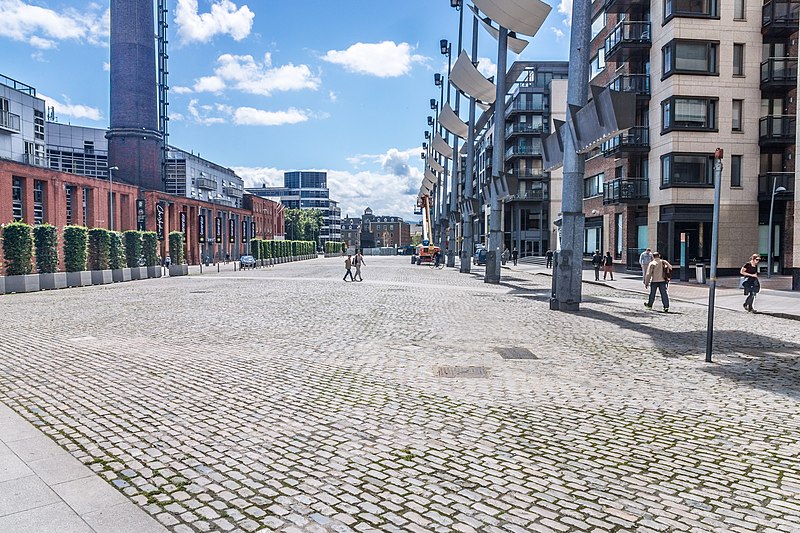
Smithfield is another excellent neighborhood in Dublin. Thanks to extensive revitalization in recent years, Smithfield is now home to more reasonably priced lodging options and a thriving café scene, all within easy walking distance from the city center.
Places to Avoid
When compared to other major cities, Dublin is a safe destination. Some places, however, have much greater crime rates than others due to factors including more drug-related violence, alcohol-fueled violence, and other minor offenses.
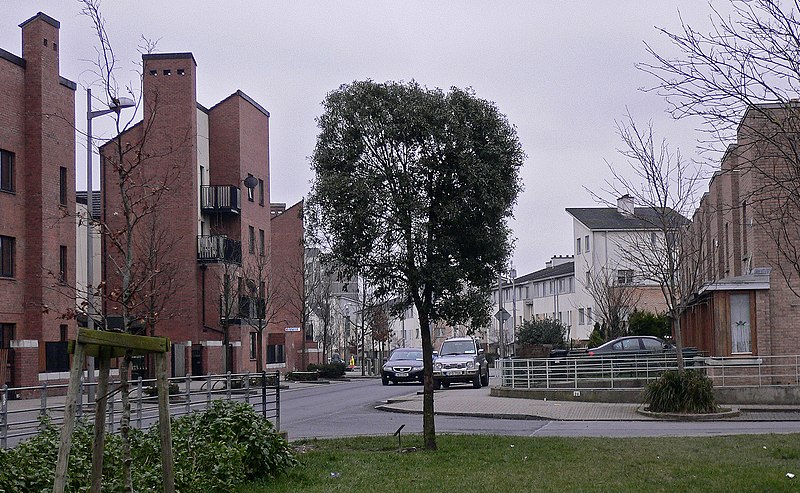
Ballymun boasts several beautiful landmarks. However, it falls a little short because of its high crime rates. Gangs congregate there and regularly commit vandalism. If you are a tourist who values their safety, you might want to steer clear of Ballymun.
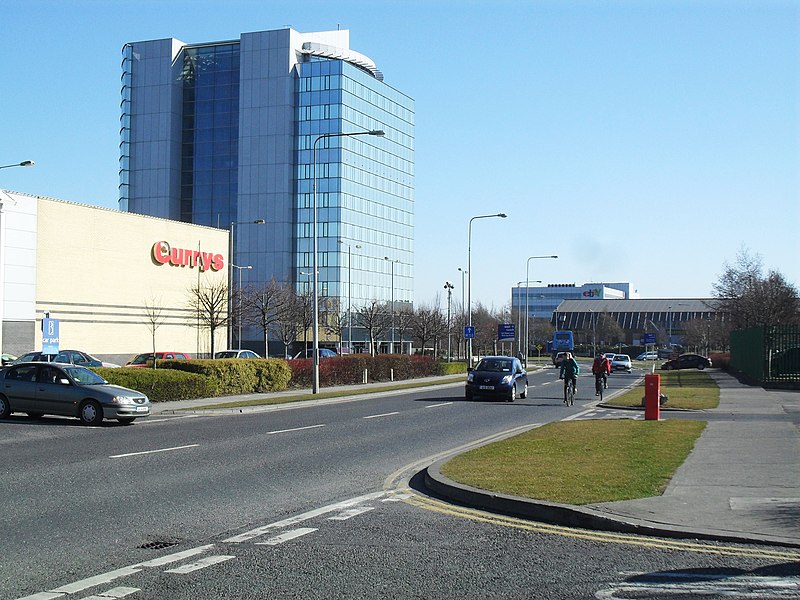
The Blanchardstown shopping district is a must-visit. However, the crime rate is quite high there. Between 2003 and 2019, police in this area dealt with 95,371 incidents, as reported by the Central Statistics Office.
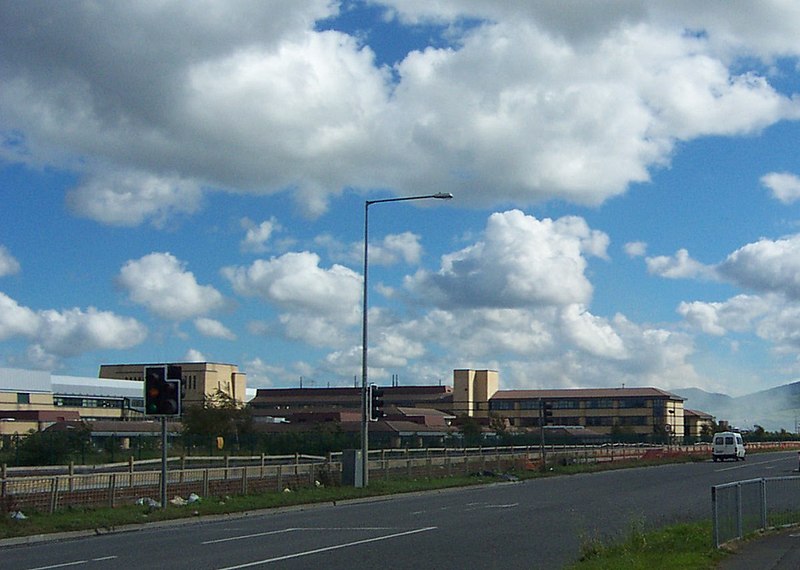
Many Dubliners consider Tallaght to be among the city’s most dangerous neighborhoods. One hundred thousand crimes were reported in Tallaght between 2003 and 2019. Because of this, you should probably refrain from doing it or do it with extreme caution.
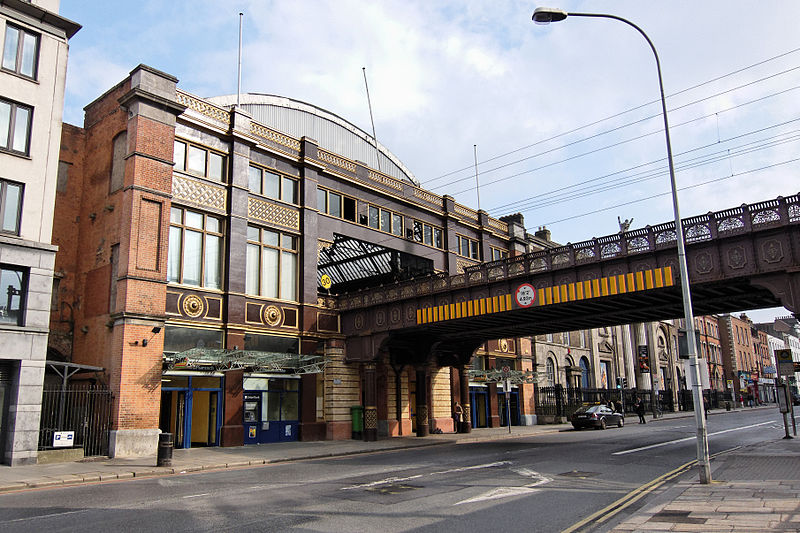
The crime rate is especially high on Pearse Street. In addition to hijacking, extortion, and robbery, they also have the highest rates of fraud, attempted murder, and public order offenses in the country.
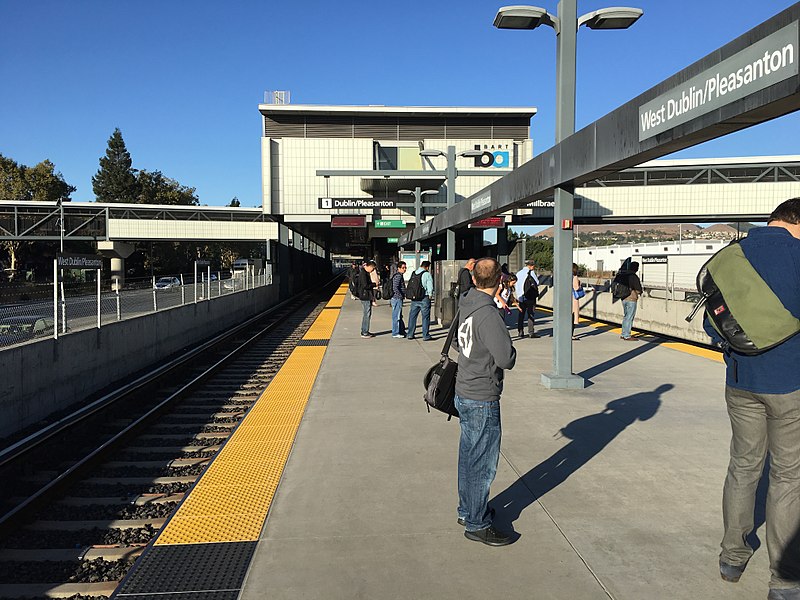
Finglas, Clondalkin, Lucan, and Blanchardstown make up Dublin West, another area of the city with a high crime rate. This has resulted in certain route adjustments for city buses that serve this area.
1. Do not venture out at night or in deserted areas. When going anywhere, you should always go in pairs. The city center is usually patrolled by Garda, so you can go to them if you feel unsafe.
If there is no Garda in sight, you can always ask for assistance in a nearby store. Dial either 999 or 122 to reach the emergency services in an urgent situation.
2. Never let your guard down.
Keep your wits about you, especially when at night. It’s a little too simple to fall under the spell of a city like Dublin. With only a few truly distinctive attractions, tourists are best served by sticking to the well-trodden paths. Pickpockets prey on tourists, especially those in popular areas.
3. When on public transportation or sitting down at a café or restaurant, it is especially important to keep all of your belongings close at hand and your valuables safe. Pickpockets prey on tourists in every major city.
Be cautious, use good judgment, and avoid getting drunk whenever possible in the city.
4. Get familiar with Dublin’s important emergency numbers.
In Dublin, help is never far away if you are a victim of a crime or a witness. You’ll find that many stores have their security personnel, and the police are always close by if you need them. Keep your embassy’s contact information handy in case of need when abroad.
● Ambulance and Fire Brigade: 112 or 999 ● Tourist Assistance Service: 1890-365-700 ● Samaritan: 353-116-123 ● Store Street Garda Station: 00 353 (1) 661 0562 ● Garda: 00 353 (1) 666 9000

Hi, I’m Christine – a full-time traveler and career woman. Although I’m from the Philippines, my location independent career took me to over 40 countries for the past 8 years. I also lived in 3 continents – from the Caribbean, South East Asia to Africa. But despite living in several countries, my love for Ireland remains the same. A country that had been a part of my life since I was 14 because of my love for Irish music and bands. Ireland Travel Guides was born because of this passion and hopefully, in some little ways, this website will be able to help you on your next trip to Ireland.

Is Dublin Safe to Visit? A Local’s Perspective on Safety for 2024
Is Dublin safe to visit for tourists?
It’s a question that lingers in the minds of many first-time visitors, especially in more recent years.
Visiting and navigating a new city can be daunting, especially when safety concerns arise. Are there areas you should avoid? What is it like being in Dublin at night? Which are the safe areas in Dublin to book your accommodation?
These are all legitimate questions and if this is your first time visiting Dublin, or you are returning after a long period of time, fear not. I am going to answer these questions and more using my local knowledge of the city.
I am a Dubliner who has both lived in Dublin and visited the city as a tourist, and I’ve put together this guide to address safety in Dublin to put your mind at ease and give you all the answers and tools to enjoy every moment of the Irish capital.
Incidents like the recent violence in which rioting and looting took place in Dublin are extremely rare and are always a shock to us Dubliners, as well as the very rare incidents involving tourists during the summer of 2023.
My guide to safety in Dublin includes :
- The answer to the question “Is Dublin safe to visit for tourists?”.
- What the locals have to say about safety in Dublin.
- Good places to stay in Dublin, and places to avoid.
- Tips for staying safe in Dublin.
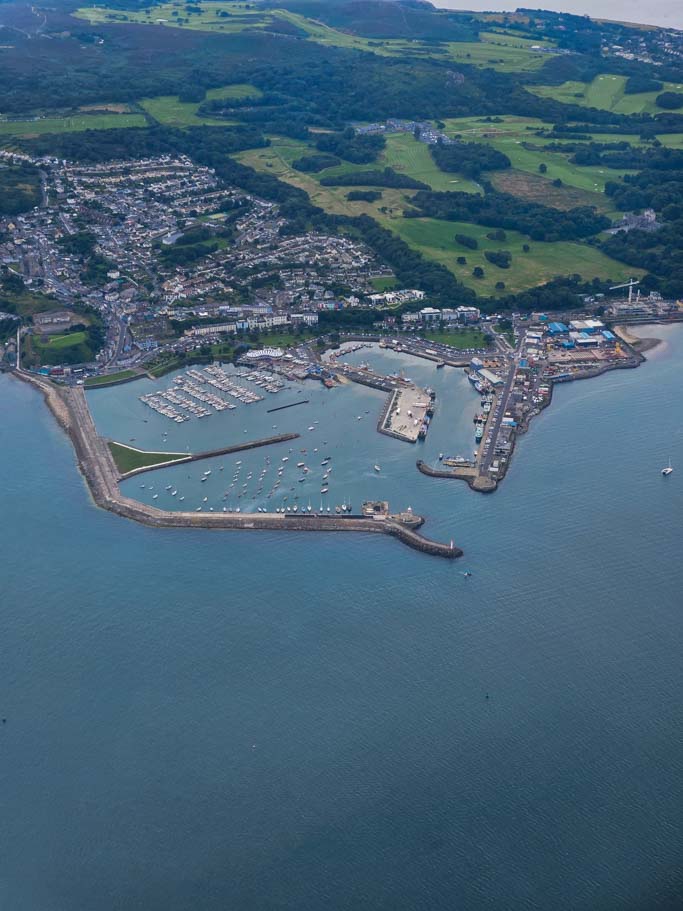
Is Tap Water Safe to Drink in Dublin?
Questions about specific areas of dublin, 13 travel insurance.
*This post contains affiliate links, which may include Amazon affiliate links. To read more about affiliate links, please visit my Disclosure Policy page.
Now, the reason many people are wondering how safe is Dublin is due to some recent incidents involving attacks on tourists during the summer of 2023 and rioting and looting in the city centre in November of 2023 (mentioned further below). Despite these isolated incidents, Dublin is generally a safe city to visit, whether it is your first visit or tenth visit.
That said, as with all major cities, you cannot go around with a lackadaisy attitude. Petty crime does exist and can happen to anyone.
Ask yourself: Would I wander the dark lanes of Paris at night? Would I walk around London or go on the Underground with my bag open, a big camera around my neck and dripping in jewellery?
If the answer is no way, then it is the same in Dublin.
For the most part, Dublin is a safe destination for travellers.
But to answer any questions or concerns you might have, I’ve put together this guide to help you learn what to do and what not to do in the city, give you the low down on where is best to stay in the city centre and where to avoid, and give you some tips to help keep you as safe as possible in the land of the leprechauns.
I will answer every question related to safety in Dublin in greater detail, as well as share my own thoughts and experiences where staying safe in Dublin as a visitor is concerned.
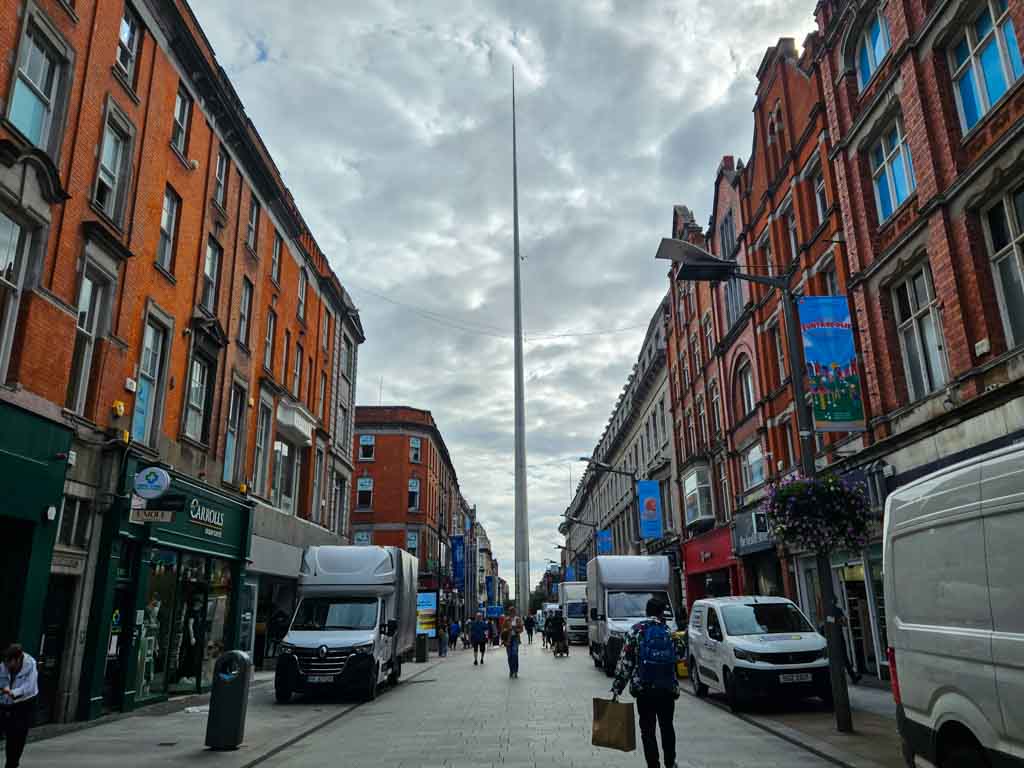
Is Dublin Safe?
At the time of writing this post in October 2023, Ireland scored 1.312 on the Global Peace Index and was ranked #3 behind Iceland and Denmark. This score is a combination of many factors including the level of societal safety and security.
Ireland has regularly featured in the top 10 on the Global Peace Index.
However, you must remember that Ireland is a small country compared to others around the world, and outside of Dublin and its suburbs lies a rural country that is less populated than the capital.
Most crime occurs in the cities and in particular in Dublin, due mainly to the fact it is home to a quarter of the population of the Republic of Ireland.
But fear not, most Dubliners are honest and friendly people (even those of us from Tallaght), and armed with the tips below and some common sense, it can be an amazing city to visit in Ireland.
What the locals have to say
While conducting research for this article, I spoke to the local tour guide, Alan Byrne of AB Tours in Dublin about some incidents involving tourists during the summer 2023, and here is what he said:
“I think a lot of it (Dublin being unsafe for tourists) is sensationalised compared to the reality. I live right in the city centre, close to several drug treatment shelters. I’m out on the streets every day, all over Dublin with groups of visitors. Many of the commentators are probably getting their information from TV, radio, or social media. There have been virtually no incidents on any of my tours over the last few years apart from one attempted pickpocketing from a backpack. Thankfully that was spotted in time and the person fled empty handed. If you look at crime statistics, they are all down over the last few years and I certainly felt less safe in Dublin 20 years ago. However, some of my guiding colleagues have noticed a small increase in people harassing their clients lately. Speaking anecdotally, there is a slight edginess to the city increasing again. Some teenagers have been getting braver in their actions, but it usually boils down to an intimidating presence rather than much activity. I think this is probably a consequence of the Covid years, whereby the streets were largely vacated, and teenagers could run amok. Some of the laneways in Temple Bar, such as the Icon Walk or Love Lane (pictured) were decorated to promote ‘soft policing’ and gently discourage petty drug dealing. Sadly, these lanes have fallen back into their old ways since the lockdowns. So, I would say to people that Dublin is comparatively safe. I’ve lived in the city for over 10 years and have never seen a knife in public, let alone a gun. I can count the troublesome incidents that have disrupted my tours on one hand. If you compare it with any major city, it ranks as very safe, although caution should be exercised wherever you travel.” Alan Byrne, AB Tours Dublin
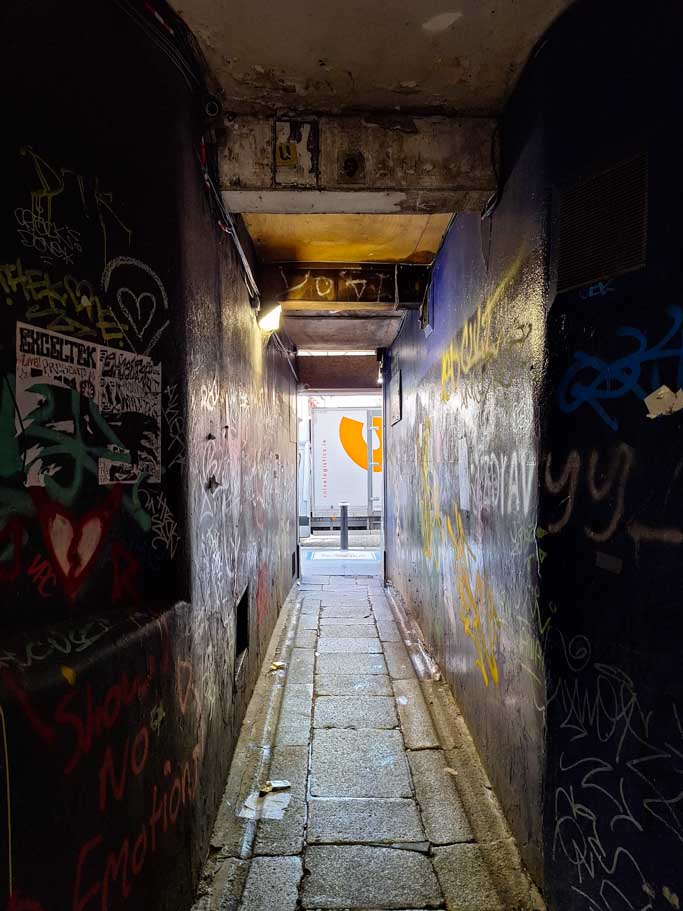
Things to Know about Safety in Dublin
Is Dublin, Ireland safe? For the most part, yes, as with all cities.
- As mentioned, Ireland is regularly featured in the top ten countries on the Global Peace Index.
- Ireland has been classified as a Level 1 t hreat location (exercise normal precautions) by the US Department of State, but after recent assaults the US Department of State issued a security alert for Dublin, advising visitors to exercise Security Awareness.
- A study in 2019 (pre-pandemic) revealed that 98% of tourists felt safe and secure during their visit to Ireland.
That said, there are certain areas that even the locals will tell you to avoid and certain ones they are comfortable frequenting.
As the US Department of State mentioned in their security alert for the city, being aware of your surroundings, using common sense, avoiding being intoxicated in the city centre, and avoiding walking alone at night are all things visitors can do to remain as safe as possible in the city.
Travel Advisories
Most countries have set Ireland as a low-level threat location, advising their citizens to practise normal safety and security precautions when visiting the island.
For example, for Canadian visitors, the government of Canada has set Ireland as a country to take normal security precautions .
Likewise, those travelling from New Zealand have also been advised to exercise normal safety and security precautions while in Ireland.
The US Department of State has set Ireland as a Level 1 threat location but did issue a security alert for Dublin in July 2023, making it a medium threat location and strongly advising US visitors to exercise security awareness when visiting the Irish capital. You can read a Guardian news article about this advisory here .
Crime in Dublin
Most crime in Dublin related to tourists is petty crime such as pickpocketing and theft.
But in recent months there have been some serious assaults on tourists, with one American tourist seriously injured after an assault on O’Connell Street, and in the Temple Bar area of the city, a group of British tourists were assaulted at night.
Both attacks occurred shortly after 10pm at night. Following these, the Irish government increased police presence on the streets of Dublin to try and ensure visitor safety.
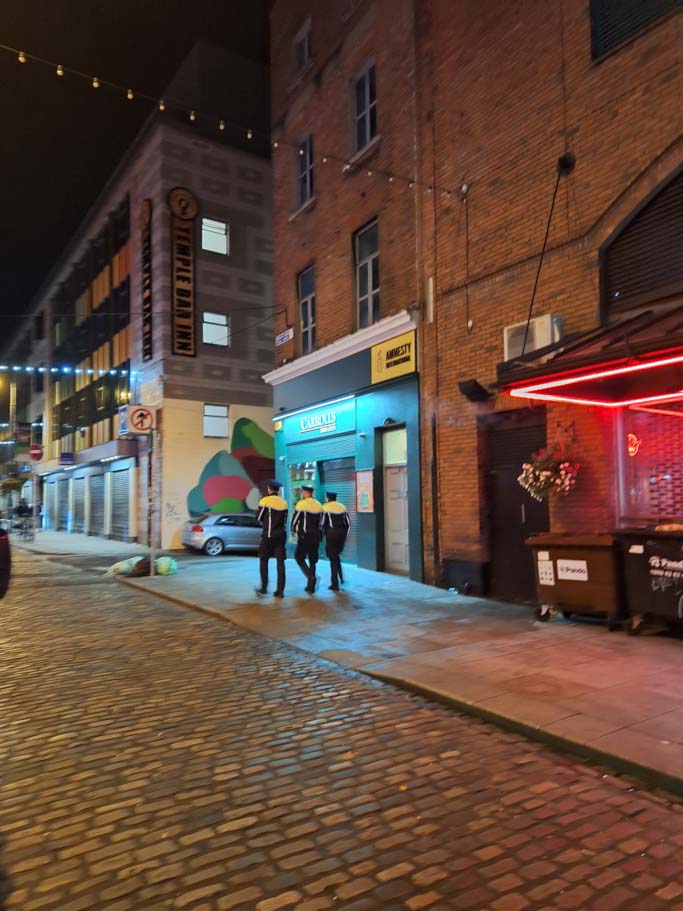
These types of violent crimes on tourists are not a regular occurrence, but visitors to the city should be aware that the top five common crimes committed in Ireland (not just Dublin) include violent crimes such as theft and assault, drug abuse (and related crimes), possession of weapons, and public order offences.
Petty crimes such as theft and pickpocketing are more prevalent with tourist crime, and the worst of the violent crimes tend to occur in the rougher areas of suburban Dublin.
You can find the latest crime statistics by clicking here .
Another recent incident that shocked the country occurred following a stabbing incident involving a teacher and school children on Parnell Square in Dublin City Centre.
The subsequent riots and loot i ng were horrendous but you should be aware that these are extremely rare and something I have not experienced or seen in Dublin in my lifetime until now.
Petty Theft
Petty theft is one of the crimes most related to tourist incidents in Dublin. The theft of cell phones, theft of wallets/bags, and pickpocketing on busy streets and on busy public transport are the main types of crimes tourists may fall victim to.
That said, these types of crimes can occur in any city around the world and to visitors and locals alike.
In my early teens I was a victim of pickpocketing and because of my naivety had my purse stolen from my pocket which included a small watch given to me by an uncle. So, even locals can be victims in Dublin.
Substance-Related Crimes
Substance-related crimes can also be one type that involves tourists.
Tourists can become victims of petty crime if they are very intoxicated, making them easy targets for petty criminals on the streets of the city centre.
Tourists can become victims when those with a substance-related addiction turn to petty crime to feed their habit.
Avoiding Bad Areas
There are certain areas of Dublin that visitors should avoid, others where you should avoid walking alone late at night, and some areas where both tourists and locals generally feel safe.
One of the biggest factors in staying safe in Dublin is to avoid certain areas of Dublin, keep your wits about you in others, and avoid walking alone in Dublin at night.
I discuss this in greater detail below but suffice to say, there are some areas of Dublin I wouldn’t venture to as I don’t know them well.
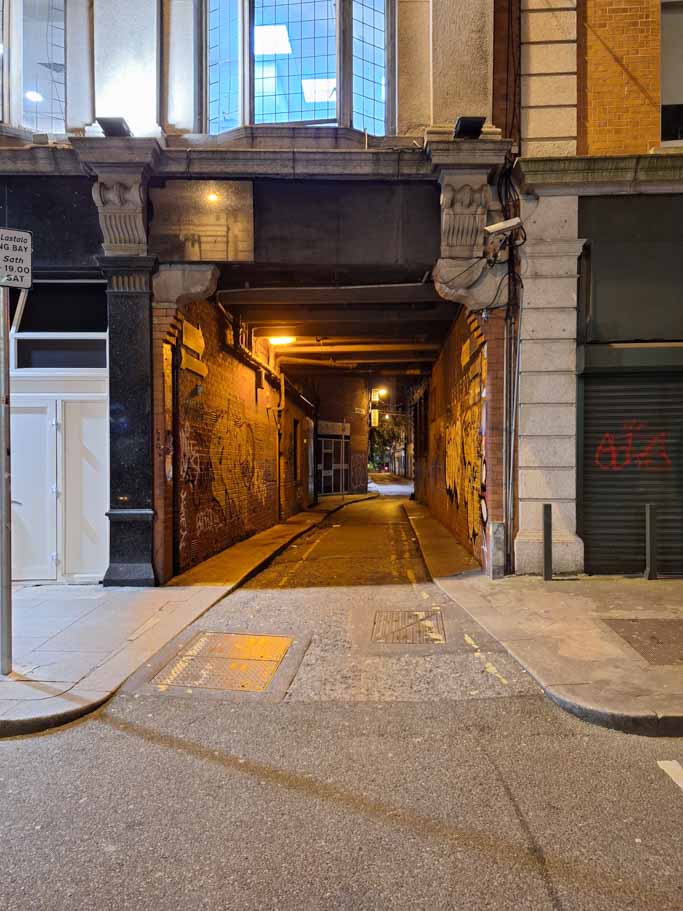
Important emergency numbers in Dublin
Should you be the unfortunate victim of a crime in Dublin, the emergency numbers to be aware of are:
- 112 for the emergency services.
- 999, while this is the UK emergency services number it can still route you to the Irish emergency services if you forget number 112.
The service you will require will be the police or Gardai, and an ambulance if you have been injured.
Common Scams in Dublin
Like all major cities around the world, Dublin has a few scams that visitors need to be aware of.
- Taxis : while 99% of taxis in the city are reputable and licenced, there are some fake taxis in operation whose sole purpose is to take advantage of tourists. They will either charge you far more for your fare than it should be, or worst, rob tourists of their money. If you need a taxi in the city, hail one at a taxi rank, get your accommodation to call one from one of the firms they use, or download the FREENOW app and check the car has a number on the roof and the driver’s license details are displayed in the car.
- Fake Tourist Guides : like other cities, there are some fake guides in operation who will try to sell tours to tourists that don’t exist or offer to show them places themselves for a high fee. Do not fall victim to these people. I recommend booking your guided tours via Viator or Get Your Guide .
- Pickpockets : people bumping into you may not be coincident. Pickpockets in the city often operate by ‘accidentally’ bumping into people while pickpocketing them or their bags. Keep all valuables in an anti-theft bag such as the Pacsafe cross-over bag or the Pacsafe Venturesafe backpack that I myself use in Dublin.
Hazardous Weather & Natural Disasters
Ireland does not suffer from natural disasters. The worst it experiences is severe weather such as gales during winter but even those are not a daily occurrence.
While yes, it does snow in Ireland , Dublin does not experience the worst of it. Apart from occasional heavy snowfall, Dublin usually gets a small flurry of snow before it melts and clears.
When it comes to the safety of tourists in Dublin, natural disasters and hazardous weather are not something you typically need to be worried about.
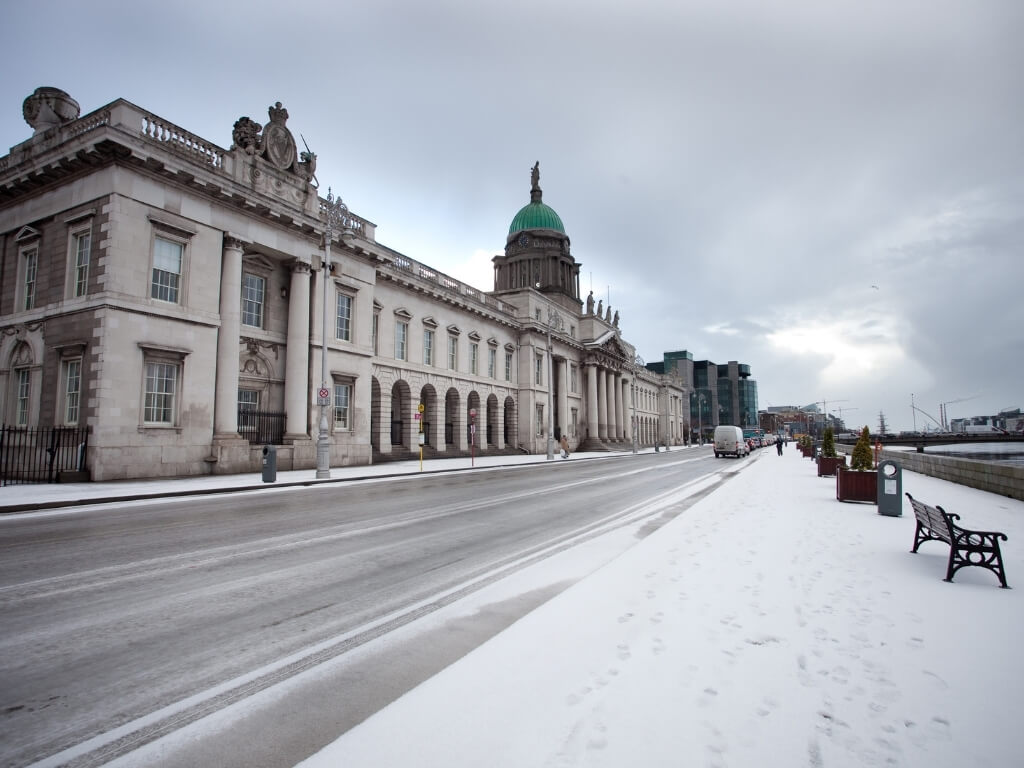
A common question I see asked by first-time visitors to Ireland is whether you can drink tap water in Dublin.
The answer is yes, the tap water in Dublin is safe to drink. I love drinking tap water in my family’s house in Dublin as it is soft water and free from the minerals and salts you find in hard and semi-hard water (the scientist in me is coming out now), unlike our tap water at home in Portugal.
Dublin tap water comes from a range of sources but the biggest source is the Ballymore Eustace water treatment plant which supplies over 50% of the city and suburbs water . Its water source is the Poulaphuca Lake along the River Liffey.
Where to stay in Dublin/Areas to avoid in Dublin
One thing that visitors to the Irish capital always ask is what are the safest areas in Dublin and what aren’t. It is natural to wonder where you should stay or visit and where you should avoid.
As promised, here are my thoughts on some of the better and safest areas of Dublin to stay in and to visit, and areas to avoid, both from a visitor’s and local’s point of view.
Where to stay in Dublin
Location matters when it comes to safety. Dublin has some lovely areas that are clean and safe and ideal for tourists visiting the city.
Merrion Square
The area around Merrion Square is a nice area of Dublin to stay.
Located at the back of Trinity College, it is where you will find the Natural History Museum and National Gallery of Ireland as well as the entrance to the government buildings.
There is a Georgian park in the centre and several hotels nearby such as The Davenport, The Mont, and The Alex, which I have personally stayed in and would stay in again.
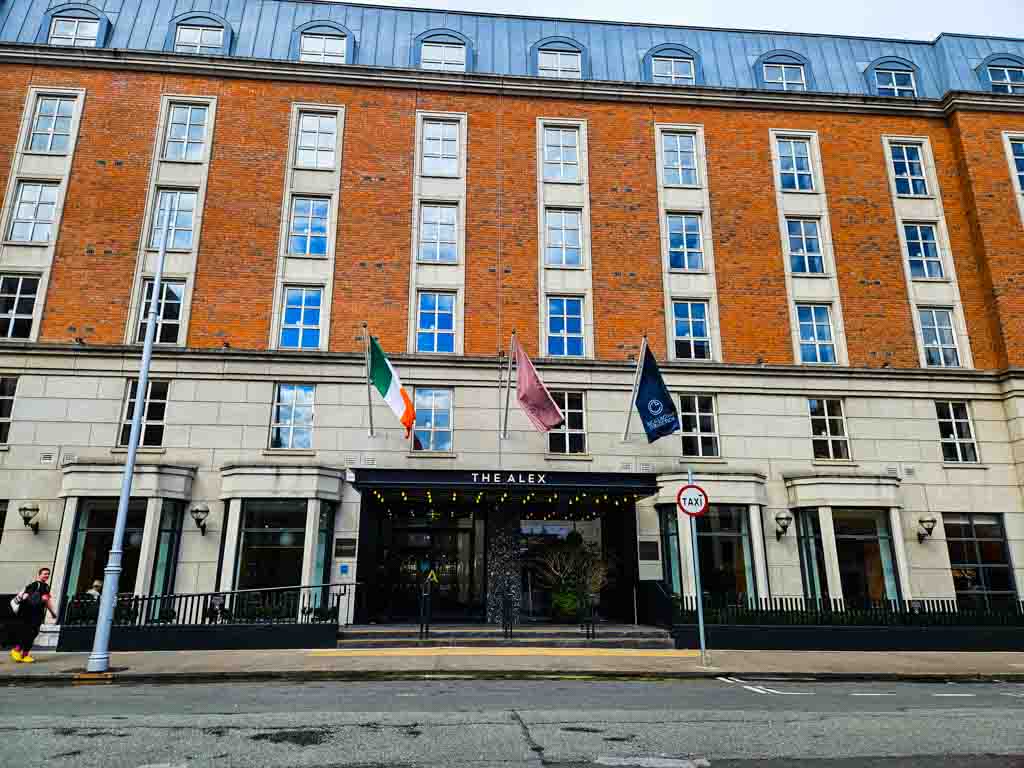
Temple Bar is considered safe for tourists in Dublin. This area runs between the southside quays and Dame Street and has lots of bars, cafes, restaurants, and hotels to choose from.
Despite the recent incident in the area involving tourists, Temple Bar remains a popular part of the city for tourists and locals alike.
Hotels here include The Morgan, The Hard Rock Hotel, The Clarence (owned by U2), Fitzsimmons and Kinlay House. The Westbury, a 5-star Dublin hotel is located on Westmoreland Street, on the edge of Temple Bar.
This area is in the heart of the city, but you should stay alert and aware, especially if returning to your hotel late at night.
Grafton Street and St Stephen’s Green
So long as you keep your wits about you on busy days, staying near Grafton Street or St Stephen’s Green can be a good option.
Hotels near here are centrally located and leave you within walking distance of most attractions. This is the southside of the city which is generally thought of as the safer side of the city (but there are still some areas that tourists should avoid as there is not much for them there).
There are a few hotels off Grafton Street along side streets including The Westbury Hotel, and the famous Shelbourne Hotel along St Stephen’s Green. I’ve personally stayed in The Grafton opposite The Hairy Lemon pub, and it was a great, centrally located hotel.
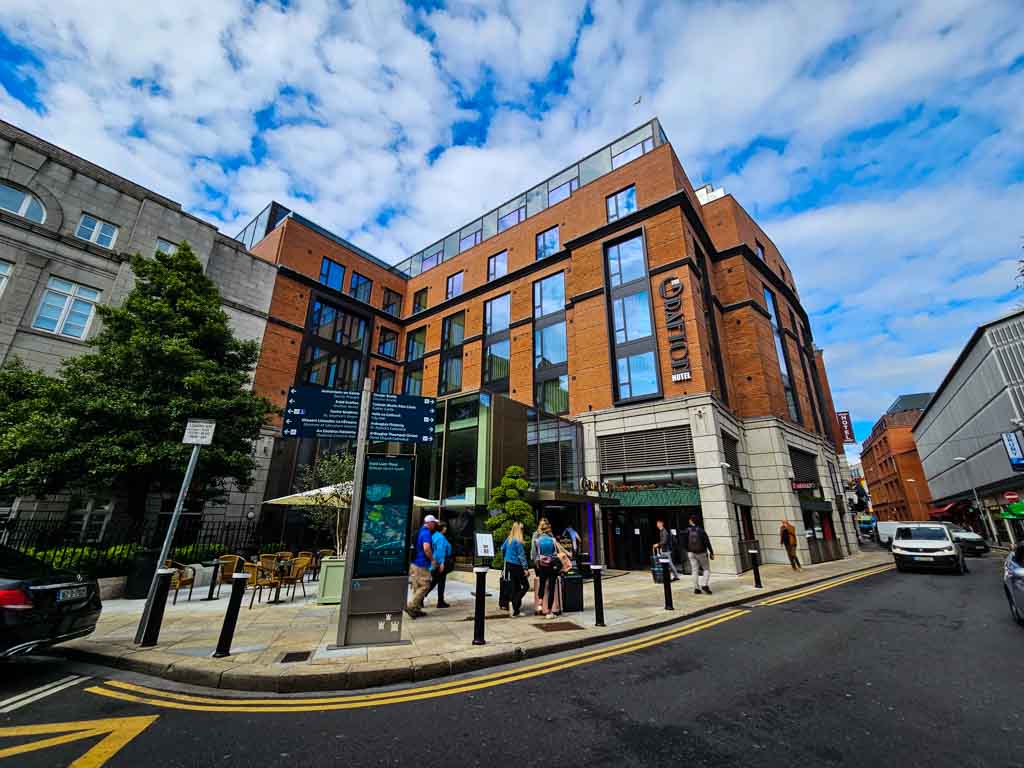
Portobello is another area that is considered safe for accommodation for tourists.
It is the area sandwiched between part of Kevin Street, New Street, Camden Street and Portobello Road along the Grand Canal.
Hotels in this area can work out cheaper than the very centre of Dublin and most will be less than a 30-minute walk to Trinity College gates. Hotels here include the Camden Court Hotel, the Maldron Kevin Street, and Keavan’s Port Hotel.
Previously, this area of Dublin was a rough part of the city.
However, in recent years it has been regenerated and is home to the likes of the Old Jameson Distillery. It also has several hotels in the area. It is walkable to the very centre of Dublin, or you can take the Luas Red Line.
Would I choose to stay in this area of Dublin? No, but that is because I still know it as a rough part of the city and do not know it at all these days.
Outside of the city centre, the following locations are considered safe, and I would be more than happy to stay in these areas or recommend them to tourists:
- Howth – a fishing village on the northside at the end of the DART line.
- Malahide – a well-to-do area with a castle, this is considered a posh end of northside Dublin.
- Killiney and Dalkey – located along the DART and with good bus links to the city, these areas are considered clean, posh, and safe for locals and tourists alike.
- Ballsbridge – not too far from the city centre and with good bus links to the city centre, this area is another safe option for visitors to Ireland.
- Castleknock – located on the northside of Dublin, this is another area considered up-market and safe but does require a taxi or taking public transport into the city centre. Castleknock Hotel is one of Ireland’s castle hotels located in the area.
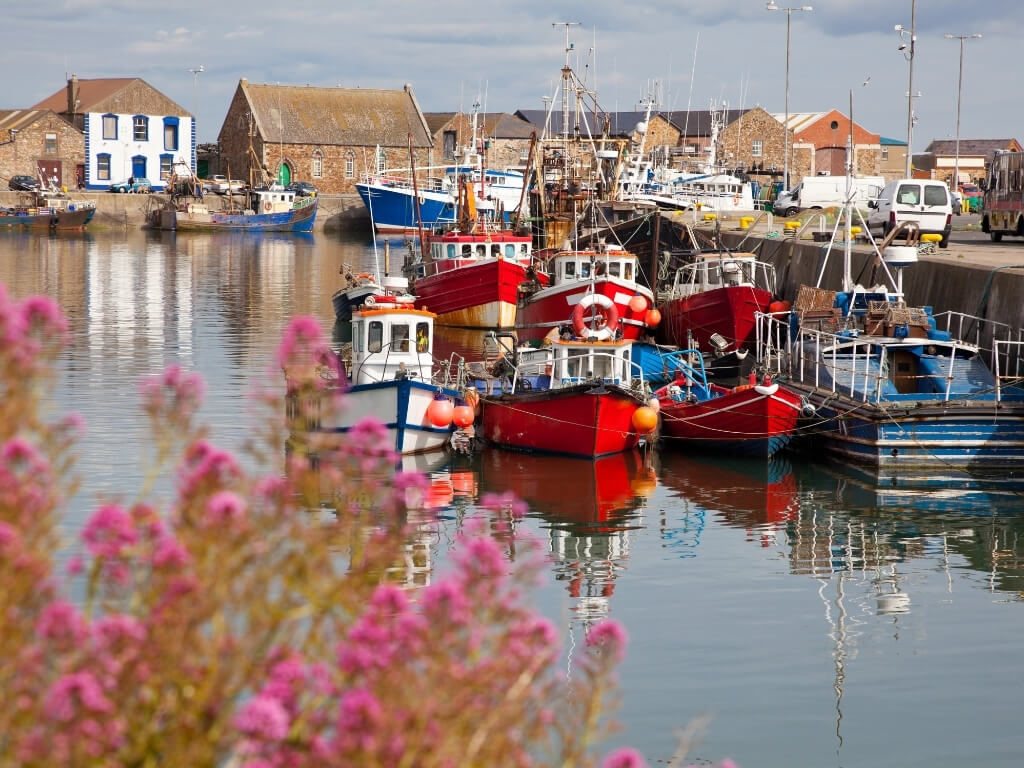
Areas to avoid in Dublin
If you are wondering are there any dangerous areas in Dublin, the answer is yes. Like all capital cities in the world, there are the good and the bad. These are areas that do not have a lot to offer tourists and therefore there is no reason for tourists to stay here.
Upper O’Connell Street, Parnell Square and Mountjoy Square
Upper O’Connell and the Parnell Square area of the northside of Dublin is not considered a very safe area for tourists.
While The Gresham Hotel, a 4-star Dublin hotel, is located along Upper O’Connell Street, the area is generally not considered a part of Dublin that tourists should frequent, especially at night. The ‘safe’ part tends to stop at the intersection with Henry Street.
Personally, I avoid Parnell Square. The Hugh Lane Gallery is located on it, and I would only visit this during the day and return to Lower O’Connell Street quickly afterwards.
Beware of Talbot Street, Gardiner Street (with Mountjoy Square along it) and Lower Abbey Street. While accommodation prices along these streets can look appealing, I would not stay on any of these streets.
I only go to Lower Abbey Street during the day when I need to get the Luas Red Line back to my family’s home in the suburbs.
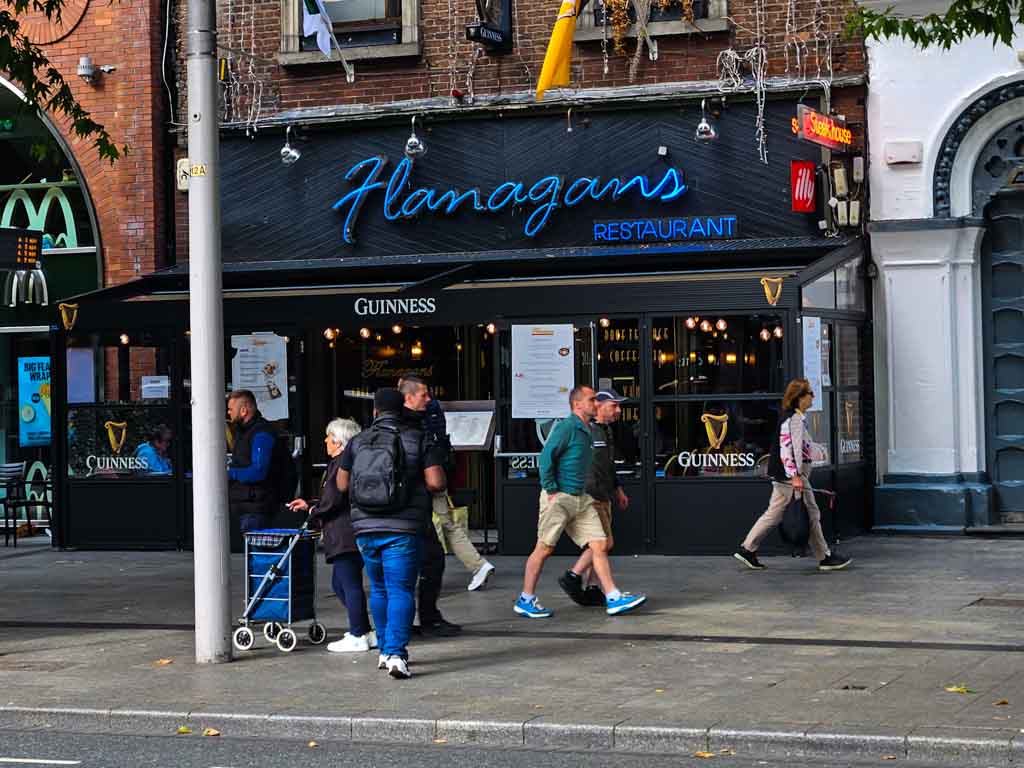
Certain Quays
There are a few quays along the river Liffey which are ok and generally safe during the day such as Custom House Quay, Eden Quay, Aston Quay, Wood Quay, Essex Quay, Wellington Quay, Ormond Quay Upper, Bachelor’s Quay, George’s Quay, and Burgh Quay.
I would avoid walking along the following quays, especially at night:
- Usher’s Island
- Usher’s Quay
- Merchant’s Quay (beware even in daylight)
- Ormond Quay Upper
- City Quay (fine in daylight)
- Sir John Rogerson’s Quay
- North Wall Quay
While some hotels along the Quays are fine such as the Hilton Garden Inn beside the Jeanie Johnston (Custom House Quay), the Spencer further on, or The Clarence on Wellington Quay, I would not personally stay on or off any of the other quays.
Thomas Street and James’ Street
Thomas Street, including around the Guinness Brewery on James’ Street, is not considered a safe area of Dublin for tourists to stay in.
The same can be said for areas that are close to these two streets including Oliver Bond Street.
Other than the Guinness Storehouse, there are no other attractions for tourists so they should try to avoid staying in these areas and get public transport, a taxi, or the hop on hop off bus to visit the Guinness Storehouse.
Pearse Street/Tara Street
The areas around these streets are known for high crime rates and unsavoury characters. I would not recommend that tourists stay in and around this area.
Sherrif Street
This area has a bad reputation among many Dubliners and has no attractions for tourists, meaning there is no reason for them to be there. Therefore, I would not recommend that tourists find accommodation here or in the surrounding area.
Outside of the city centre, the following locations are considered unsafe for tourists, and I would not recommend you look at accommodation in these areas:
- Tallaght (the area of Dublin I grew up in)
- West Dublin including Blanchardstown (the area my husband grew up in)
- Ballyfermot
Is Tallaght safe?
No, Tallaght is not a safe area for tourists to visit or stay in. Crime rates are high and drugs and anti-social behaviour is common. Despite this being the area of Dublin I grew up in and where some of my family remain, I strongly recommend visitors avoid this area of Dublin. There are no tourist attractions here so no need for tourists to visit it.
Is O’Connell Street, Dublin safe?
Lower O’Connell Street is generally considered safe and the entire street now has a stronger police presence after an incident in July involving a tourist. That said, you need to use common sense and avoid walking the Upper section late at night.
Is Temple Bar safe?
The Temple Bar area of Dublin is considered a safe area of Dublin.
However, there was an assault on a group of tourists in the area in July 2023 that made the news. This occurred after 10pm at night and is not typically a common occurrence.
That said, you should be careful in the area, keep your belongings close and hidden away, and not walk around late at night alone or down dark alleys alone.
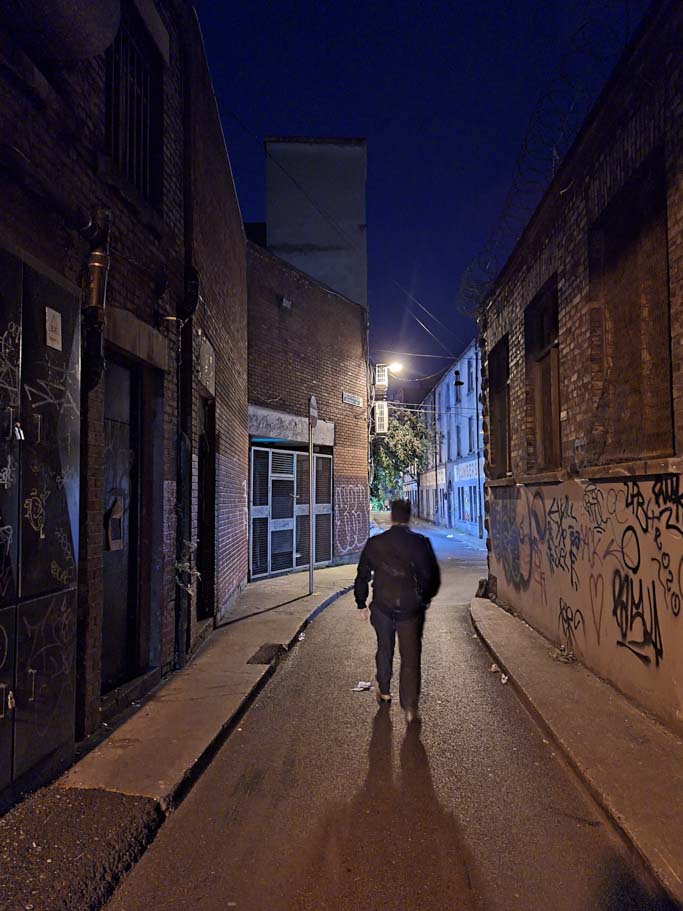
Is the Liberties area of Dublin safe?
If you had asked me this a few months ago I would have said no. But, during my time with AB Tours, Alan told me that this area of Dublin, like Smithfield, is being regenerated and is home to two distilleries in Dublin, the Teeling Distillery, and the Liberties Distillery. Guinness Storehouse is also located in this area.
So, it is very much your decision whether you want to stay in this part of Dublin. That said, I would not walk around it late at night, especially south of Thomas and James’ Street.
Is Smithfield Dublin safe?
Like the Liberties, I would have said no a few years ago but with the regeneration of this part of the city, it is safer to stay in than before.
Is Kilmainham Dublin safe?
Personally, I would say no. Despite Kilmainham Gaol being located there and yes, you should visit it, I would not stay in this area of Dublin, nor walk around it late at night. Crime does occur here, and my sisters and I narrowly avoided being caught up in an incident when we parked in the Hilton to visit the Gaol in 2022.
Is Dublin safe for solo travelers?
If you are wondering is Dublin safe to travel alone, the answer is yes.
But, as with all major cities, you need to keep in mind the safety tips I’ve outlined below, not walk around Dublin at night alone, especially in the areas I’ve mentioned above. Use common sense and avoid the rough areas.
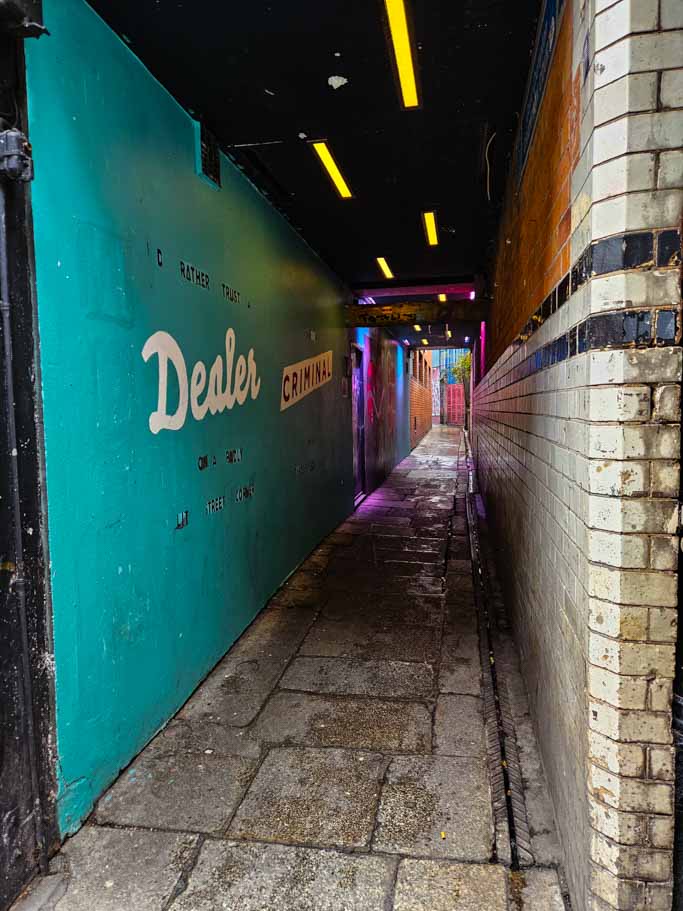
Is Dublin safe for tourists?
Yes, overall Dublin is a safe city for tourists to visit so long as you use the tips outlined in this article, use common sense, and don’t wander off the main tourist’s trail and down dark alleys.
Is Dublin safe for solo female travel?
Yes. At the time of writing this article, I have just returned from a weekend in Dublin solo.
I walked the length and breadth of the city alone in the day, visited 4 museums over the course of 2 days, ate alone in The Brazen Head, enjoyed ice cream from Murphy’s on my own and waited for my sister on Dawson Street in the evening.
I travelled to and from the suburbs on the Luas Red Line on both days. That said, when I left my sister at 8pm after dinner one Friday evening to return to the suburbs, I got a taxi as I would not travel on the Luas after dark.
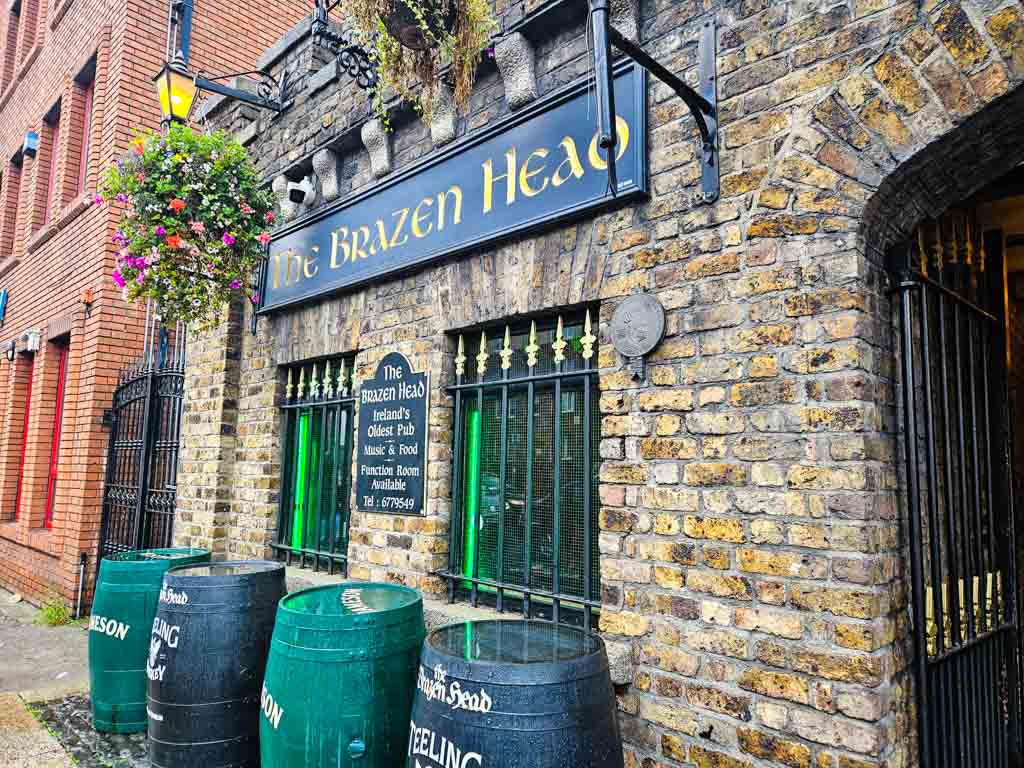
13 Top tips for how to stay safe in Dublin
1 use common sense.
Just as you would in any major city around the world or at home, using common sense is an absolute must when visiting Dublin. How safe is Dublin, Ireland very much depends on the actions of the travellers and visitors to the city itself.
Avoid having flash items on display. Keep your bag closed and close to you at all times in pubs and restaurants and keep your valuables secure, just as you would at home.
Only carry minimum cash with you and one card, leave everything else behind in your hotel or accommodation.
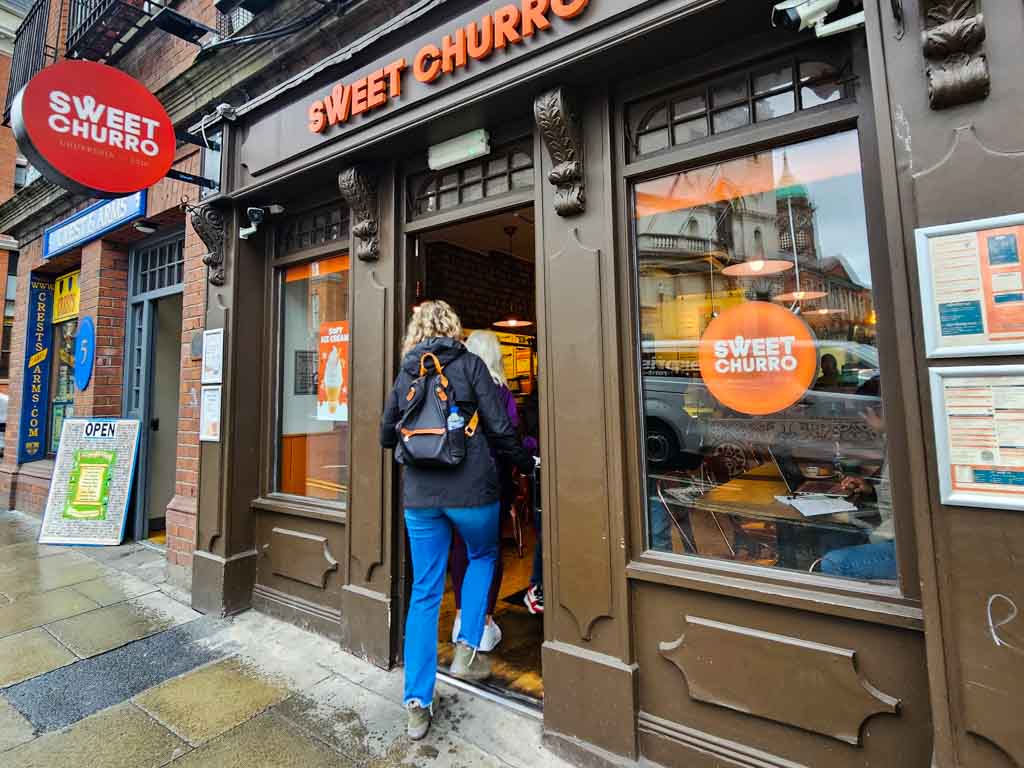
2 Don’t stray off the beaten path
Beware of taking shortcuts through alleys and empty lanes in Dublin. Muggings and petty crime often happen in places such as these, so stick to the main streets as much as possible.
3 Don’t wander Dublin alone at night
If you’re asking yourself is Dublin safe to walk at night, it depends on the circumstances. If you are in a group, it is not late at night and you are not in an area you should avoid, then you should be safe.
Alone, in a rough area and late at night are to be avoided.
Tourists are most vulnerable in the dark and at times there can be scuffles and fights outside pubs at kicking out times. Take extra care.
4 Always remain alert and aware
You should always stay aware in crowded areas of Dublin which can include Temple Bar, Grafton Street and Henry Street, the two pedestrianised shopping streets in Dublin.
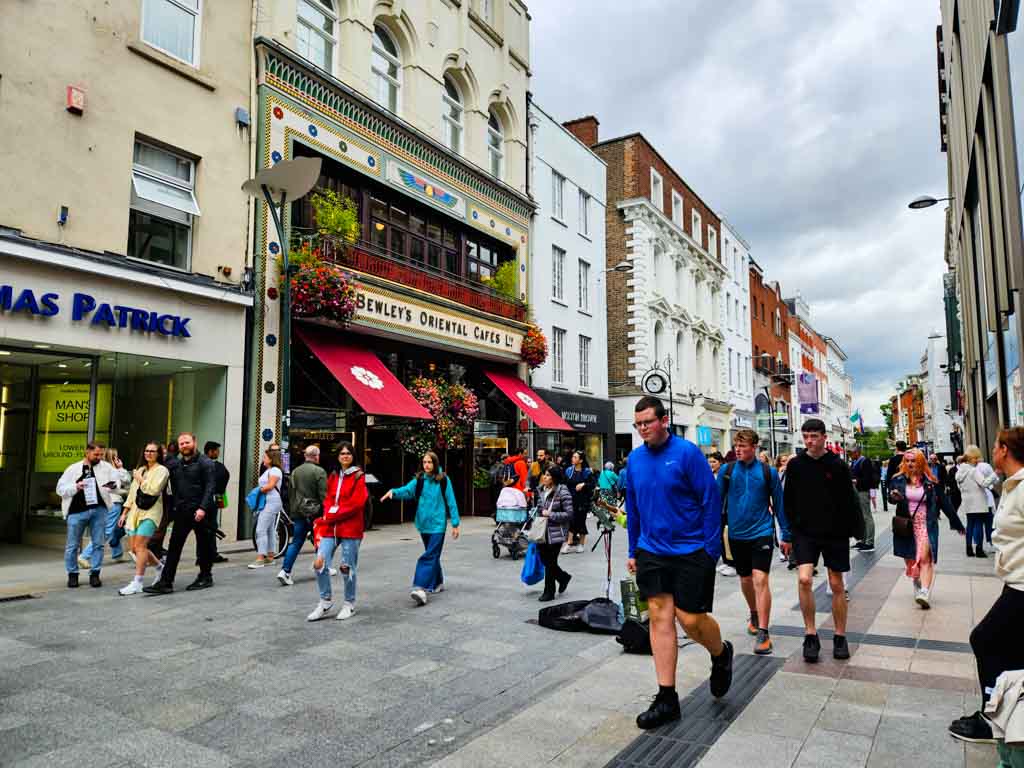
These areas can get crowded, particularly during summer or weekends, so always stay alert and aware.
Be aware of pickpocket techniques which include distraction or bumping into you and keep your wits about you.
Use anti-theft bags as already mentioned, such as the Pacsafe brand, to keep what valuables you are carrying safe and secure.
5 Stay aware when using public transportation
When you are traversing the city centre, or have opted to get around Dublin, Ireland without a car , stay aware when using public transport. This goes for buses, DART trains and Luas trams alike.
6 Visit Temple Bar early in the evening
To avoid the worst of the risks, it is best to visit Temple Bar during the day or in the early evening, avoiding the worst of the intoxicated or argumentative people.
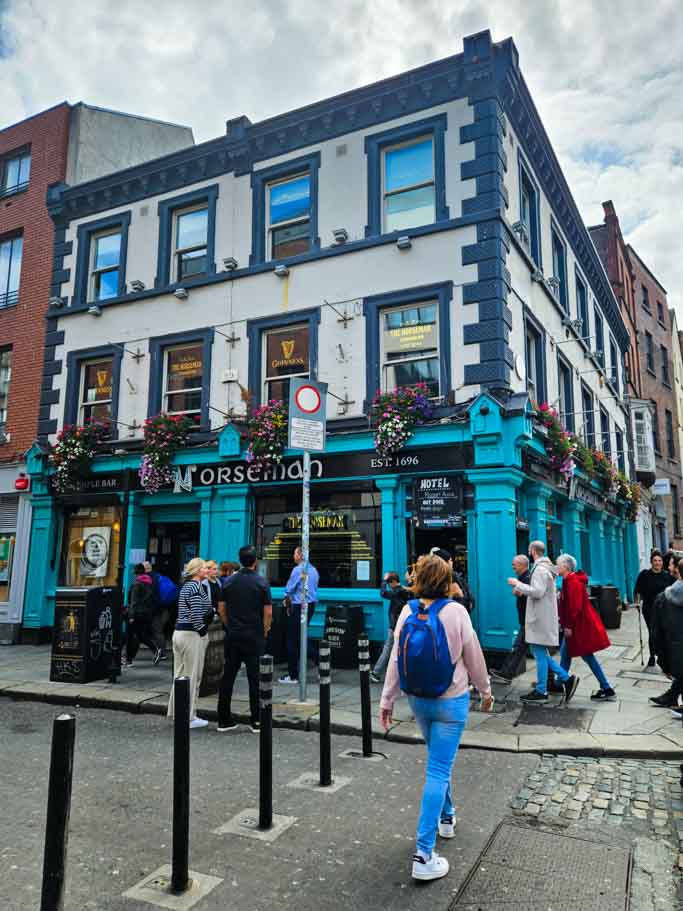
7 Drink responsibly
Hand in hand with visiting Temple Bar is to ensure you drink responsibly. Do not get so drunk that you cannot walk straight or find your way around as this will only create a target on your back for the unsavoury elements in the city.
When using taxis, only get into one that is clearly licensed. These have their number displayed on the plate above their roof and the same number displayed on their badge in the car.
All real taxis in the city are regulated and need to display both parts. Any ‘taxi’ without these two are fake and you should avoid getting into the car.
You can use the FreeNow app to find a taxi, and it works similarly to Uber. Know that if you choose to find a cab using Uber, it will be a licensed taxi that must work to the clock meter in the car.
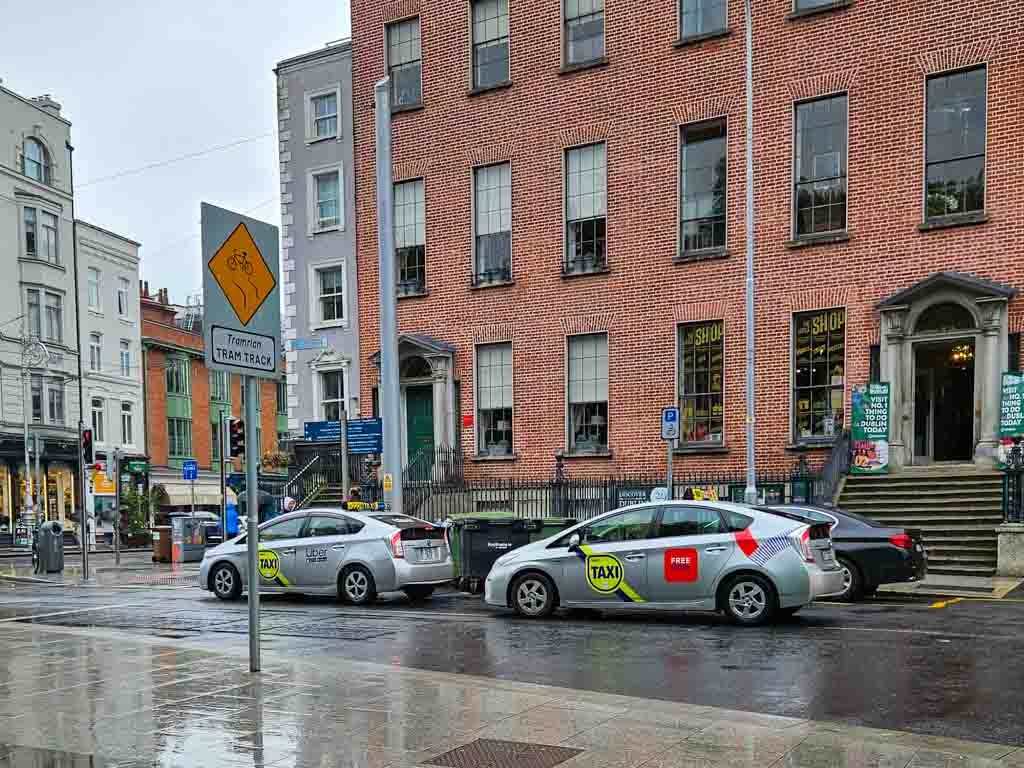
If you have a car and need to park, make sure to use regulated car parks and avoid leaving anything in the car. Anything left on display or valuables in the trunk could attract unwanted attention and result in the car being broken into.
And like walking, avoid parking in dark alleys or lanes.
10 Invest in a money belt or use a bum bag/anti-theft bag
As mentioned already in this post, it is advisable to invest in a bag that hides your valuables while out and about and is anti-theft. I have used the Pacsafe brand for years when travelling and at home.
I prefer the Venturesafe backpack while travelling and the Metrosafe bag at home.
And if you want to keep your money and cards super safe, invest in a money belt to hide underneath your clothes.
11 Politics can be a touchy subject
To avoid arguments, avoid discussing Irish politics. The history behind Irish politics and the difference between Ireland and Northern Ireland can cause serious divides among the Irish and has even split families. So, don’t start on politics.
12 Prepare for Dublin’s Traffic
Whether you are exploring on foot, bicycle, or public transport, prepare yourself for a city whose traffic can get gridlocked, even outside of peak times.
The city streets are busy and certain ones have been pedestrianised or made one-way streets.
Cars, taxis, bikes, buses, and trams all share the same roads and during busy times, pedestrians should take extra care.
Do not travel to Ireland without some form of travel insurance. Just because you haven’t needed to use travel insurance in the past, does not mean you won’t have to this time.
We all hope it won’t be needed but you never know, and it is far easier and comforting to know you have travel insurance behind you, rather than worrying how on earth you are going to pay medical bills or extra unforeseen travel costs.
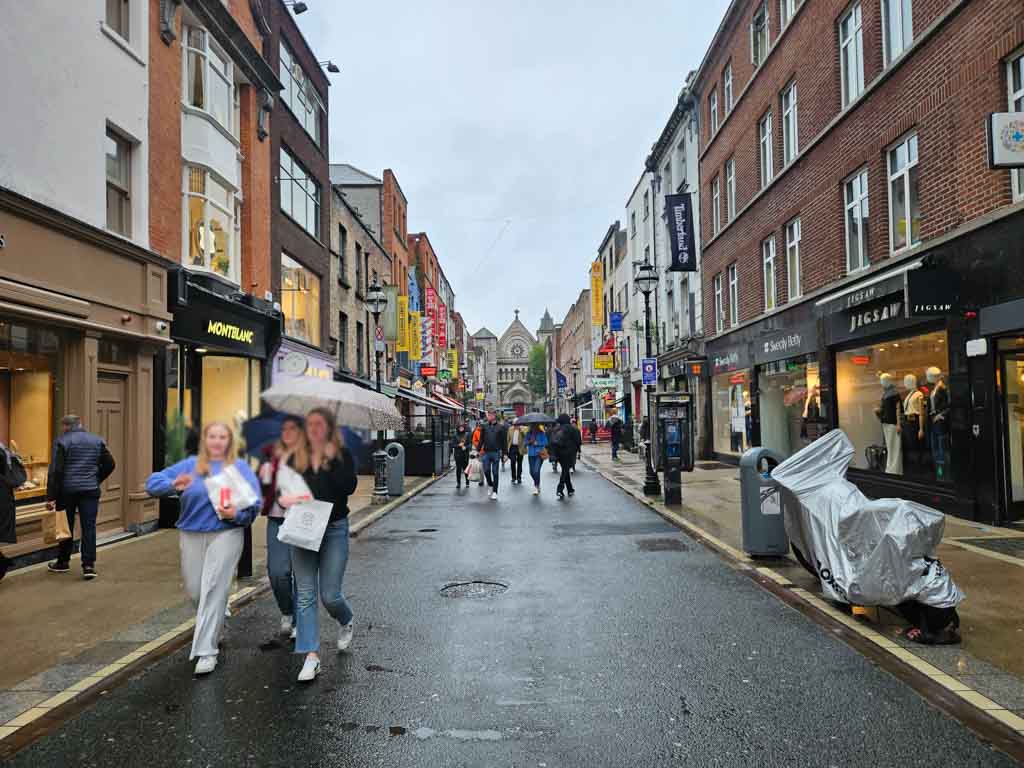
FAQs About Safety in Dublin
During the day, Dublin is safe to walk around, if you do not venture down empty and dark alleys and avoid having flashy things on display. That said, visitors should take extra precautions when walking at night such as using anti-theft bags, refrain from becoming too intoxicated, stay in groups and stick to well-lit streets where there are plenty of other people.
Is Dublin, Ireland safe for tourists at night is a question asked all the time. Generally speaking, yes, it is a safe city at night so long as tourists use common sense, don’t stray off the beaten path and stay in groups.
For the most part, yes, Dublin is safe to walk in at night but everyone, locals and tourists alike, should stick to well-lit streets, don’t walk alone and use common sense like keeping valuables and personal belongings in anti-theft bags.
Some tourists worry is Dublin safe to walk at night and this very much depends on the area they are visiting. Certain areas are ones that tourists should avoid, even in the day, while others such as Temple Bar, around Grafton Street and Merrion Square are quite safe to walk at night. That said, do it with at least one other person and stay aware.
The question “is Dublin, Ireland a safe place to visit?” is asked all the time, especially by first-time visitors. The answer is yes, if you employ common sense and follow the tips outlined in this post.
Ireland is considered a safe country to visit and in 2023 was ranked #3 on the Global Peace Index. Safety in Ireland is also a big priority for the Irish government, especially where the capital city is concerned.
The Irish Police Force is called An Garda Siochána which translates to Guardians of the Peace. The Gardaí are what they are collectively known as, and they provide local and national law enforcement services.
Asking yourself is Dublin a safe city to visit alone? Dublin is considered a very safe city and solo travellers can enjoy the city as any other traveller would. Just use common sense, especially at night.
During the day, Dublin public transportation is safe. During peak times, buses and Luas trams can become very busy and you should exercise extra precautions if travelling during this time. At night, some services are safe, but others may not be, and it is recommended to take a licensed taxi after dark to avoid any risks.
When comparing cities in Europe, some people ask is Dublin dangerous for tourists. Dublin is considered a safer city than London and many other European cities.
Is it safe in Dublin for English visitors? Yes, the city welcomes visitors from every nation across the world including those from England and Great Britain.
If you are wondering is Dublin safe to visit for American tourists, then the answer is yes. American tourists are welcomed every day in establishments across Dublin.
Is it safe to visit Dublin if you are a student? Yes, Dublin has a large student community, even in the city centre where you will find Trinity College. There are other universities dotted around the suburbs including UCD in Belfield.
Wondering is Dublin a safe place to visit if you are part of the LGBTQ+ community? Yes, Dublin is safe to visit. Each year in June, Dublin holds a large Pride event and there are LGBTQ+-friendly pubs and clubs in the city including The George on South Great George’s Street.
Dublin is an extremely friendly city where most people are met with the smile and the thousand welcomes (Céad Míle Fáilte) that we Irish are known for.
Is it safe to go to Dublin if you are an international student? Yes, Dublin has been ranked consistently in the top 10 of the Global Peace Index which includes societal safety and security and is a safe city for international students so long as they employ common sense and the tips outlined in this article. The city has a large community of international students studying courses in the likes of Trinity and UCD.
If you are wondering, is it safe to travel to Dublin as a solo female traveller, then yes. So long as you stay aware, avoid rough parts of the city, and avoid walking alone at night, then Dublin is a safe city for solo female travel.
This very much depends on location. Some locations are very safe to live in Dublin, while others are not or come with the added risk of crime. The same locations mentioned in this article for tourists to stay in are also considered safe places to live.
Yes, Ireland is LGBTQ+ friendly and Dublin has several pubs and clubs for the LGBTQ+ community.
If you are wondering how safe is Dublin at night, then overall Dublin is a safe city to go out at night provided you don’t get too drunk, avoid rough areas of the city, and keep your wits about you, just as you would in other cities around the world.
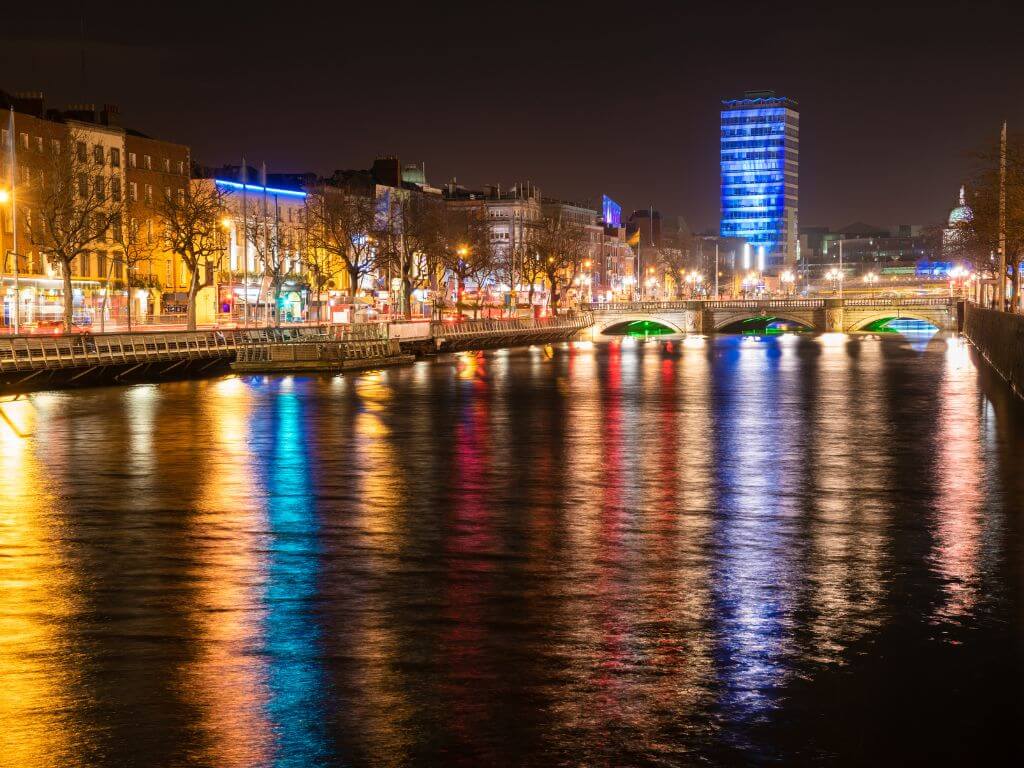
Final thoughts on is Dublin a safe city to visit
How safe is Dublin for tourists depends on several factors.
Location plays a huge part in visitor safety when it comes to accommodation and places to visit and walk around.
There are even certain areas of both the city centre and suburbs that locals will avoid if they can.
But, by using common sense and the tips outlined in this article, tourists can remain as safe as possible while enjoying the Irish capital to the full.
Dublin is like any other major city across the globe. There are good sides and bad sides to the city and if you remember all the things you would and wouldn’t do in other cities, you can rest assured you will be doing everything in your power to remain safe in the city.
Learn more about visiting Dublin:
- How to Get Around Dublin
- Underground Donut Tour of Dublin: Review
- AB Tours of Dublin: Review
- Best Food Tours of Dublin
- Best Walking Tours of Dublin
- Best Whiskey Tours of Dublin
- Best Cliffs of Moher Tours from Dublin
- Best Day Trips from Dublin
- 3 Day Dublin Itinerary
- 1-Day Dublin Itinerary
- Best Time to Visit Dublin
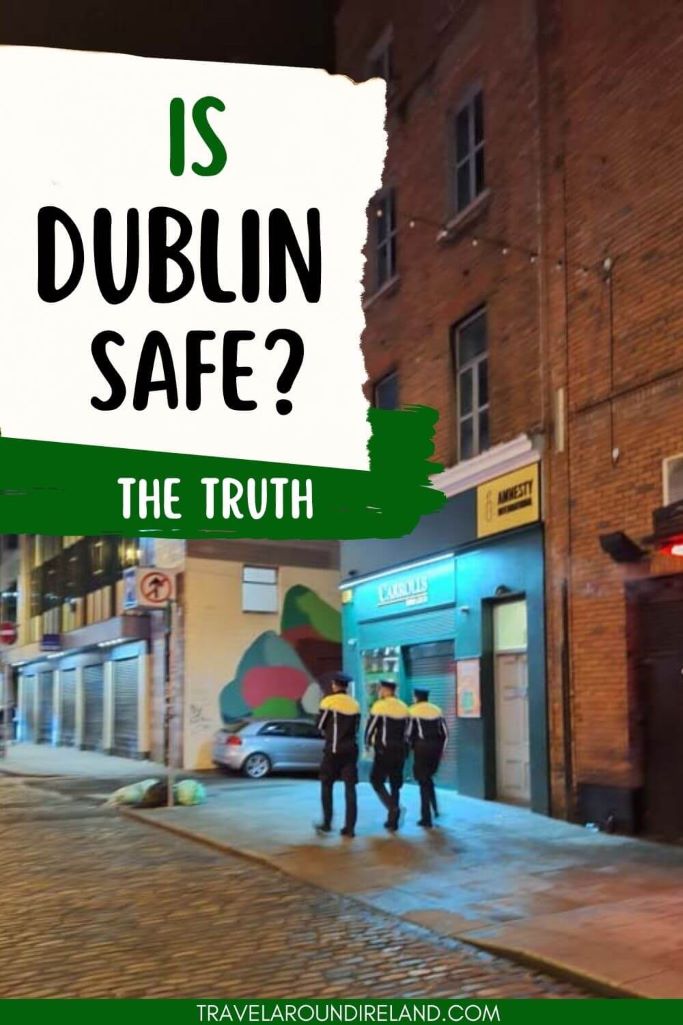
Travel Around Ireland is a participant in the Amazon Services LLC Associates Program, an affiliate advertising program designed to provide a means for sites to earn advertising fees by advertising and linking to amazon.com, amazon.co.uk, amazon.ca. Amazon and the Amazon logo are trademarks of Amazon.com, Inc. or its affiliates. To learn more about affiliate links, read my Disclosure Policy here .
by Cath Jordan
Leave a comment cancel reply.
Save my name, email, and website in this browser for the next time I comment.
Privacy Overview

Is Dublin Safe? BEST Safety Tips for Travelers in 2024

Traveling or moving abroad to a new country always poses risks. When wondering if Dublin is safe as a tourist or expat, you have to take into consideration the inherent risk of traveling anywhere. However, as a solo female traveler and expat living in Dublin, Ireland I always felt incredibly safe traveling on public transportation, in taxis, and walking around the cities both during the day and at night.
The safety of a country is partially based on your perception and biases from what you are used to, in addition to your own actions and diligence as well as the unique situations each person finds themselves in. When reading this article, keep in mind that safety for each person is different, and use your own best judgment for your particular situation.
Jump to… • Is Ireland Safe? • Is Ireland More or Less Safe than the United States? • Rate of Crime Statistics in Ireland • Do You Need Insurance to Visit Ireland? • So, Is Dublin Safe? Are There Any Threats of Danger? • Is Dublin Safe to Walk in at Night? • Are Taxis and Ubers Safe to Take in Dublin? • Is Public Transportation Safe in Dublin? Driving in Dublin? • Is Dublin Safe to Live In for Expats? • Are There Bad Areas to Avoid in Dublin? • Is Dublin Safe for Students? • Is Dublin Safe for Solo Female Travelers? LGBTQ Community? • Tips for Staying Safe in Dublin, Ireland
Is Ireland Safe? (From a Solo Female Expat)
The Republic of Ireland as a whole is a very safe country. However, that is taking into account a mix of the cities and the countryside villages. You will of course run into more crime and safety concerns in the bigger cities than if you are exclusively out in nature or in the smaller cities of Ireland.
According to the 2021 Global Peace Index , (and this article that Condé Nast Traveller just posted) Ireland is ranked as the 8th most peaceful country. Like most countries, overall the more affluent areas in Ireland have fewer personal and safety crimes, and the less wealthy areas see more crime.
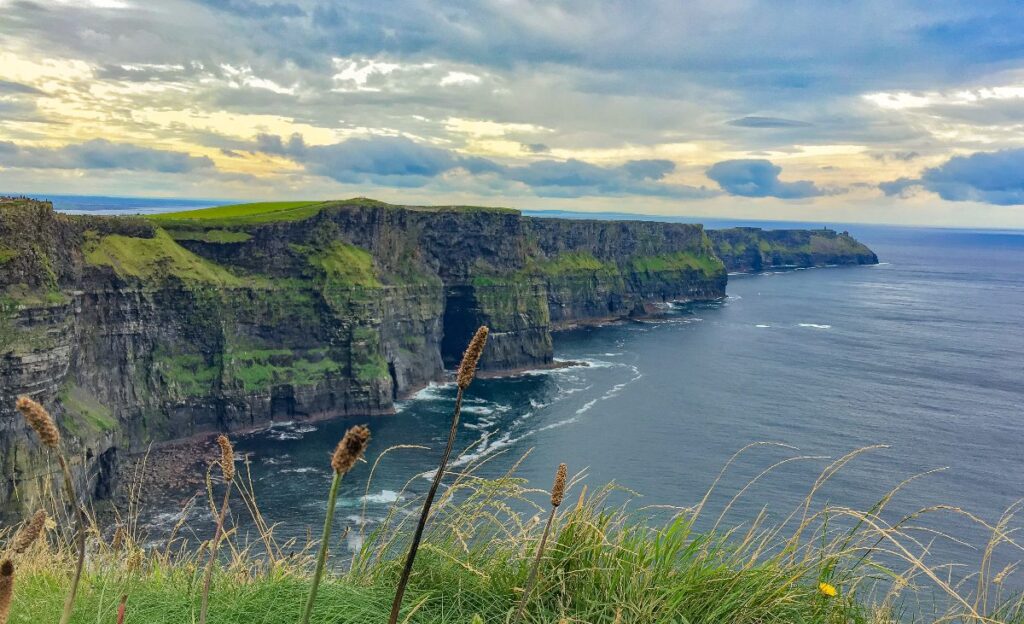
Though the 2022 statistics are still under review, as of now it appears that most crime and safety (i.e. theft, homicide, robbery, use of drugs, and use of weaponry) have DROPPED in Ireland since the previous year. The only major increase has been related to fraud and deception.
NOTE: Unless otherwise stated, all statistics I reference come from the most recently released statistics from Ireland’s Central Statistics Office .
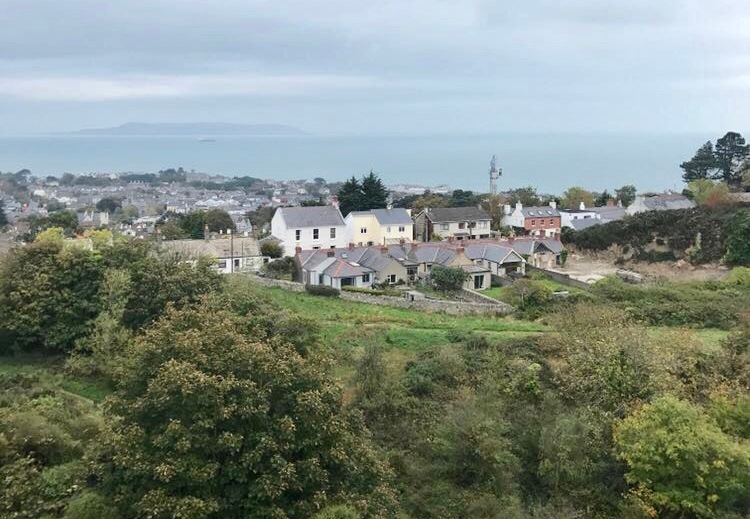
Is Ireland More or Less Safe than the United States?
Having lived in both the U.S. and Ireland, I have personally felt much safer in Dublin than in Los Angeles or other large U.S. cities. Though the more rural areas of both countries feel very similar safety-wise.
According to NationMaster , the United States has 146 times more crime (as a whole) than Ireland and the U.S. has 241 times more violent crime than Ireland.
Additionally, on the Global Peace Index, the U.S. is ranked far lower at 122.
Unfortunately, gun violence is a real threat in the U.S. that most people living there are very aware of on a frequent basis. While living in Dublin, I didn’t have to worry about gun violence or mass shootings nearly as often as I would while living in America.
Rate of Crime Statistic in Ireland
In Ireland, 10% of people aged 18 or over said they were a victim of a violent or non-violent theft (or attempted theft), an assault, or fraud ( Central Statistics Office) . In comparison to many countries, this percentage is fairly low.
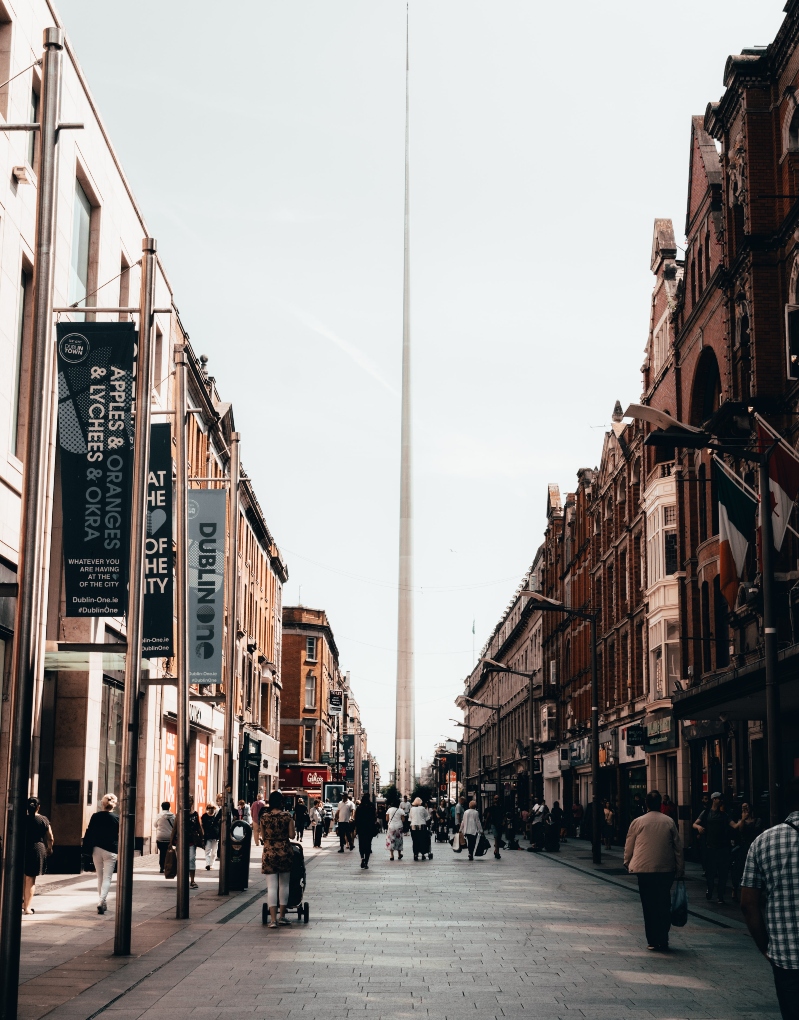
Discrimination Safety Statistics in Ireland
The rate of personal crime was marginally higher among males (10%) than females (9%), and considerably higher among persons aged 18-29 (14%) than persons in older age groups (5% of persons aged 60 or above) ( Central Statistics Office) . The younger age group is more likely out at pubs or drinking more heavily at night, which can more often lead to unsafe circumstances.
People from very affluent areas (14%) reported being victims of personal crime more than people in more disadvantaged areas ( Central Statistics Office) . As a whole, affluent areas in Ireland are safer, but there is more theft and personal crime in affluent homes.
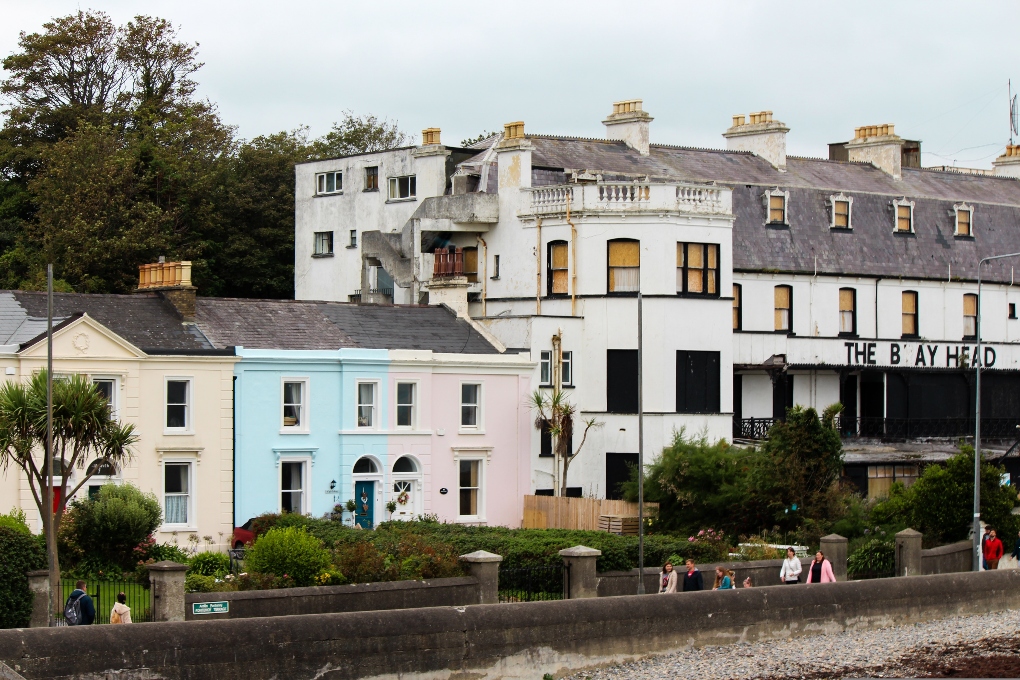
Only 7% of all crimes were believed to be based on discrimination. 4% of victims believed the crime was motivated by race, religion, or ethnicity, 3% stated that they felt the crime was motivated by gender, and 2% said they felt that age was a motivating factor in the crime ( Central Statistics Office) .
Do You Need Insurance to Visit Ireland?
You are NOT required to show proof of insurance when visiting Ireland, but it is highly recommended. Any time you travel you should always have insurance to cover you in case of an emergency.
I use and recommend SafetyWing for medical and travel insurance. It is affordable, reliable, and flexible insurance that is specifically designed for digital nomads who will be traveling long-term, though it mostly covers emergency situations which is perfect for short-term travelers as well.
For an idea of how much insurance will cost you while living abroad, use the tool below. Or, to purchase insurance directly from SafetyWing, CLICK HERE.
Is Dublin, Ireland Safe?
As far as big cities and European capitals go, YES Dublin, Ireland is very safe for tourists and expats . It is still a big city, so there will still be crime, but the crime you may experience in Dublin is mostly petty theft. The rate of crime is higher in Dublin than anywhere else in Ireland, so exercise more caution while you are in the city over the rest of the country, but there is not much need to fear for your safety.
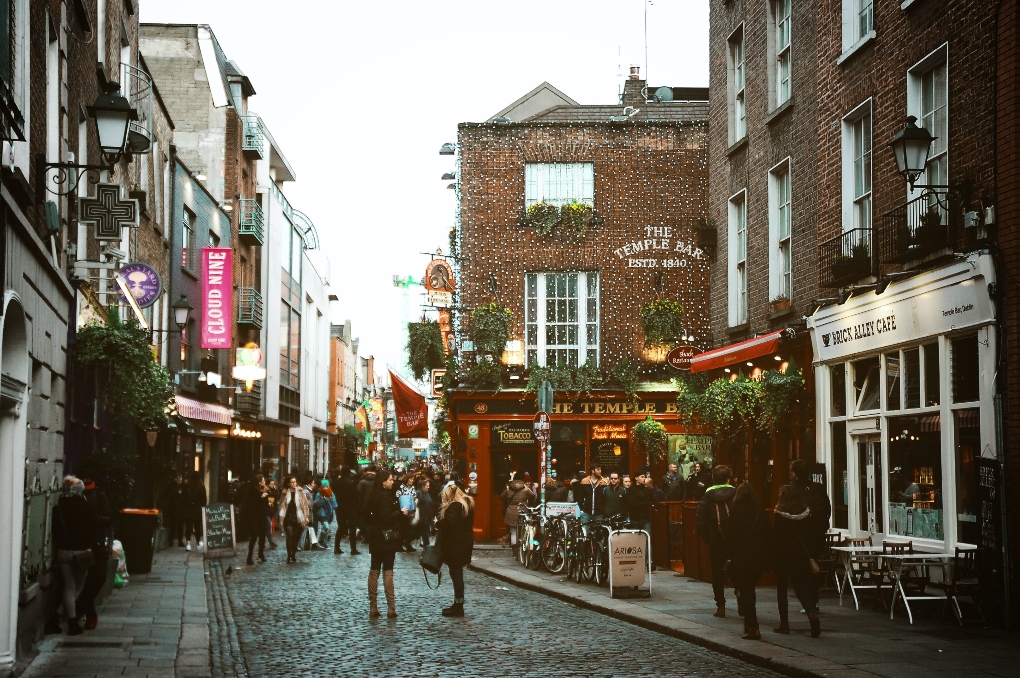
Is Dublin Safe for Travel in 2022-2023?
Yes! Dulin is safe to travel in right now. In fact, Condé Nast Traveller just named Ireland the number 8th safest country in the WORLD.
Dublin is a popular tourist destination for a variety of reasons: its rich history, its vibrant culture, and its friendly people. However, some travelers may be concerned about safety, particularly in light of the recent increase in terrorist activity in Europe.
While it’s always important to be aware of your surroundings and take precautions when traveling, Dublin is generally a safe city. The Irish government has made security a top priority in recent years, and there is a heavy police presence in the city center.
In addition, most hotels and businesses have security measures in place to protect guests and customers. With a little planning and common sense, you can enjoy a safe and memorable trip to Dublin.

Is Dublin a Dangerous City at All?
No, Dublin is not a dangerous city. There are no real natural threats such as dangerous animals or natural disasters and weather. There is not much danger in Dublin from people either, other than petty crime. I never felt like I was in danger while living in and exploring Dublin!
Is There a Risk of Terrorism in Dublin?
Dublin is one of the safest cities in the world, and there has not been a threat of terrorism in recent years. The Irish government has been very successful in combating terrorist activity, and there has not been a serious incident in over a decade.
Dublin is a welcoming and safe city for visitors, and there is no need to be concerned about terrorism. However, as with any major city, it is always advisable to take basic precautions such as being aware of your surroundings and not leaving valuables unsecured in public places.
Is There Any Risk of Natural Disaster in Dublin, Ireland?
Dublin is very safe from natural disasters. The country is not located in an area prone to earthquakes, hurricanes, or other catastrophic weather events. As a result, Dublin tourists and residents can rest assured that they are unlikely to experience any type of natural disaster.
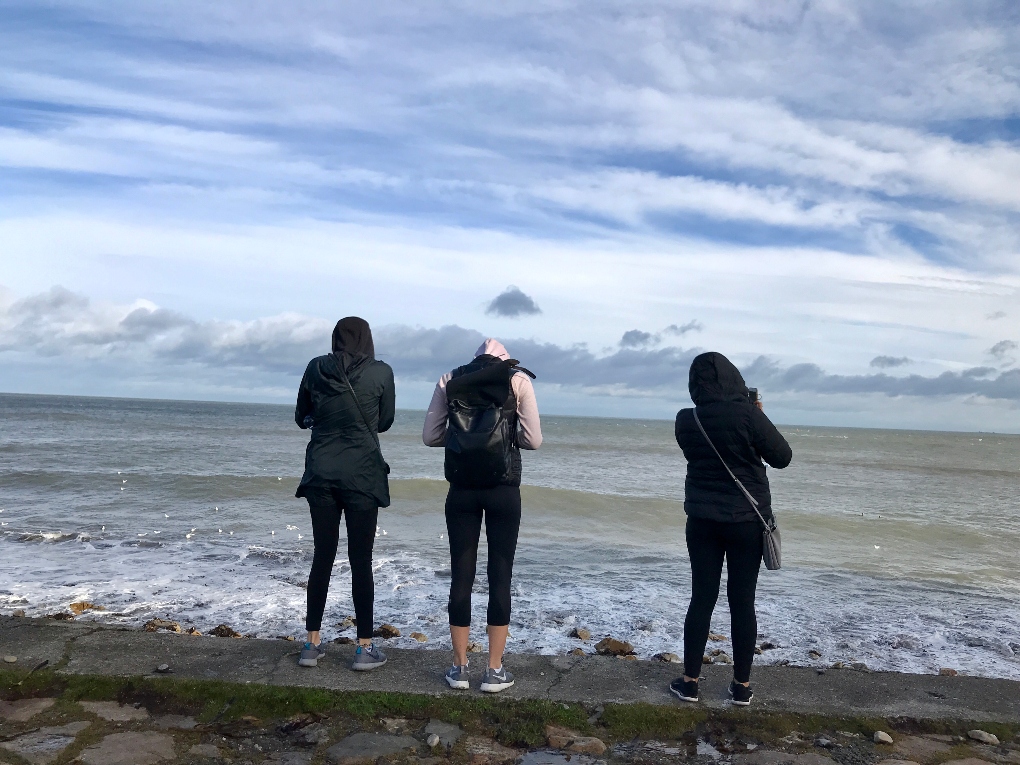
However, it is still important to be prepared for emergencies, as no place is completely safe from all risks. Therefore, Dubliners should familiarize themselves with the city’s emergency procedures and have a plan in place in case of any unforeseen event.
There may be some threat of flooding, though very minimal and Ireland is well prepared for heavy rain. While I lived in Dublin, there was one hurricane that minimally threatened Ireland. Dublin was not in an area that was really of concern, though schools and some businesses did still shut down just in case. All we got in Dublin was rain and some serious wind that delayed flights for a few hours. Dublin responded very quickly and efficiently, even though the threat of actual disaster was very low.
Rate of Crime Statistic in Dublin
The Dublin region had the highest reported rate of victimization (13%) for personal crime, compared to victimization rates of between 8% and 10% for personal crime in the rest of Ireland ( Central Statistics Office) .
However, over two-thirds (68%) of persons aged 18 and over said that they felt the Gardaí (the Irish police) were “very effective” (17%) or “quite effective” (51%) at tackling crime in their local area.
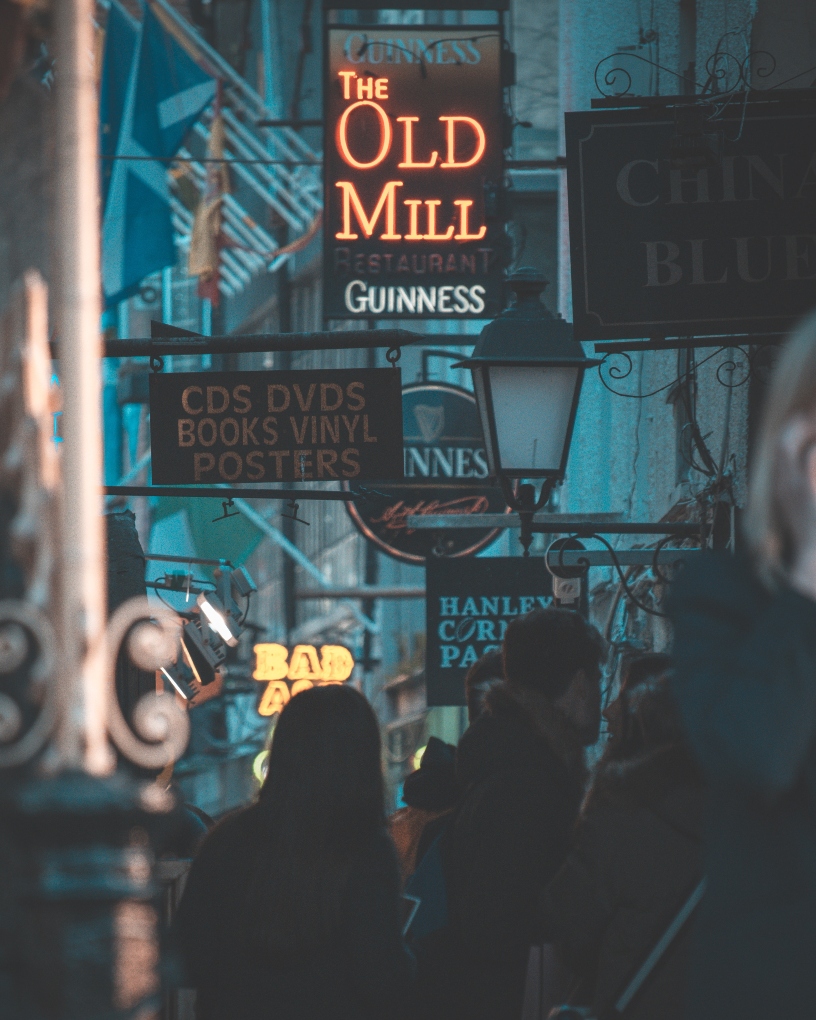
Is Dublin Safe to Walk in?
While it’s always important to be aware of your surroundings and take precautions when traveling to any new place, Dublin is generally a safe city for tourists to walk in , at any time of day or night. The crime rate is low and most visitors feel comfortable walking around during daylight hours.
Of course, as with any large city, there are areas that are best avoided at night, but overall Dublin is a safe place to explore on foot. Just use your common sense and you’ll have a great time.
Is It Safe in Dublin at Night? Tips for Walking in Dublin at Night
I found Dublin relatively safe to walk around in at night. Now, as a young female, I always tried to stick to a group and not walk around Dublin at night by myself. There were plenty of times, especially in the winter when the sun set early, that it would be dark by the time I walked home from class and I never had any troubles.
75% of people aged 18 and over said they felt “very safe” or “fairly safe” walking around Dublin at night. This feeling of safety was considerably lower for females (64%) than for males (87%) ( Central Statistics Office) .
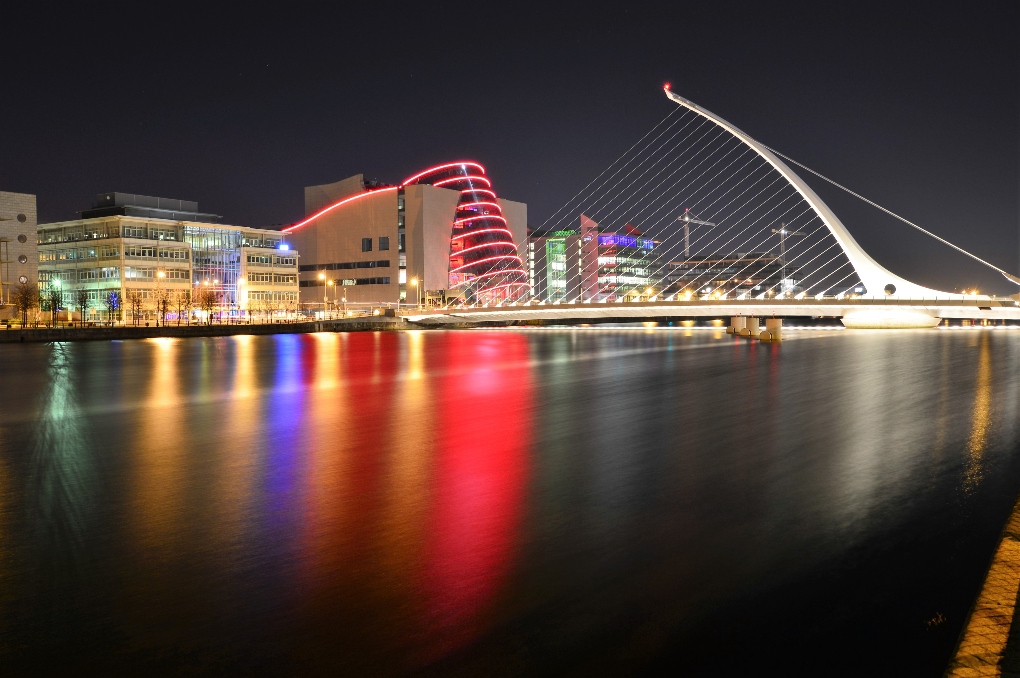
The biggest thing to worry about at night in Dublin is drunk and homeless people, drunk people being more of the issue. There were a handful of times I encountered some interesting characters while trying to get home, as you will in every big city. Stay in well-lit areas that have some other people around and this is almost never a major issue.
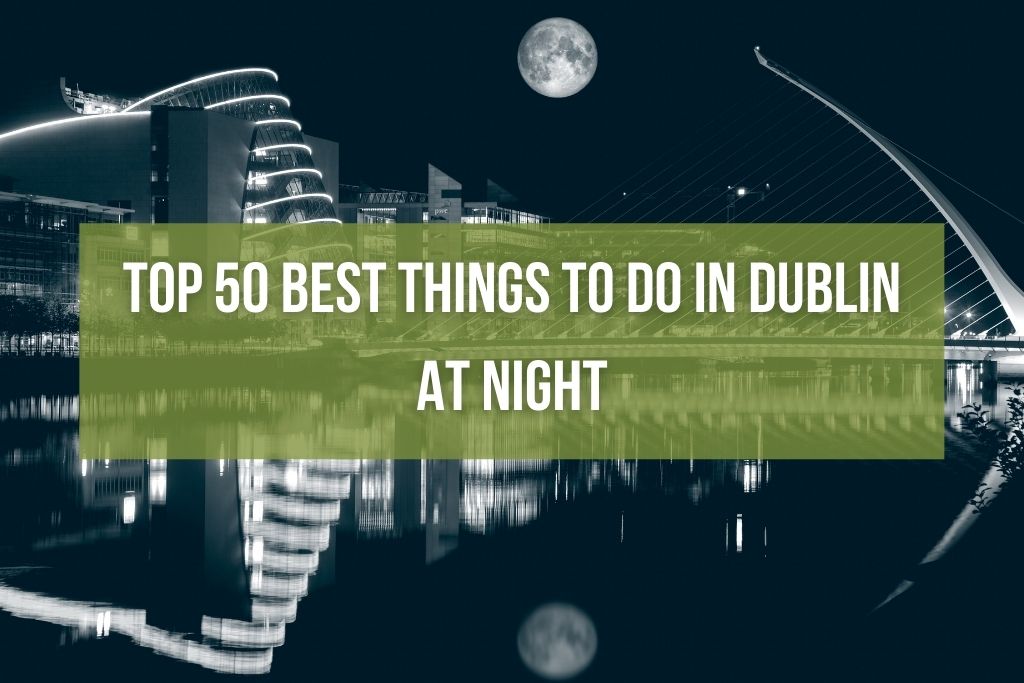
Are Taxis and Ubers Safe to Take in Dublin?
Yes, taxis are generally safe to take in Dublin and quite plentiful around the city of Dublin. Taxi scams are prevalent in major cities around the world, and it does happen rarely in Dublin. Keep in mind that private cars for hire are not allowed in Ireland, so you will be calling a taxi if you use the Uber app .
Using a rideshare app can be a good idea because your ride is tracked. Or, have your hotel call your taxi so you know it is coming from a reputable source. Always pay attention to markings and the inside of your taxi and use your best judgment on safety.
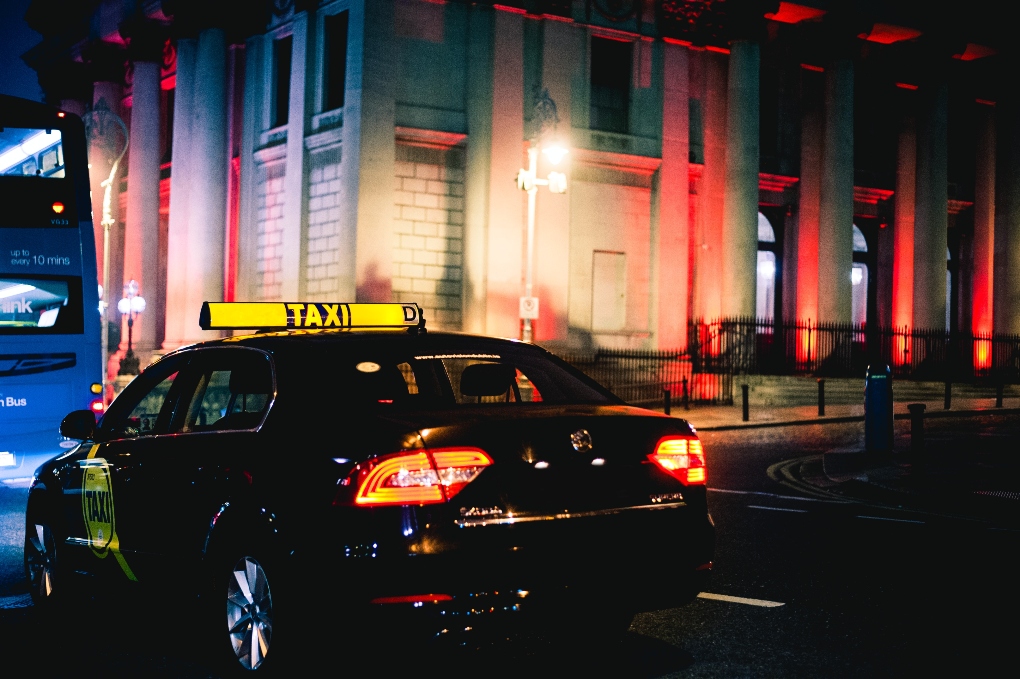
Is Public Transportation Safe in Dublin?
Public transportation is also fairly safe and reliable to use, especially from Dublin city centre. I would avoid taking public transportation or being at the train station later in the night when possible and opt for a taxi over public transportation and walking when it is very late at night.
Beyond the odd (but harmless) character, I never had any issues or concerns with Dublin public transportation. Especially if there are a few other passengers on board, you are not likely to run into any problems.
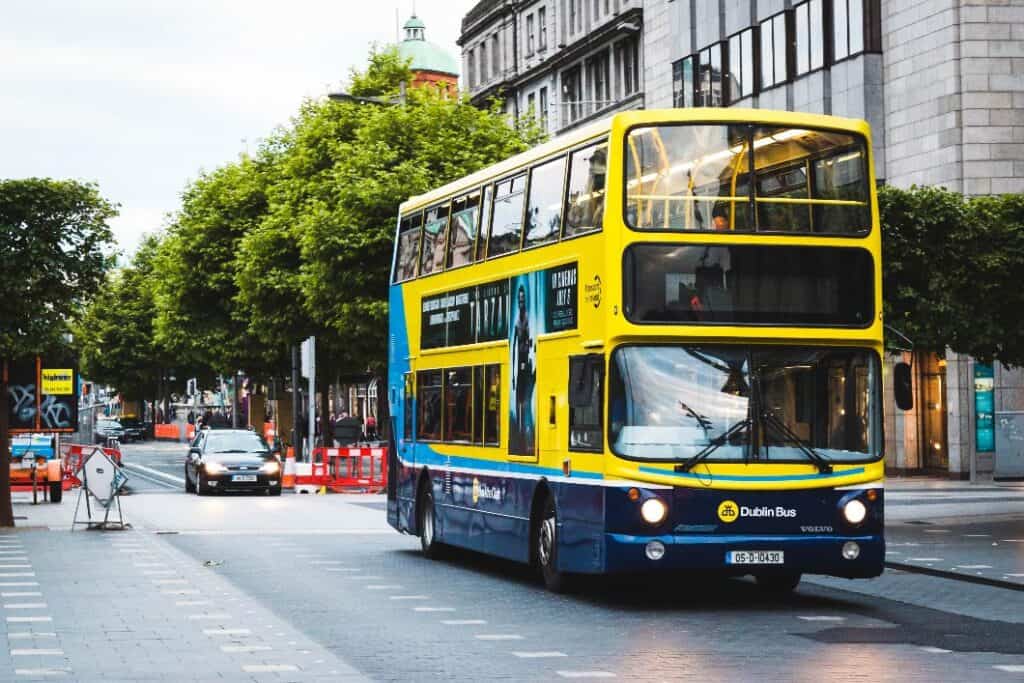
Is Dublin Safe to Drive In?
Yes, it’s safe to drive in Dublin, but public transportation is often more reliable and efficient. Walking is also a great way to get around the city, and it’s often the best option when exploring everything Dublin has to offer.
I don’t recommend renting a car or driving in Dublin if you don’t have to. The roads are crowded and parking can be a nightmare and expensive. Everything in Dublin is close enough that taking either public transportation, walking between sites, or taking a taxi is generally quicker and more affordable.
As a traveler to Dublin, driving can be a bit dangerous if you aren’t familiar with driving on the left side of the road or with a stick-shift car. Additionally, the different rules of the road can be confusing and cause you to be a bit more distracted with driving.
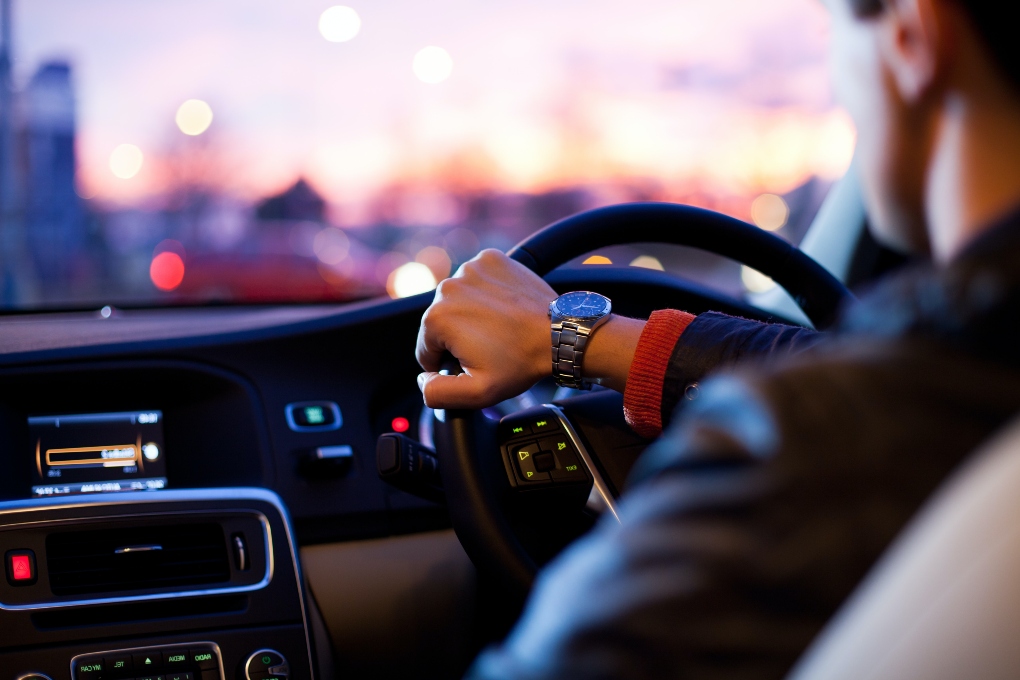
While drivers in Dublin are generally courteous and follow the rules of the road, pedestrians should exercise caution when crossing streets and be aware of their surroundings at all times. With a little planning and common sense, visitors to Dublin can safely enjoy all that the city has to offer.
As a whole, I always say don’t rent a car if you are just staying in Dublin or going between the major cities. Only rent a car if you are exploring the countryside and have time to become familiar with the Irish roads!
Prefer to drive your own car rather than risk a taxi or public transportation? My go-to car rental service in Ireland is Discover Cars . They compare prices across the leading car rental services to find you the lowest prices and best deals. 🚗 CLICK HERE TO SEARCH FOR YOUR RENTAL CAR
Is Dublin Safe for Foreigners and to Live In as Expats?
Again, I never had any safety concerns while living in Dublin as an expat and found it a very safe city to live in. As far as European countries go, Ireland as a whole feels extremely safe, and Irish people and incredibly friendly. However, if you are concerned about the safety as an expat in Dublin, there are so many wonderful cities across Ireland to look into instead.

Households in the Dublin region were the most likely to be victims of household crime over other parts of Ireland, with 6% of Dublin households saying they had suffered a burglary or theft. 5% of Dublin households were victims of burglary and 3% were victims of vandalism ( Central Statistics Office) . A very low percentage for a large city.
The 5 Things I WISH I Knew Before Moving to Ireland
Unsubscribe at any time.
Are There Bad Areas to Avoid in Dublin?
Every major city will have bad areas where crime happens more frequently, often in the less affluent neighborhoods. As is true anywhere, be extra cautious anywhere crowded or considered “touristy” (i.e. Temple Bar, Grafton Street, etc.) because there is a higher likelihood of pickpockets and petty crime and theft.
I found that just north of the river and the farther west you go from the city center has more areas that feel unsafe. Though nothing ever happened to me even here.
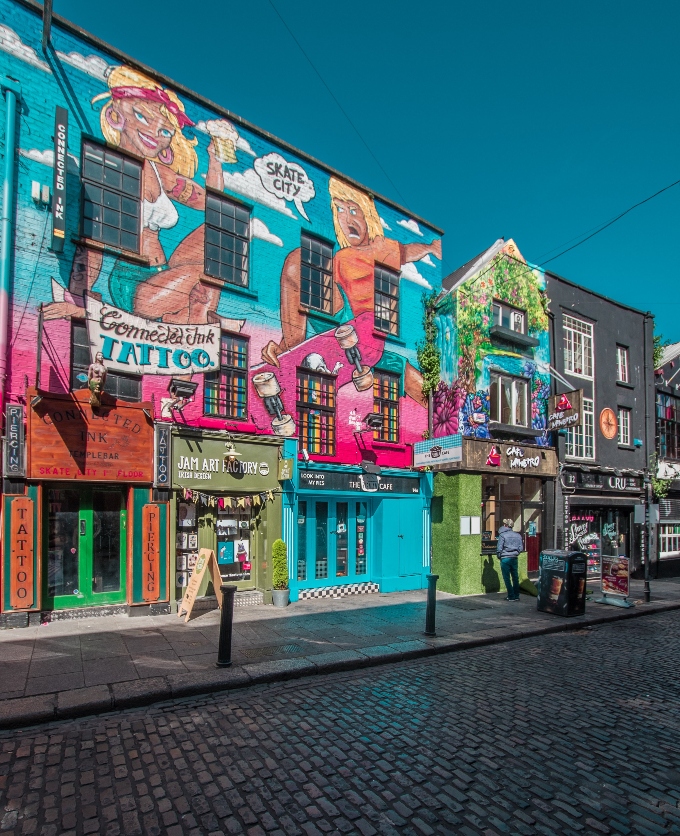
Ireland’s most crime-ridden district is around the Pearse Street Garda station in Dublin’s south side inner city. However, it’s good to keep in mind that this is probably due to the high concentration of university students and drinking that likely occurs on and around the campus where some students live and thus creates a higher crime rate. I never felt unsafe on Pearse Street, but you might want to avoid it if you can and exercise higher caution in this part of Dublin.
Tallaght & Blanchardstown (right below Tallaght) are also known to be less safe. However, this is more of a concern for expats looking at the best neighborhoods to live in as opposed to tourists, as both areas are outside of the Dublin city center.
What Are the Safest Neighborhoods in Dublin?
Dublin City Center (near all the popular tourist areas such as Dublin Castle and Trinity College) is a very safe part of Dublin for both tourists and those living in the city. Portobello and Smithfield are some of the best places and very safe parts of Dublin. Portobello, in particular, is a good place to stay, as it’s close to the city center but it’s also becoming very trendy with the bars, clubs, and restaurants in the area.
Is Dublin Safe for Students?
According to World Scholars Hub , Ireland is the #7 safest country to study abroad in 2022, with low crime rates.

I was a student while I lived in Dublin and had the most amazing time! The people were friendly, so I quickly made friends to explore the city with. Campus ( Trinity College Dublin ) always felt very safe as it was constantly crowded with students, scholars, and even tourists. The main streets are always well lit and I had no problems getting home to my student accommodation from campus at any time of the day.
Is Dublin Safe for Solo Travelers?
Safety for solo travelers is a question that is often asked by those considering a trip to the Irish capital. The answer is yes, Dublin is safe for solo travelers.
Of course, as with any city, there are certain areas that are best avoided late at night time, but overall Dublin is a friendly and welcoming place. In addition, the city is well-equipped with security cameras and other safety features, so you can rest assured that you’ll be safe during your stay. So if you’re thinking about visiting Dublin, don’t let concerns about safety stop you from enjoying all that this vibrant city has to offer!
Is Dublin Safe for Female Travelers?
As a solo female traveler myself, I can confidently recommend Dublin as one of the safer cities for female travelers. Ireland is one of the safest countries for solo female travelers and is actually ranked as the 3rd safest in the world according to this Women’s Danger Index .
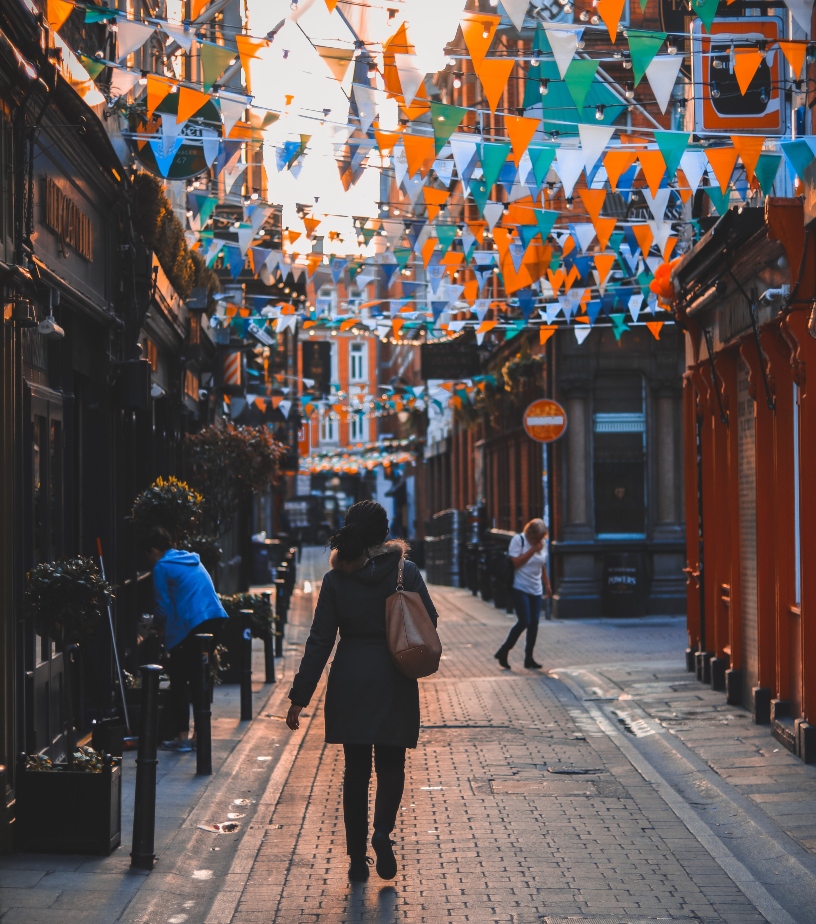
As always, we know to stay extra aware when traveling alone as women, and Dublin is no exception. As far as large cities go, this is one you could do by yourself and stay safe.
Is Dublin Safe for the LGBTQ+ Community?
Dublin has a very strong LGBTQ community. Ireland was actually the first country to legalize gay marriage by popular vote, and they are very proud of it! There are LGBTQ bars and clubs around town that create a safe space for everyone to express themselves.
My best friend when I lived in Dublin was strongly involved in the LGBTQ+ community in Dublin and was constantly attending club meetings at the university (Trinity College) as well as around town. So, there are certainly plenty of ways to get involved in LGBTQ+ communities and events around Dublin.
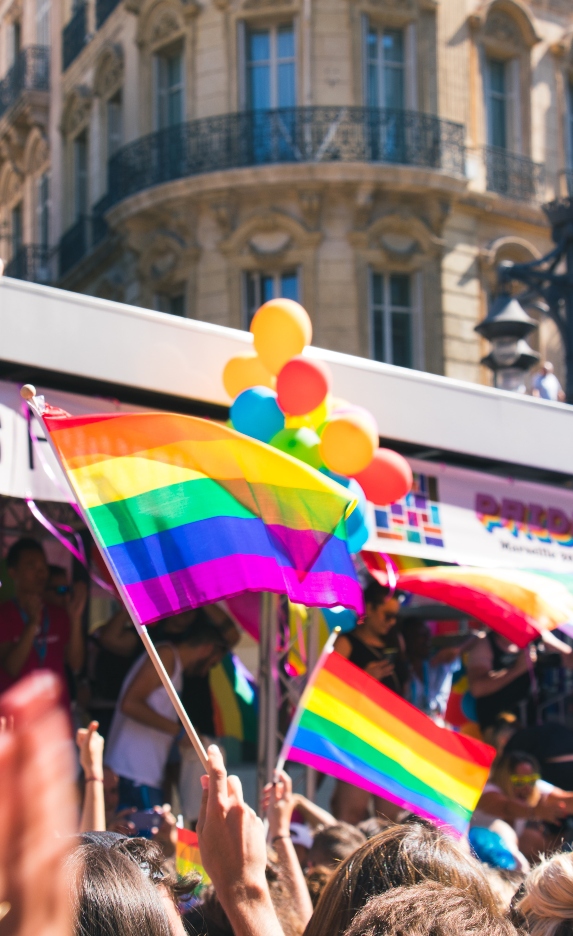
One of Ireland’s oldest and biggest gay bars is The George, right in the middle of Dublin’s city center. It’s a fantastic club that hosts drag nights, karaoke, dancing, and more.
Dublin Safety and COVID-19
At the moment, over 80% of Ireland is fully vaccinated against COVID-19. Since a big spike in cases in January 2022, cases have been far lower and staying relatively low. However, information on the pandemic changes quickly, and I recommend you stay up to date with the CDC recommendations and health information from the government of Ireland directly.
Tips for Staying Safe in Dublin, Ireland
- Stay in a group whenever possible
- Don’t walk alone at night
- Have your phone out and open when riding in a taxi in case you feel unsafe
- Stay on the well-lit main streets at night
- Carry pepper spray at night
- Have a general idea of the city and where you are at all times (stay aware of your surroundings)
- Don’t flash large amounts of cash or expensive jewelry/items
- Wear a cross-body (or under the clothes) purse
- Keep your phone in your purse or front pocket instead of your back pocket
- Take a taxi home from the pubs/clubs instead of walking

Are There Any Issues with Food Safety in Dublin?
No, there are no issues with food safety in Dublin. Dublin is a great place to find excellent restaurants and delicious meals! The food is fresh, the restaurants are plentiful, and the people serving are friendly. I have never had any issues with food safety in Dublin. I would definitely recommend it as a place to eat!
Is It Safe to Drink the Water in Dublin?
When traveling to a new country, it’s always important to ask if it’s safe to drink the water. The water in Dublin IS safe to drink and there have been no problems with the quality of the water supply in recent years. There are occasional boil-water notices that are issued as a precautionary measure, but these are usually lifted within a day or two. So, if you’re wondering is it safe to drink the water in Ireland? The answer is yes!
Is Dublin or London Safer?
I personally felt safer in Dublin, partially because the city is smaller so I knew the areas to avoid better. Dublin is marginally safer than London according to statistics as well.
The level of crime in Dublin is rated as “moderate” (57.40) whereas in London it is rated as “high” (62.58) ( Numbeo ). But both have fairly comparable crime levels.
While Ireland was the 8th most peaceful country in the world, the UK comes in at 33rd, which is not far in the grand scheme.
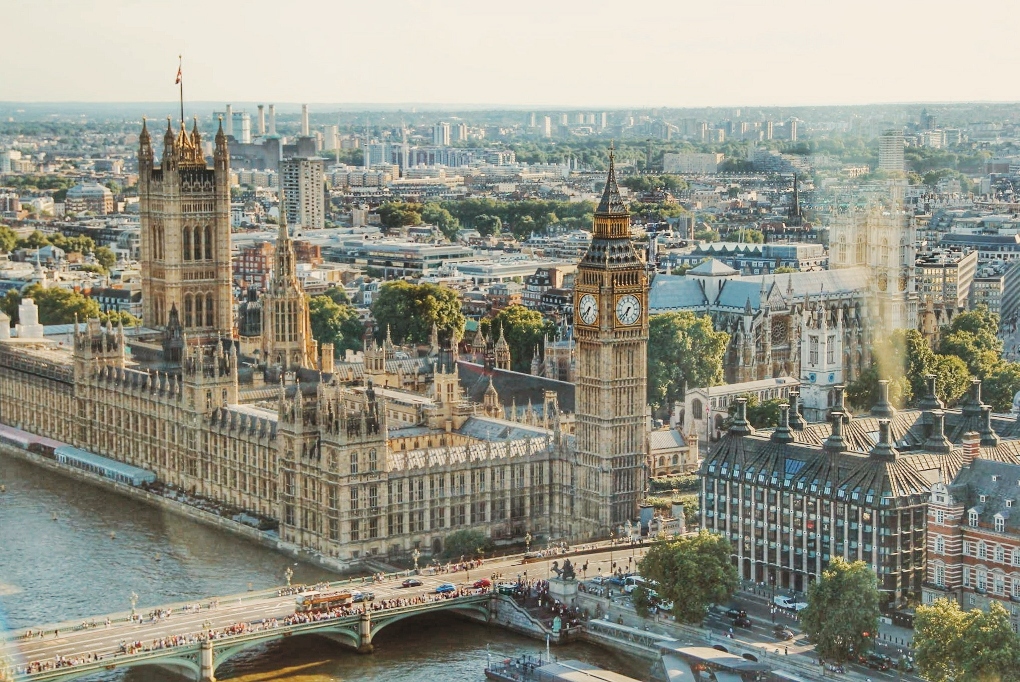
So, Is Dublin Safe?
Yes, Dublin, Ireland is a very safe city to visit and live in. Many of the tips for staying safe in Dublin are the same as you would find for any tourist or any person in a big city. Above all else, stay aware and use your common sense and best judgment to stay out of trouble and avoid any safety concerns.
Looking for resources to use for your next trip or move abroad? CLICK HERE for my favorite travel and expat tools!
Related Posts:

☘️ FAQs About Ireland ☘️ ✈️ Where Can You Find the BEST Flight Deals to Ireland? 1. Scott’s Cheap Flights – FREE flight deals alert, works best if you can be flexible 2. Skyscanner – FREE search engine, great for budget flights + deal ❗ Is Travel Insurance Required in Ireland? No, it’s not. However, it’s always recommended to have travel insurance any time you travel in case of injury, accident, lost luggage, missed flight, etc. The best and most affordable travel/expat insurance is Safety Wing . >>> CLICK HERE FOR INFO ☔️ When Is the Best Time to Visit Ireland? Summer (June-August) – is the warmest and rains the least but you will have the most crowds. Spring (March-May) or Fall (September-November) – are cooler and have more rain but you will beat the crowds and see some incredible wildflowers ( spring )/greenery (fall). 🏠 Where Should You Stay in Ireland? Hotels, hostels, vacation rentals, and house sitting are all available in Ireland for accommodation. My top recommendations for each are: • Booking.com • Hostelworld • Vrbo (usually better options than Airbnb in Ireland) • Trusted Housesitters (watch a home/pets in return for a FREE place to stay) ☘️ Where Can You Find Tours? I found incredible tours in Ireland >>>HERE for private and guided group tours of both the most popular attractions and ones that fit your specific interests. 🚘 Should You Rent a Car in Ireland? I always tell my friends and family to rent a car in Ireland so that they don’t miss out on the gorgeous scenery and wonderful things to do in between the big cities! However, if you plan to stay only in the cities, then you should be fine getting by with buses and walking. >>> What to know about driving in Ireland >>> The best car rental in Ireland 🍻 Make sure to try out the pubs ! Even if you don’t drink, the atmosphere, live music, and friendly people are very uniquely Irish.
Janelle Axton is a travel consultant and owner of Make the Trip Matter, a service dedicated to helping people create a lifestyle around frequent travel and extended time abroad. She grew up in California and spent time living abroad in Ireland in addition to traveling to over 25 countries.
Similar Posts

21 Top-Rated Day Trips from Killarney
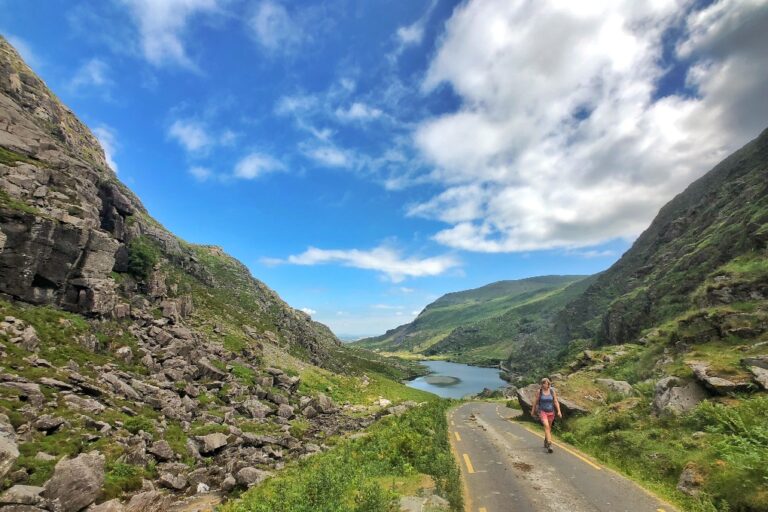
Top 5 Best Gap of Dunloe Tours + Important Information (2024)
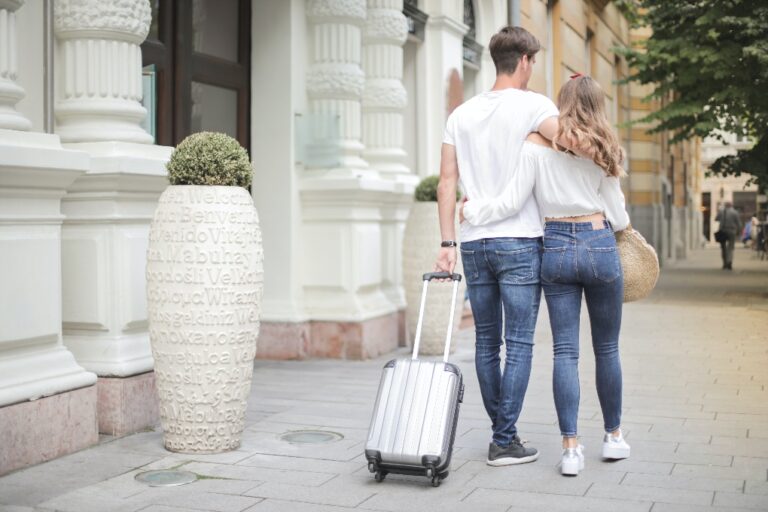
45 Romantic and Fun Things to Do in Dublin for Couples (2024)
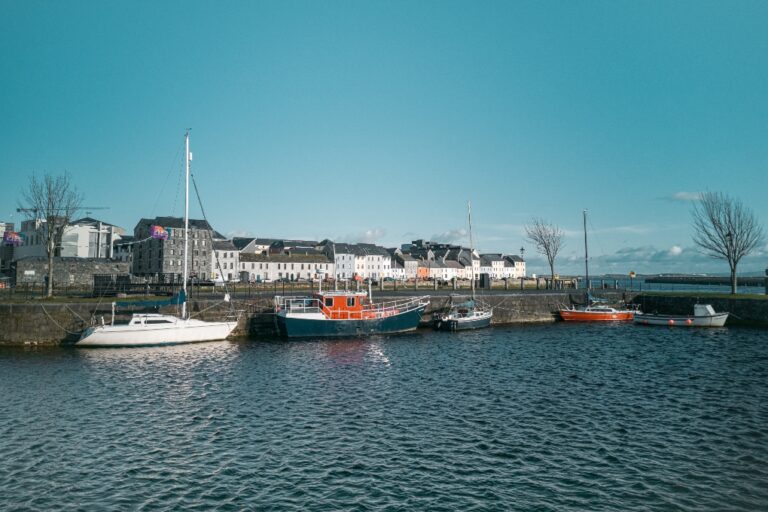
17 Epic Things to Do in Galway in December (2024)
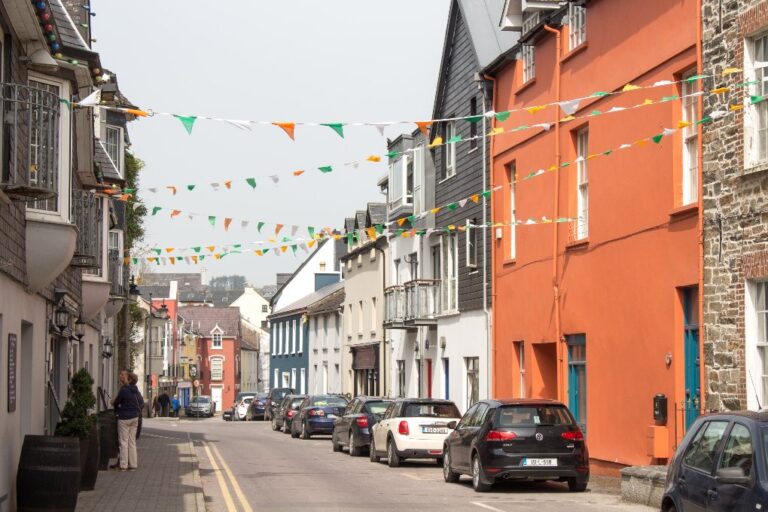
Top 10 BEST Places to Stay in Southern Ireland

25 Incredible Half-Day Tours and Trips From Dublin (2024)

Your Ireland Travel Guide
- Ireland Facts
- Things To Do
- Travel Tips
- Is Dublin Safe for Tourists?
With over 9 million visitors per year pouring into Ireland there is no doubt that it has become a popular tourist destination. Many tourists come to see the beautiful scenery, the coastal drives, experience the rich history, or simply to discover their own heritage.
Many of the visitors to Ireland shores will head for the capital city of Dublin . This historic and amazing city houses treasures such as Trinity College, The Book of Kells and is home to some of the oldest pubs in Ireland.
Dublin is safe and welcoming to visitors but as with most cities, it is wise to take some simple precautions to ensure that you don’t run into any issues. If you are planning a trip to Ireland soon and Dublin is on your lists of places to see then read on for tips to keep you and your family safe during your travels.

Is Dublin a safe city?
The answer is generally yes. Ireland has a tradition of being friendly and welcoming to tourists and Dublin does its best to uphold the tradition.
Don’t be surprised if the local Irish folks stop you for a chat or offer to buy you a pint if you happen to be patronizing one of the many local pubs.
As with most larger cities, there is an element of crime in Dublin but it tends to be of the non-violent variety such as car theft or pickpocketing.
If you are a tourist you may look a bit out of place so it is best not to tempt fate. Try and travel in a group or with one or 2 family members. If it is later on a night then pay for a cab ride or Uber to get you back to the hotel.
Some parts of the city are riskier than others, especially to the northern areas so check the areas that you are planning to visit to make sure that you do not inadvertently stray into any not so nice parts and limit the amount of cash and valuables that you are carrying with you.
Is Dublin safe to travel alone?
This can depend greatly on who you are and where you are. For example, if you are a local Irish person that’s familiar with the areas then you will be relatively safe. If you are a tourist and an obvious one, you may be at greater risk in some parts of the city.
In the more populated areas of the town, you will be safe walking around shopping or going from pub to pub. Using public transportation will also be a pretty safe option for getting to where you want to go.
If you are heading a little further out of the city or to less desirable parts of it then traveling alone may not be the safest bet.
Stick to the daylight hours if possible or use taxis or Uber to travel in and out of these areas to limit your exposure. Try to blend in and not look too touristy and again consider the amount of cash you need to have on your person and only carry what you need.
Is Dublin safe for a solo female?
In Irish culture, women are generally free to come and go as they please. There is no stigma attached to a woman going out on a night by herself or even popping in the local pub for a drink alone.
The culture of Ireland places importance on treating people correctly and being hospitable. Meaning that if a solo woman encountered harassing behavior the chances are that someone would step-in.
Women are commonly treated as equals or one of the boys even in pubs and bars and should any woman be the recipient of an unwanted behavior or uninvited male attention this is quite commonly regarded as rude or inappropriate by way of traditional Irish values.
Over the years many newcomers have arrived and made Ireland their home who may not share the same views or have as much respect for women but the local Irish definitely are a chivalrous lot so a woman alone should not fear for her safety.
Some common-sense rules apply the same as they would in any other large city. If traveling home late at night, opt for a taxi rather than walk and avoid any remote or unlit area to reduce any risk.
Is North Dublin safe?
If you read any number of articles on the internet they will most likely tell you that South Dublin is nice and North Dublin is not so nice. This is in fact quite a general view. The areas are varied and neighborhoods in both regions can vary in terms of pleasantness and safety for visitors.
In plain English, there are good and bad areas in both North and South Dublin. North Dublin does have a bit more of a stigma so if you are concerned about traveling to that part of the city then do a bit of research before you decide to travel.
Many of the North Dublin neighborhoods have a reputation for being a bit rough but that said there are several that have cleaned up over the years. The once much-maligned neighborhood of Finglas, for example, has had a renaissance in recent years and become a desirable place to live. It is now touted as a large suburb with a village feel.
Is Temple Bar Dublin safe?
Temple Bar is a hotspot for Dublin’s locals and tourists in the past few years. This lively area contains some of the best bars, restaurants, live music, and the best restaurants in all of Dublin. It has become somewhat of the cultural capital of the city.
Situated on the River Liffey south bank this popular area is a few blocks of winding, cobbled streets with boutiques, bars and eateries crammed in. This is also the area that attracts musicians and artsy types with a total of 3 theaters in the area it is a great place to see a show.
By day you can stroll around and enjoy the markets, buskers, and museums in the area. There is a the National Photography Museum and the Film Institute that people may visit. Or just sit at one of the many cafes and enjoy a drink and a snack while watching the world go by.
After dark Temple Bar becomes Dublin’s main party area with people coming out to enjoy the bars and music on offer. In the early evening, many families with children can be seen walking about the area.
Due to all this activity and a large number of people in evidence, no matter what time of the day or night it may be, this serves to keep the Temple Bar area one of the safest in the city.
Due to the sheer volume of folks and the popularity of the area, there is usually a visible police presence there which serves to keep Temple Bar even safer still.
Are there any Area’s to avoid?
While it may not be necessary to avoid there are some areas where it may be prudent to not go to them unless you absolutely have to.
Some areas of Dublin that are in transition or have been experiencing some gentrification over the past few years.
The best thing to do if you are traveling alone or feel unsafe is to ask around once you are in Dublin and see if there are areas you should avoid.
As with most large European cities, it is wise to use your own judgment and common sense when visiting different areas and neighborhoods, especially if you are to be out after dark.
There is always increased safety in numbers so traveling in small groups where possible is always advisable.
As mentioned earlier, the vast majority of crime in Dublin is non-violent but keep a sharp lookout for pick-pockets especially if you are in a busy area or attending large events filled with crowds such as concerts or similar events.
Many tourists have returned home to find that they are minus cash or credit cards so place wallets carefully and be extra vigilant.
Should you be going to any parts of the city that you are not familiar with try and read up on the location first or ask your hotel’s concierge or reception staff to provide you with some information and guidance before setting out to get a feel for the location you are visiting.
The basic safety rules and common sense apply when traveling around, but all in all, Dublin is a very safe city for tourists to spend time in.
Share this:
- Click to share on Twitter (Opens in new window)
- Click to share on Facebook (Opens in new window)
Leave a Comment Cancel
Your email address will not be published. Required fields are marked *
Email Address *
Save my name, email, and website in this browser for the next time I comment.
Notify me of follow-up comments by email.
Notify me of new posts by email.
This site uses Akismet to reduce spam. Learn how your comment data is processed .
Most Recent Posts
- Ireland vs Canada: Which Country is Best to Live In?
- Drinking Laws in Ireland: 9 Things You Need To Know
- How to Drink Guinness Properly
- How Much Should You Tip in Ireland?
LEGAL INFORMATION
This site is owned and operated by Elevate Publishing Inc. Elevate Publishing Inc is a participant in the Amazon Services LLC Associates Program, an affiliate advertising program designed to provide a means for sites to earn advertising fees by advertising and linking to Amazon.com. Elevate Publishing Inc also participates in affiliate programs with Bluehost, Clickbank, CJ, ShareASale, and other sites. Elevate Publishing Inc is compensated for referring traffic and business to these companies.

Is Dublin Safe for Tourists? Staying Safe in the Irish Capital in 2024
Is Dublin safe for travel? How safe is Dublin overall? Are there any areas of Dublin that I should avoid?
For many, a trip to Ireland is a bucket list vacation that sits on a pedestal above most others. Rolling countrysides speckled with roaming sheep meets lively pubs, traditional folk music, and impressive historical castles. Since most Irish road trips start in the capital, many are left wondering… “is Dublin safe?”
And we’re here to tell you that your question is 100% valid! In this post, we’ll answer 18+ of your burning questions regarding safety in Ireland so you can be fully confident in your decision to visit Ireland’s east coast.
You’ll have everything you need to know before visiting both the capital of Dublin and the country of Ireland, so you can start planning your Ireland itinerary without worry!
Download My FREE 9-Day Ireland Itinerary!!
Ready to visit Dublin, Galway, Doolin, and Cork among other incredible Irish cities? Let me send you my 9-day itinerary! Don’t worry, you can unsubscribe any time 😉
Is Dublin Safe to Visit?

Overall, Dublin is a safe place to visit, but it’s not as safe as other cities and small towns across Ireland . The people are kind and hospitable, though not as much as you’ll find in the Irish countryside which you’ll notice is a popular trend throughout much of Europe.
✔️ Did you know that Ireland scored a Global Peace Index of 1.31 in 2023 and continues to remain on the world’s top 10 safest countries list?
On a recent visit to Ireland, I decided to ask some locals what they thought of Dublin and how safe they felt it was. Ignoring what you can read online and generalized statistics, I found that the majority of locals weren’t very big fans of the city.
The risk of violent behavior and crimes increases late at night, especially in residential neighborhoods and overall drunkenness is a large issue in the city.
You’ll need to be wary of your drinks, who is around you (most importantly if you plan on hopping between the bars, pubs, and nightclubs), and have plans for safe transportation to and from your accommodation.
While pubs and all that come with them are still increasingly popular throughout rural Ireland, people tend to be kinder and less, well… disheveled than they are in the cities such as Dublin and Cork .
From what I found, most locals prefer smaller towns and villages than they do Dublin owing to its increased risk of crime and general undesirable activities. Some disagreed and found the capital city to be an integral part of Ireland’s culture and heritage, but this was the minority.
Areas to Avoid in Dublin
Dynamics are constantly changing so it’s not possible to say that one neighborhood is for sure safe and another neighborhood is for sure unsafe. That being said, if you are planning to live in Dublin and are wondering what the bad areas of Dublin to avoid are, keep reading.
You can research all the statistics you want about each area of Dublin, however, statistics only offer a very limited perspective and are bound to range greatly over time.
Instead, your best bet is to avoid the more dangerous areas below that I have mentioned owing to their ongoing safety concerns, but to still be vigilant in all areas of Dublin.
Though it’s where all the hip bars and trendy restaurants are, the Dublin city centre houses the most people and therefore has higher crime rates than most neighborhoods. Your main safety concerns here will be petty theft, pickpockets, and date rape drugs.
✔️ Pearse Street also poses some of the highest crime risks in the city with the majority of crimes taking place here in past years. The train station (particularly Connolly Railway Station) poses an exceptionally high risk.
✔️ Grafton Street is a well-known area in Dublin for both tourists and pickpocketers. If you must travel through this street, day or night, keep your belongings on the front of your person and be vigilant of your surroundings.
✔️ Sheriff Street on the northern side of Dublin is also known for its crime linked to gangs and drug abuse.
✔️ Areas to avoid living that are outside of the main city of Dublin but still inside the district of Dublin include Tallaght , Darndale , and Blanchardstown .
These areas are typically of no interest to tourists and are made up of low-income housing and residential neighborhoods which pose a general threat of insecurity and uneasiness for most.
Crime rates in these areas are generally higher than most other areas in Dublin and are usually in the realm of property crimes.
Dublin Ireland Safety Tips

Whether this is your first visit to Ireland or your 10th, there are a few precautions I recommend taking on your next visit to Dublin or Ireland as a whole.
☘️ Avoid flashing your valuables (i.e. jewelry, phone, wallet) in public. This gives pickpocketers too much insight into what you’re carrying on your person and where you’re hiding it. This makes you an easy target!
☘️ If you are renting a car (I have a great Irish road trip itinerary here ), always fill up on gas and ensure you have a spare tire with the proper tools for installing it. The roads in the countryside can be bumpy, to say the least, so you’ll want to be prepared for anything.
☘️ Be mindful of your drink. This mainly goes for the cities of Cork, Dublin, and Galway, but as I mentioned before, date rape drugs are found in Ireland as they are in all cities across Europe.
☘️ Always have a map with you . This can be in the form of a paper map or a downloaded Google map, but there are a lot of places in Ireland with poor cellphone reception and no internet service. If you miss a turn on the way to your Airbnb, you’ll want to have access to a map even if you don’t have service.
☘️ Even though the Irish can seem like they’re overwhelmingly pleasant and kind, they still have their own bad bunch of people wandering around, so don’t go trusting everyone you meet just because they have a cool accent… stay sharp and limit your alcohol intake if you don’t have someone you personally know and trust watching over you.
☘️ Avoid walking through poorly lit areas. Especially if you’ll be walking back to your accommodation alone, stay in well lit areas with a large population of tourists. Avoid any shortcuts through dark streets or residential neighborhoods.
FAQ: Is Dublin Safe?
Now, I’m going to be answering some essential questions for your trip to Dublin. This should help settle some of your concerns while simultaneously inform you on what to look out for.
Is Dublin Safe to Walk Around?

Just like most cities in Europe, and around the world for that matter, it is safe to walk around Dublin . However, that’s not to say that Dublin doesn’t carry its own set of unique challenges, especially since it is such a large city.
Even during the day, you’ll want to keep your wits about you. Don’t leave your belongings unattended (pickpockets most often happen in popular tourist spots and occur most frequently to unassuming tourists), don’t flash your valuables (i.e. jewelry, phones, wallets, etc.), and try to travel in a group when possible.
Dublin, Ireland is no stranger to petty theft and drunken madness… even during the day. So, while Dublin is safe to walk around, you should still take the basic precautions you normally would in any city across Europe.
Is Dublin Safe at Night?

For the most part, Dublin is safe to walk around at night , however, fights are common among intoxicated individuals and wandering down unfamiliar roads that aren’t well lit is never recommended.
While violent crime rates remain low all around Ireland in comparison to most other popular European capital cities, there are still the occasional occurrences that cause people to wonder “is Dublin safe?” in the first place.
Most violent outbreaks are fueled by the high consumption of alcohol taking place around the city, night after night, throughout the year.
If you plan on indulging in a wild night out in Dublin, be sure to only follow people that you know well, don’t leave your drinks unattended, always watch the bartender pour or open your drink, and arrange your transportation home through your hotel, with the bartender, or via a trusted rideshare app such as Uber.
I also don’t recommend using rideshare apps in Dublin alone, whether you’re male or female, especially at night. Always travel in pairs, and if that isn’t possible, then have your hotel arrange for one of their taxi drivers to pick you up.
Is Dublin City Center Safe at Night?

For the most part, Dublin city center is safe at night. The biggest concern that tourists need to be wary of is pickpocketing and petty crimes.
From both personal experience and statistics , smaller crimes are less likely to take place where people are watching. For example, walking through lit areas versus dark side streets is going to be safer.
Dublin is a capital city of a popular European country so it’s important to always keep your wits about you, regardless of the safety ratings, but overall Dublin city center is safe at night.
Is It Safe for English to Visit Dublin?

Yes, Dublin is safe for British nationals to visit . The people of Ireland are extremely hospitable and welcoming- in fact, they are some of the kindest people I have ever met in the world!
Dublin is safe for those coming from the U.K., despite the continuous tiffs among different sport rivalries teams and so forth.
If you don’t visit looking for trouble, it’s on the rare occasion that you’ll find any.
Is Dublin Safe for Tourists?

Dublin is safe for tourists overall, and thanks to the Irish police force many risks are mitigated. The risks for foreigners are generally the same for all tourists visiting the country, with pickpocketing and petty crimes being the biggest concern. Hate crimes are especially rare and terrorist attacks are uncommon.
That’s not to say that they have never happened or will never happen, but your risk of falling victim to one of these threats is exceptionally low while in Ireland.
Dublin is safe for tourists regardless of which continent you’re visiting from, you’ll be welcome in Dublin.
Is Dublin Safe for American Tourists?

Yes, Dublin is safe for American tourists . In fact, according to the 2022 U.S. Bureau of Consular Affairs , Ireland overall received a Level 1 Travel Advisory which is the safest rating a country can receive.
Dublin, of course, is a capital city so you’ll still want to exercise normal safety precautions, regardless of where you’re from.
Is Dublin a Friendly City?
Dublin is a friendly city renowned for its lively and hospitable atmosphere. The locals, or ‘Dubliners’ as they’re known, are famously welcoming and always keen to share a bit of their vibrant culture and history.
Whether you’re lost and need directions, curious about a historical site, or simply in the mood for a chat at a local pub, you’ll find Dubliners more than happy to help ( for the most part ).
Is Dublin Safe for International Students?

Students roam freely across the city each and every day without issue. Dublin is safe for students, generally speaking, however, there are some precautions that should always be taken.
Dublin is home to the infamous Trinity College as well as numerous others including the International School of Dublin, St. Mary’s College, Griffith College, Dublin City University, among others.
First, students should walk between classes and buildings together, when possible. When returning to the city of Dublin, keep valuables secure and out of sight and try to avoid traveling after dark on the public metro, if possible.
Dublin is safe for students, however, just like anywhere, simple precautionary steps are best to be taken to deter pickpockets, muggings, and so forth.
Is Dublin Safe for Solo Female Travel?

Dublin is typically safe for solo female travelers as well as anyone traveling alone . If you’re seeking a solo trip (whether you’re male or female), then Dublin can make a great option.
However, as I have said before, even though Dublin is safe for solo travelers, there are a few precautions I would recommend taking on your trip to any city, not just Dublin.
First, if you plan on being on a budget and staying in cheap hostels, try to splurge for a private room when you can . This will reduce your risk of falling victim to theft or sexual harassment which is more common in shared dormitories. YES, this goes for males and females!
Also, keep all of your valuables deep inside your backpack or luggage . Never put anything in the outer pockets where they can be easily removed.
Try to avoid traveling alone at night , especially on public transportation, and be especially careful in the main tourist areas. Date rape drugs are not uncommon in any European city, so be mindful of this if you plan on hitting up the local bars and nightclubs in Dublin.
Lastly, just keep your wits about you . If someone gives you an uneasy feeling, always trust your gut. Plan your transportation to your accommodation ahead of time and never trust people you just met.
Traveling solo is an exciting way of learning more about yourself and recognizing your strengths and weaknesses, and it’s also completely freeing! Dublin is safe for solo travelers , but I always recommend taking precautions while traveling alone in any city.
Is Dublin Safe to Live?
Dublin is generally a safe city to live in. Like any major metropolitan area, there are neighborhoods with varying levels of safety, but overall, the city boasts a fairly low crime rate.
Dubliners are known for their friendly disposition, and the city has a vibrant community atmosphere. Additionally, public services such as transport and healthcare are reliable and efficient.
Nevertheless, it’s always good practice to stay aware of your surroundings and take basic safety precautions, just as you would in any other city.
Is Dublin Unsafe?

The short answer to this is… there is no short answer. Dublin is a city just like thousands of others around the world.
While Dublin, for the most part, seems to be far safer than others that we have visited, that doesn’t mean it doesn’t have its own fair share of safety issues.
So, Dublin is NOT unsafe… however, we can’t just say “Dublin IS safe” either. Petty theft, pickpockets, and muggings do occur in Dublin.
Pickpockets aren’t as common as they are in Barcelona and muggings don’t occur as frequently as they do in London or Paris , but the threat is still there nevertheless.
Dublin is a very safe city generally speaking, however, violent and petty crimes alike do still exist just as they do in any city around the world. Overall, Dublin has a low crime rate in safe neighborhoods, but be wary when on the outskirts of town.
Take the proper safety precautions and keep your wits about you as you would normally and you’re bound to have an amazing and safe visit to the Irish capital!
Is Dublin or London Safer?

Dublin is not necessarily safer than London . Although London’s crime rate has skyrocketed in recent years with over 650 cases of crime being reported per 1,000 people ( CrimeRate ) and Dublin’s crime rate has remained around 480 reported cases per 1,000 people in recent years, these numbers cannot accurately portray that one is safer than the other.
This is because there is a massive difference in population ( London has a population of around 9 million whereas Dublin’s population is only about 1.5 million in 2023).
Thus, with reported crimes in Dublin not being much lower than those reported in London , one could argue, statistically, that Dublin is actually the less safe city.
Both of these popular capital cities have their good areas, their areas to avoid, and the potential for serious crime including terrorist attacks, etc.
But, this is true of cities all over the world, and you shouldn’t avoid these cities altogether with the hopes of staying safe. Life isn’t meant to be lived in one place and there are far more positive outcomes you have the potential of experiencing than negative ones.
Is Dublin Safe in 2024?

With the pandemic making a fierce comeback this winter, traveling through Dublin is becoming less safe due to massive spikes in Covid cases.
Although vaccines are readily available and Ireland has had some of the strictest and longest lockdowns across Europe, cases continue to spike during the cold winter months.
If you are hoping to visit Ireland soon, I would recommend waiting until the spring or early summer months when cases are likely to fall again with the influx of warmer weather like we saw in previous years.
Unfortunately, the pandemic has also brought along spikes in business closures and job loss, so pickpockets and crime rates have increased as in many cities around the world.
If you do plan on visiting Ireland soon, keep this in mind while wandering the Temple Bar district and other popular tourist spots.
Is Fairview Dublin Safe?

No, Fairview Dublin isn’t very safe for tourists.
While Fairview itself is beautiful, and some would even say an up-and-coming and favorable place to reside, the surrounding areas are on the rougher side and the area has become well known for marijuana distribution along with other drugs.
Nearby Fairview Park may look inviting, but come nighttime this is where a large population of homeless individuals congregate. In the past, extreme violence (including homicide) has been reported in this area.
Gang violence has also been reported in the Fairview area in recent years, so if it’s not an area that you feel like you have to see, then skipping it altogether shouldn’t negatively affect your trip.
Is Public Transportation Safe in Dublin?

Public transportation poses a particular safety threat as it does in most cities. Pickpockets and muggings are far more common on metros and in train stations, especially after dark, and traveling on them should not be done without care.
Use common sense everywhere you go and you should be fine.
Crime rates on public transportation in Dublin are similar to that of many cities in Europe. It’s always best to travel with someone, always keep your belongings directly on your lap ( never under your feet or in the overhead storage areas), and avoid traveling on them after dark altogether.
In and around the train station near Pearse Street in Dublin is of particular concern with incidents occurring here quite often.
If you plan on taking public transportation around the city, be sure to follow the tips that I have listed and opt for an Uber or reputable taxi service to get you around after dark.
If you must walk, try to walk with a buddy and stay in well-lit, densely-populated areas. Avoid walking down side streets, taking shortcuts, or walking through residential neighborhoods.
Other Popular Questions Regarding Safety in Ireland

These are some of the most popular questions regarding safety in Ireland that you have asked. If you’re still wondering, “ is Dublin safe? “, then I recommend thinking through your worries and validating them… this always helps me!
If you’re worried about pickpockets and crime, consider where you live. Do pickpockets and crime happen there? They probably do. I’ve lived in Boston, MA and Fairbanks, AK , so I’ve had crime happening all around me but luckily, I’ve never fallen victim to it.
I’ve backpacked across over a dozen countries in Europe, and I’ve never fallen victim to pickpockets. That doesn’t mean it isn’t happening around me, but the chances of falling victim of crime is very low (especially in Dublin) if you are taking all the right precautions that I have mentioned.
Your worries are likely valid, but put them in perspective before worrying too much about “is Dublin safe?”!
Is Ireland Safe to Visit?

Ireland is one of the safest countries in Europe to visit . Crime rates remain relatively low in comparison to many other European countries, and I can personally say that I felt incredibly safe while roaming both the city streets of Galway and the countryside roads of Dingle and Adare.
The people are some of the kindest I’ve ever met and everyone is happy to see you. The majority of crimes stem from the use of drugs and alcohol in the cities after dark, making this one of the most dangerous times to be out wandering around.
Even still, you’re safer in the cities of Galway and Dublin than many other cities around the world, so don’t worry too much.
Ireland is an extremely safe country and you can easily visit with the confidence that you’ll experience a safe and enjoyable trip!
Is Ireland Safe for American Tourists?
Ireland is generally considered one of the safest countries to visit for American tourists. The Irish are known for their friendly and helpful nature, which makes the country a particularly inviting destination for American tourists.
Crime rates are comparatively low, but like any destination, it’s always sensible to take basic precautions and stay aware of your surroundings.
Is Ireland LGBTQ+ Friendly?

Overall, Ireland is LGBTQ+ friendly . They host a massive pride parade in Limerick each July and legalized same-sex marriage back in 1993 when they elected a gay Prime Minister.
Ireland is slowly working its way up the ladder as becoming a very LGBTQ+ supportive country, however, there is still a large portion of individuals who are against this notion.
Unfortunately, not everyone is in support of this amazing community. You will likely be very safe traveling through Ireland with your partner, but the risk of hate crimes can be found everywhere in the world.
Though you will constantly be faced with this challenge and you should always be vigilant about your safety, just be you! The world can change .
Is Ireland Safe from Natural Disasters?
Ireland is relatively safe from major natural disasters. The country’s geographical location protects it from severe weather phenomena such as hurricanes and earthquakes, which are common in other parts of the world.
Flooding can occasionally occur, especially in coastal regions or along riverbanks during heavy rainfall (this happened to us when we visited in May), but typically these incidents are manageable and the infrastructure is well-equipped to handle such situations.
Overall, the risk of natural disasters in Ireland is quite low, making it a safe destination for both visitors and residents.
Is it Safe to Eat the Food in Ireland?

Unless you have an overly sensitive stomach when it comes to trying new foods, the food in Ireland is perfectly safe to eat ! It mainly consists of different variations of meat, potatoes, sauces, and pastries.
There is no doubting that Irish cuisine is very rich in flavor and high in fats and salt content, so if your diet requires you to eat a certain way all the time, you may want to pack yourself some meal replacement bars.
The food in Ireland is absolutely delicious (at least I found it to be) and uncomparably filling and sure to put you to sleep! It isn’t the healthiest to say the least, but it is very nice to indulge on your vacation in rich beef stews and scones with freshly made strawberry jam.
The food in Ireland is very safe to eat, although it isn’t very healthy and you may need to plan ahead if you have specific dietary requirements. If you don’t, however, these 10 Outstanding Dublin Food Tours can be phenomenal additions to your itinerary!
Is it Safe to Drink the Water in Ireland?

The water coming from the mains (what they call the main water lines) in Ireland, especially in Dublin, is very safe to drink .
The Environmental Protection Agency of Ireland was able to provide evidence that 99.9% of water samples in an annual study were able to comply with bacterial standards and 99.6% of those samples were also able to comply with the necessary chemical standards.
We found the water in Ireland to taste perfectly clean and it ran beautifully clear out of the faucet everywhere we visited. We never had any issues with eating the produce that was washed in the water, bathing, brushing our teeth, and so forth.
The water in Ireland is very clean and safe to drink , however, if you have any doubts or concerns I suggest purchasing a 2-stage filtered reusable water bottle . I take my LifeStraw with me to every country I visit, and I’ve never had a problem with the water since using it!
Is it Safe to Drive in Ireland?

You will surely read mixed reviews on this topic, but we found driving in Ireland to be just fine. Coming from the United States, where we drive on the right-hand side of the road and sit on the left-hand side of the car, we got completely flipped around on our trip to Ireland.
The locals do drive fast in Ireland, however, if you’re used to this then you’ll be just fine. The biggest concern when driving in Ireland is the large amount of alcohol being consumed day and night throughout the country.
Drinking and driving is illegal in Ireland, however, it happens often. Driving in Ireland isn’t much of a problem for most (though you are likely to go the wrong way around a rotary at least once if you are a Westerner), but the alcohol issue is a bigger concern.
Do your best to avoid driving through the cities where drinking and driving is most prevalent, never drink and drive yourself, wear your seatbelt, and pay attention while driving, especially at night.
If you’re wondering “is Dublin safe to drive through”, the answer is kind of, but you won’t want to. Driving in Dublin is a nightmare… lots of pedestrians, one-way streets, a serious lack of parking, and lots of lights and busy streets.
Dublin is easily navigatable via walking, biking, or taking the metro. Avoid renting a car in Dublin and instead, opt to see the city via self-guided or fully-guided walking tours!
Other Helpful Ireland Resources
☘️ 19 Perfect Day Trips from Dublin ☘️ 27 Authentic Souvenirs from Ireland to Bring Home ☘️ 9 BEST Rated Cliffs of Moher Tours from Dublin ☘️ 9 BEST Tours from Galway to Cliffs of Moher 2024 ☘️ Guinness Tour Dublin: The BEST 5 Tours in 2024 ☘️ The Ultimate Ireland Packing List: 22 Important Items You’ll Need ☘️ 9 Top-Rated Giant’s Causeway Tours in Ireland ☘️ Is Donegal in Northern or Southern Ireland? Everything You Need to Know ☘️ How to Easily Format your Ireland Address with Examples ☘️ Does it Snow in Ireland: The Ultimate Guide to Winter in Ireland ☘️ Is Dublin in the UK? EU or Northern Ireland? ☘️ Aldi in Northern Ireland: Plans for 2024 ☘️ Jameson Tour in Dublin: 5 BEST Tours in 2024 ☘️ 7 BEST Blarney Castle Tours from Cork & Dublin 2024 ☘️ Dublin Postal Codes & Zip Codes in 2024 (Map & Diagram!)

Dublin is safe for the majority of travelers that visit. Tens of thousands of tourists come to this iconic major city year after year without issue and you shouldn’t be afraid to join them!
Whether it’s your first time visiting Dublin or your 10th, following basic safety precautions is the best way to prevent a problem.
Hopefully, in this post I have thoroughly answered the question of “ is Dublin safe ?” and you can confidently start planning your amazing trip to Ireland.
The Ultimate Packing List for Ireland ☘
My ultimate packing list for Ireland will provide you with your very own downloadable packing guide for FREE! Get packing for your trip to Ireland by subscribing below!
We respect your privacy. Unsubscribe at any time.
Hey there! I'm Emily Concannon, a seasoned globetrotter who has backpacked her way across over a dozen European countries, immersing myself in the diverse cultures, languages, and cuisines of the region.
My passion for travel transcends personal experiences; I've spent years learning how to transform my globetrotting knowledge into personalized itineraries for fellow travelers worldwide.
With a tally of 26 countries (and counting!) under my belt, my day job involves extensive research on different countries which often leads me to booking a new adventure every chance I get!
13 useful things to know before you visit Dublin
Apr 15, 2024 • 10 min read

These local tips on packing, transport and etiquette can help you plan the perfect visit to Dublin © maydays / Getty Images
As a born and bred Dubliner, I’ve spent most of my life trying to make sense of my hometown.
In one way it’s a cinch to figure out: you’ll get your bearings pretty quickly and realize that you can explore most of it on foot. But it’s not just its size that makes it such a great walking city. It’s the nature of life here that makes it the ideal flaneur destination, where you amble and devote yourself to the art of observing life around you.
Spend a few days in Dublin and you’ll soon appreciate that there is much going on in this busy little town, and that to really understand the place you’ll have to move here and spend the rest of your days figuring out its wonderful idiosyncrasies and multilayered sense of humour.
In the meantime, though, here are a few local tips that will smooth your introduction to a city that has the power to grab your imagination and not let it go.
1. Plan on having at least three days in Dublin
Dublin might be a small capital city, but it’ll demand as much time from you as you’re willing to give. You’ll need at least three days to even make a dent in the place: one day to explore even just a couple of the main sights, such as Trinity College and the Guinness Storehouse . You’ll need another day to visit some of the city’s other brilliant attractions, like the Little Museum of Dublin , the Chester Beatty and just one branch of the National Museum of Ireland . And a third day to sample some whiskey and visit either of the city’s iconic cathedrals .
A couple of days more will give you a chance to stretch your legs and explore more of the city – such as the historic General Post Office and 14 Henrietta St on the northside. But you’ll have to build in some leisure time – after all there are 800 pubs in the city , a fine selection of music venues and a handful of great theatres. And what about going further afield, on a day trip to Howth , for instance, or beyond?
Planning on some beers while you're in Dublin? Here's our guide to the locals' favorite traditional pubs

2. Dublin is a casual kind of place so pack accordingly
You can wear pretty much whatever you want in Dublin, and smart casual is the most you’ll need for fancy dinners, the theater or the concert hall. Even most work places like to keep it casual as there’s a general perception in the city that dressing up is only for that special occasion, which work rarely is.
Irish summers are warm but rarely hot, so you'll want an extra layer for when the temperatures cool, especially in the evening when the disappearing sun can make that day’s warmth feel like a distant memory.
Ultimately, the ever-changeable weather will determine your outfits, but a light waterproof jacket (preferably with a hood, unless you’re carrying an umbrella) and waterproof shoes should never be beyond reach, for the almost inevitable rain.
Plan your packing with our seasonal guide to Dublin through the year
3. Take advantage of discount cards
There is a range of discount cards that will save you money on attractions and transport. The GoCity All-Inclusive Pass (1–5 days, €79–164) gives you free entry to a bunch of top attractions, including the Guinness Storehouse, EPIC The Heritage Museum, the Jameson Distillery Bow Street, and the Big Bus Hop On, Hop Off tour. For 25% off six of those attractions, there’s the DoDublin Days Out Card (€55).
As well as the Leap Card (see below), there are good discounts to be had with the DoDublin Freedom Ticket (€48), a 72-hour travel pass that covers all public transport as well as a hop on, hop off tour.
4. Get a Leap card for use on public transport
If you’re planning on using public transport in Dublin, be sure to get a Leap Card first, as it’s cheaper and more convenient than paying for fares directly. This green plastic card is available from most newsagents and can be used on all forms of transport in the city, including buses, DART, the Luas light rail system and commuter trains throughout the county. The Leap Visitor Card (1/3/7 days, €8/€16/€32) provides unlimited travel on public transport. It can be purchased in the city and at Dublin Airport, or ordered online and delivered to your home in advance of your trip.
To use the card, just tap your card on the machine as you get on: for Luas, rail and DART services you will also need to tap off when you get off (but not for buses).
You top up the card with any amount you want (there’s a minimum of €5) at newsagents, any Luas, DART and commuter rail machines, or by downloading the Leap Top-Up App onto any NFC-enabled iPhone or Android phone: hold the card to the back of the phone and you can top up, collect pre-paid tickets and check your balance.
If you’re using a regular Leap card, rather than the Visitor Card, the TFI 90 Minute Fare applies to journeys made by Dublin Bus, Luas and most Dart trains. Any journey less than 90 minutes (including transfer times) costs €2.
Here's more useful transportation information for Dublin
5. Uber is not the best taxi option in Dublin
There are plenty of taxis in Dublin, but they can be tough to find late at night, especially at weekends when thousands of Dubliners are looking to head home to the suburbs after a night out in the city. Uber does exist in Dublin, but it’s oddly expensive; by far the most popular taxi hailing app is Freenow , which most of the city’s taxis are connected to. There are taxi ranks in the city center, but hailing them through the app is the preferred (and most convenient) option for most.

6. Get to grips with Dublin’s dining habits
Dubliners rarely eat breakfast out, so you might struggle to find a decent spot for breakfast that opens before 9am or 9:30am. The good news is that a decent cup of coffee is a non-negotiable, so there are plenty of places open by 8am to cater for caffeinated employees.
Discounted lunch specials are common, especially in the busy city center. Book tables at popular restaurants at least a few days in advance if you want to avoid disappointment or dodge the 5:30pm seating nobody else wants. For the really fancy spots including those with Michelin stars, you’ll have to plan well in advance. Some (like Restaurant Patrick Guilbaud ) will accommodate reservations no more than a month in advance, but a place like Chapter One opens its reservations list three months in advance, and then only for blocks of two months. Most tables are nabbed up pretty quickly, but if you miss out you can join the online waitlist.
7. Many of the city’s museums are free to visit
Most of the city’s larger cultural institutions are free to visit, including the three branches of the National Museum of Ireland, the National Gallery , the Chester Beatty and the Dublin City Gallery-the Hugh Lane – although there is a charge for some of the exhibitions. There are free tickets for the tours of Áras an Uachtharáin , the official residence of the Irish president in Phoenix Park and there is no charge to visit the Irish Museum of Modern Art in Kilmainham.
Smaller, privately owned museums charge a fee, but it’s rarely more than €10, and you won’t need to book your ticket in advance.
Traveling to Dublin on a budget? Here are some other free experiences to consider
8. Bottled water is a needless extravagance
In most restaurants in Dublin you’ll be offered the choice of water – still or sparkling. Unless you have a particular fondness for a specific brand of bottled water, you should always opt for tap as the city’s supply is perfectly safe, free and generally excellent. Some restaurants operate their own in-house filtration system, so for a minimal cost (usually €1–2) you have your choice of still or sparkling tap water. Same goes for filling your water bottle: tap water is fine and you don’t need to buy pricey and environmentally unfriendly plastic bottles to replenish your supply.
9. In the pub, it’s all about the rounds system
Dubliners, like the rest of the Irish, put great store in conviviality and a generous spirit. And both of these qualities are embodied in the rounds system, whereby if someone buys you a drink, you are obliged to buy them one in return. Getting sucked into the rounds system is a great way of getting to know Dubliners: strike up a conversation and, at the appropriate moment (ie when they’re just about to finish their drink), ask what they’re "having" – and before you know it you’re multiple drinks and conversations deep into a blossoming friendship.
Needless to say, you don’t have to take part in buying rounds, but if you want to understand the social glue that binds people together in Dublin, there aren't many better ways than having a few drinks with them.

10. Dublin's nightlife is expensive
Dubliners love a good night out, but the city is a pretty expensive place to party in. The capital is notorious for the price of the pint of beer, which is higher than anywhere else in Ireland. As a result, many Dubliners will do pre-drinks at home before heading out, usually between 9 and 10pm.
Happy hour promotions are illegal in Ireland; expect to pay anything from €7–10 for a pint in the city center, but keep an eye out on pubs that sneakily raise the price of a pint later in the night, presumably when punters are too drunk to notice. It’s illegal to charge a price other than what is indicated; if it happens, your best reaction is to complain and leave.
Licensing laws are stricter in Dublin than almost any other European capital. Pubs can serve alcohol until 11:30pm Monday to Thursday, to 12:30am Friday and Saturday, and to 11pm on Sunday. Many premises apply for special exemption orders, which allows them to serve until 2:30am – usually from Thursday to Saturday nights. Nightclubs usually go until 3am, but in a lot of venues there’s barely a distinction between a huge pub that turns up the music really loudly and a dedicated club for dancing.
11. Learn to take a "slagging" among friends
Dubliners are, for the most part, an informal and easy-going lot who don't stand on excessive ceremony and generally prefer not to make too much fuss. That doesn't mean that they don't abide by certain rules, or that there isn't a preferred way of doing things in the city, though. But the transgressions of the unknowing are both forgiven and often enjoyed – the accidental faux pas is a great source of entertainment in a city that has made "slagging", or teasing, a veritable art form.
Indeed, slagging is a far more reliable indicator of the strength of friendship than virtually any kind of compliment: a fast, self-deprecating wit and an ability to take a joke in good spirits will win you plenty of friends. Mind you, even slagging has its hidden codes, and is only acceptable among friends: it wouldn't do at all to follow an introduction to someone by making fun of them!
12. LGBTIQ+ travelers are welcome in Dublin
Dublin has a pretty vibrant LGBTIQ+ scene, with some well-established bars and club nights as well as activities including hiking and sea swimming. The best-known gay bar in town is the George on South Great George’s St, followed by Pantibar , which is owned by renowned activist and drag queen Rory O’Neill, aka Panti Bliss. June’s Pride Festival is the second-biggest celebration in the city after St Patrick’s Day, a raucous festival of color and fun that runs over five days. August sees GAZE International LGBTQIA Film Festival , Ireland’s only dedicated film festival, while the International Gay Theatre Festival usually takes place in May.
13. Dublin is generally a safe city with good health care
Health and safety should not be an issue during a visit to Dublin. Pharmacies selling basic medication are easy to come by, and crime is not a major concern. Taking normal precautions (eg keeping an eye on belongings in crowds) should be sufficient. O'Connell St and the streets immediately around it can get a little shady after dark, so keep your wits about you.
Explore related stories

Aug 30, 2024 • 8 min read
Cutting-edge design, canal cruises, exciting nightlife, verdant parks and more: here’s the best Amsterdam has to offer.

Aug 29, 2024 • 5 min read

Aug 29, 2024 • 7 min read

Aug 30, 2024 • 12 min read

Aug 30, 2024 • 6 min read

Aug 30, 2024 • 5 min read

Aug 30, 2024 • 13 min read

Aug 30, 2024 • 7 min read

Aug 30, 2024 • 9 min read
Irish Graves: Ireland Tours & Cultural History
No products in the cart.
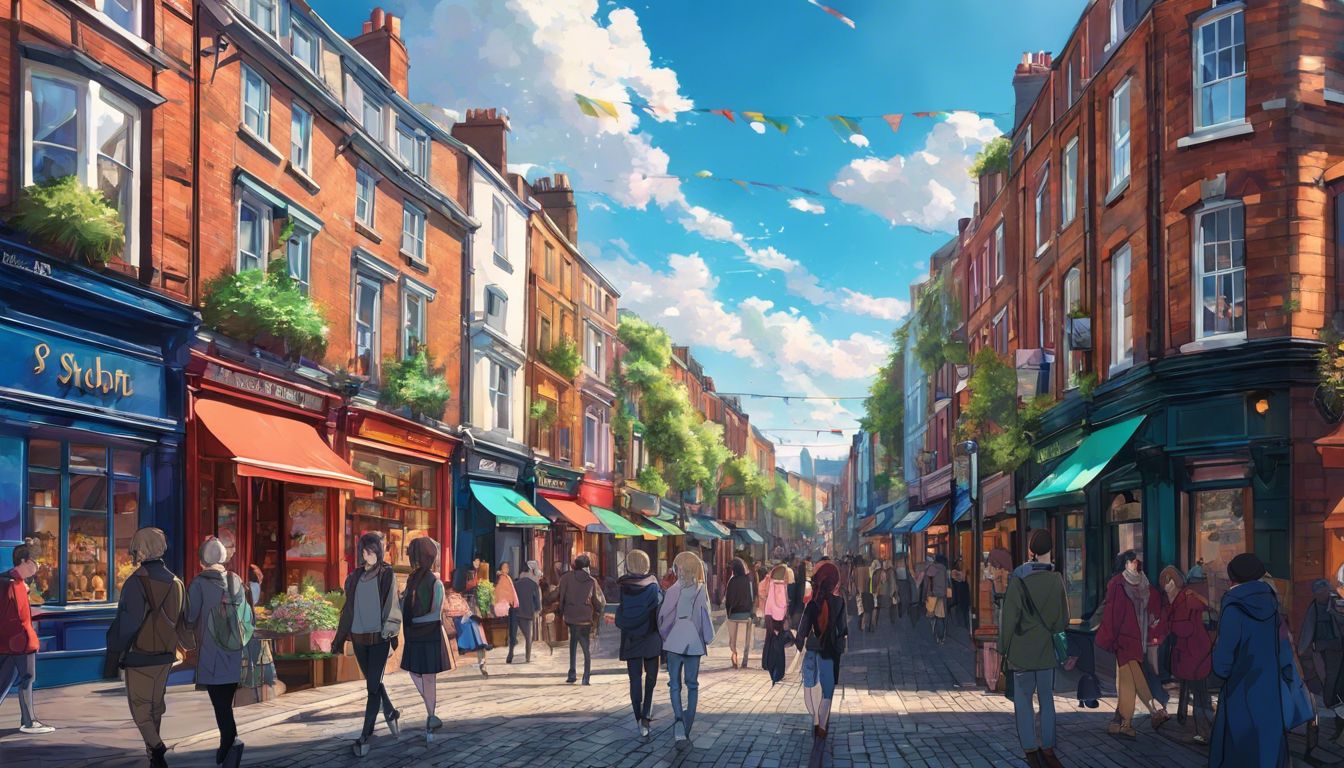
Is Dublin Safe? A Comprehensive Guide for Travelers and Residents
Are you trying to figure out if Dublin is the perfect spot for your next escapade or maybe even the place where you put down roots? I totally get that curiosity because safety can make or break a decision.
So, with Ireland proudly holding a spot as one of the top-10 safest countries globally, I did some digging to bring clarity to your questions. In this guide, we’re going to look at all things safety – tips on staying secure , understanding any potential risks , and how you can soak up everything Dublin has to offer without an ounce of stress.
Stick with me here; let’s ensure your Irish experience is as carefree as it should be!
Table of Contents
Key Takeaways
- Dublin is often seen as a safe city for tourists and locals, ranking in the top 10 of the Global Peace Index .
- Watch out for pickpocketing and scams , especially in crowded areas, and stay informed about travel advisories .
- Always wear face coverings in public places, fill out a Passenger Locator Form before arriving, and check if you need a COVID test based on where you’re coming from.
- Use common sense : keep an eye on your stuff, stick to tourist spots at night, be careful crossing streets.
- Petty theft like pickpocketing is common; watch your belongings closely and don’t flash cash or expensive items.
Understanding Safety in Dublin
When it comes to safety in Dublin, there are a few things to consider. While the city is generally safe for tourists and residents alike, it’s important to be aware of any travel advisories and current Covid-19 safety measures in place.
Understanding the perception of tourists and being cautious in certain areas can help ensure a safe visit to Dublin.
Dublin has a good reputation for safety, but like any city, it’s not perfect. The U.S. Bureau of Consular Affairs gives Ireland a Level 1 safety rating which means it’s pretty safe for American tourists.
Still, theft and pickpocketing happen here just like they would in any busy area with lots of people. You should watch your stuff and stay alert.
Even though Dublin ranks as one of the top-10 safest countries on the Global Peace Index , don’t let your guard down completely. Some spots are less safe than others . Know where you’re going and be smart about how you act there.
Stay sharp especially if you’re out alone at night or in areas that are known to be a bit risky .
Perception of tourists
Tourists often perceive Dublin as a safe and welcoming city due to its friendly locals and vibrant atmosphere . However, it’s important for visitors to be mindful of their surroundings and take necessary precautions, especially in crowded tourist areas where pickpocketing can occur .
Despite being generally safe, tourists should also be aware of potential scams targeting them , such as fake petitions or unsolicited assistance with ATMs. Overall, while Dublin is considered safe for travelers , remaining vigilant and informed about safety measures is crucial when exploring the city.
Travel advisories
While the perception of tourists in Dublin is generally positive, it’s important to be aware of travel advisories to ensure a safe visit. Here are some key points to keep in mind:
- Stay updated on any travel advisories issued by your home country before visiting Dublin.
- Make sure to check for any specific safety recommendations or warnings for tourists in Dublin.
- Keep an eye on official government travel websites for the latest information and advice regarding travel to Ireland.
- Register with your embassy or consulate upon arrival in Dublin so that you can be easily located in case of emergencies.
- Familiarize yourself with local emergency numbers and procedures in case you need assistance during your visit.
Covid-19 safety measures
I’ll walk you through the Covid-19 safety measures:
- All travelers are required to fill out a Passenger Locator Form before arriving in Ireland, providing contact details and travel information.
- Visitors from certain countries may be required to present a negative Covid – 19 test result upon arrival, so be sure to verify this based on your place of departure.
- Face coverings are mandatory in indoor public settings and on public transportation, so make sure to have them readily available.
- It’s important to maintain social distancing of at least 2 meters (6 feet) from others who are not in your travel group.
- Many venues and attractions have capacity limitations and may require advanced reservations, so plan ahead for your visits.
- Stay updated on the latest guidelines from the Irish government regarding Covid – 19 protocols during your stay.
Staying Safe in Dublin
Always be aware of your surroundings, stick to tourist areas, and use common sense to stay safe in Dublin. To learn more about potential risks in Dublin and how to avoid them, keep reading!
Using common sense
Exercise vigilance and caution at all times.
Stay alert to your surroundings , including crowded areas and public transportation.
Avoid displaying valuable items openly or carrying large amounts of cash while out exploring the city.
Sticking to tourist areas
While using common sense is crucial, sticking to tourist areas in Dublin adds an extra layer of safety . These areas are well-monitored and frequented by other tourists, reducing the likelihood of encountering risky situations.
When exploring outside these zones, it’s advisable to research unfamiliar locations beforehand and seek guidance from locals or trusted sources . Additionally, staying in well-lit and populated areas can contribute to a more secure experience during your visit.
Remembering how sticking to known tourist spots adds protection keeps you safe from potential risks. Consider these simple tips when moving around Dublin for a more enjoyable trip!
Being aware of surroundings
When in Dublin, it’s important to stay alert and be mindful of your surroundings. Keep an eye on your belongings in crowded areas to prevent theft or pickpocketing . Be cautious at ATMs and avoid displaying large amounts of cash.
It’s advisable to stay informed about the local news and any potential safety concerns in specific neighborhoods. Additionally, sticking to well-lit and populated areas can contribute greatly to personal safety.
Remember, being aware of your surroundings is key to staying safe while exploring Dublin. Stay vigilant and trust your instincts if something feels off. By staying alert and attentive, you can ensure a smooth and enjoyable visit to this vibrant city.
Preparing for traffic
Before traveling in Dublin, familiarize yourself with the local traffic rules and road signs . Watch out for cars driving on the left-hand side of the road , which may be different from what you’re used to.
Be cautious when crossing streets and always use designated crosswalks . Keep an eye out for cyclists and buses, especially when walking in crowded areas. Additionally, take note that public transportation networks are well-established and accessible throughout the city.
When exploring Dublin, it’s important to stay aware of your surroundings at all times, especially in high-traffic areas . Understanding basic traffic laws and being alert can help ensure a safe travel experience around the city.
Avoiding political discussions
When in Dublin, it’s best to avoid political discussions , as they can be divisive and sensitive . Stay focused on enjoying the beauty and culture of the city instead. Remember that Ireland has a complex history , and engaging in political conversations may lead to misunderstandings or discomfort for both locals and fellow travelers.
Let’s delve into other essential tips for staying safe in Dublin .
Being cautious on public transportation
When using public transportation in Dublin, stay alert and be mindful of your belongings at all times to avoid falling victim to pickpocketing or theft .
Ireland’s overall safety may be high, but it’s essential to exercise caution , especially during peak tourist seasons when buses and trains can get crowded.
Potential Risks in Dublin
Petty theft is a concern in Dublin, particularly in crowded areas and tourist hotspots. Common scams targeting tourists and transportation risks are also potential risks to be aware of while visiting the city.

Petty theft
Petty theft is a common concern in Dublin, with pickpocketing being the most prevalent form of thievery. It’s essential to safeguard your belongings , especially in crowded tourist areas and public transportation .
Always keep your wallet, phone, and other valuables secure to avoid falling victim to these petty crimes.
Being aware of your surroundings and taking simple precautions can go a long way in preventing theft. Avoid leaving bags unattended and be cautious when approached by strangers. Stay vigilant while enjoying the city’s attractions and follow safety tips to minimize the risk of petty theft during your visit to Dublin.
Common scams
Ireland is generally safe, but travelers should be aware of common scams to stay safe. Here are some common scams in Dublin:
- Fake petitions : Scammers may approach you asking for signatures or donations for fake causes.
- Distraction techniques : Beware of individuals trying to distract you with a map, spilled drink, or a seemingly accidental bump.
- Card skimming : Be cautious when using ATMs and card readers to avoid falling victim to card skimming devices.
- Overcharging : Some establishments may overcharge unsuspecting tourists for goods and services.
- Phony officials : Be wary of individuals posing as police officers or other officials asking for personal information or money.
- Bogus ticket sellers : Avoid purchasing tickets from unauthorized vendors, especially near tourist attractions.
- Charitable giving scams : Exercise caution before donating money to individuals claiming to be collecting on behalf of charities.
Transportation risks
As we move on to discussing transportation risks in Dublin, it’s essential for travelers to be alert. Traffic can be a challenge, so always watch out when crossing the road and use designated pedestrian crossings for safety.
Additionally, pickpocketing is common on public transportation, so keep your belongings close and secure at all times.
Furthermore, it’s important to note that some taxi drivers may take advantage of tourists by overcharging. Stick to official taxi ranks or reputable ride-hailing services and ensure the driver uses the meter for a fair fare.
In conclusion, Dublin is generally a safe city for travelers and residents. The practical safety tips provided are easy to implement and efficient in ensuring a secure experience. How can you apply these strategies to enhance your safety while exploring Dublin? By remaining vigilant and being aware of your surroundings , you can significantly improve your travel experience.
Remember, taking necessary precautions can lead to a worry-free visit to this vibrant city. Consider these insights as you plan your next adventure in Dublin!

Hello! I’m Ryan Nelson, the heart and soul behind IrishGraves.com. Born in New York City with a rich blend of Irish and Scottish heritage, I’ve always felt a deep pull towards exploring my roots and understanding the cultures that shape me. This passion ignited my journey to Ireland, a land of breathtaking landscapes, profound history, and vibrant culture, leading to the creation of IrishGraves.com.
Similar Posts

What Are Druids? Exploring the History, Role, and Practices of Ancient Celts’ Learned Class
Druids were special people in ancient Celtic culture. They acted as priests, teachers, judges, and advisors. These wise men and…

Exploring the Famous Bars in Dublin, Ireland: A Guide to the Best Pubs and Taverns
Venturing into Dublin is like stepping through the pages of a living story, where each Irish pub pulses with an…

The Perfect Ireland 7 Day Itinerary for an Unforgettable Trip
Planning a week in Ireland can seem like quite the puzzle, with its wealth of awe-inspiring sights vying for your…

Exploring the Power and Humor of Irish Curses: A Guide to Famous Insults and Hexes
Have you ever been left speechless by the biting humor of an Irish friend? Believe me, I’ve felt that sting—the…

What Are Irish People Like? 9 Typical Traits and Characteristics of Irish People
Curiosity about what sets the Irish apart is something many of us share – and get this: each person in…

Exploring the Rich and Colorful World of Irish Slang
Heading to Ireland but find yourself puzzled by the local lingo? You’re definitely not alone. Much like you, I’ve spent…
Cookies on GOV.UK
We use some essential cookies to make this website work.
We’d like to set additional cookies to understand how you use GOV.UK, remember your settings and improve government services.
We also use cookies set by other sites to help us deliver content from their services.
You have accepted additional cookies. You can change your cookie settings at any time.
You have rejected additional cookies. You can change your cookie settings at any time.
Warnings and insurance
Before you travel.
No travel can be guaranteed safe. Read all the advice in this guide. You may also find it helpful to:
- see general advice for women travellers
- read our guide on disability and travel abroad
- see general advice for LGBT+ travellers
- read about safety for solo and independent travel
- see advice on volunteering and adventure travel abroad
Travel insurance
If you choose to travel, research your destinations and get appropriate travel insurance . Insurance should cover your itinerary, planned activities and expenses in an emergency.
About FCDO travel advice
The Foreign, Commonwealth & Development Office ( FCDO ) provides advice about risks of travel to help you make informed decisions. Find out more about FCDO travel advice .
Follow and contact FCDO travel on Twitter , Facebook and Instagram . You can also sign up to get email notifications when this advice is updated.
Related content
Is this page useful.
- Yes this page is useful
- No this page is not useful
Help us improve GOV.UK
Don’t include personal or financial information like your National Insurance number or credit card details.
To help us improve GOV.UK, we’d like to know more about your visit today. Please fill in this survey (opens in a new tab) .
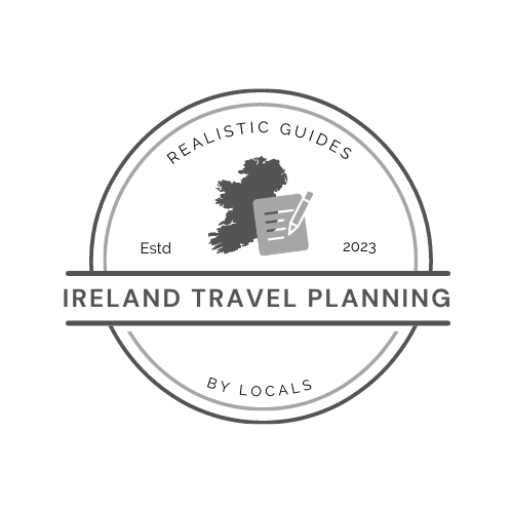
Is Dublin Safe? A Local’s Guide to Navigating Dublin Streets
So, you’re planning a trip to Ireland’s capital city. And like most destinations, you find yourself asking ‘Is Dublin Safe?’. Dublin is a vibrant city, home to an interesting history, bustling pubs and endless attractions. But like any other major city, it has its pros and cons. And that’s what we are going to discuss today.
Let’s dive into Dublin’s safety for all walks of life, at night and how to be more safety conscious while visiting the capital of the Emerald Isle. But, before we dive in, I want to mention, that I am an Irish girl born and raised. Therefore, I will do my best to give you some insider knowledge on staying safe while visiting Dublin.
Is Dublin Safe?
Generally, yes as far as capital cities go Dublin is a relatively safe place to visit. It gives off the impression of a really big town rather than a major capital city.
Locals are known for being extremely helpful, and for their warmth and friendliness. So, if you do find yourself feeling a little uneasy don’t be afraid to ask for help.
Just be warned, we Irish love to talk so you may find yourself with a new friend or in a lengthy conversation with a stranger.
Now, while Dublin is considered relatively safe, it is as always important to remain aware of your surroundings especially as night falls. Let’s dive a little deeper into safety and when to be a little more vigilant.
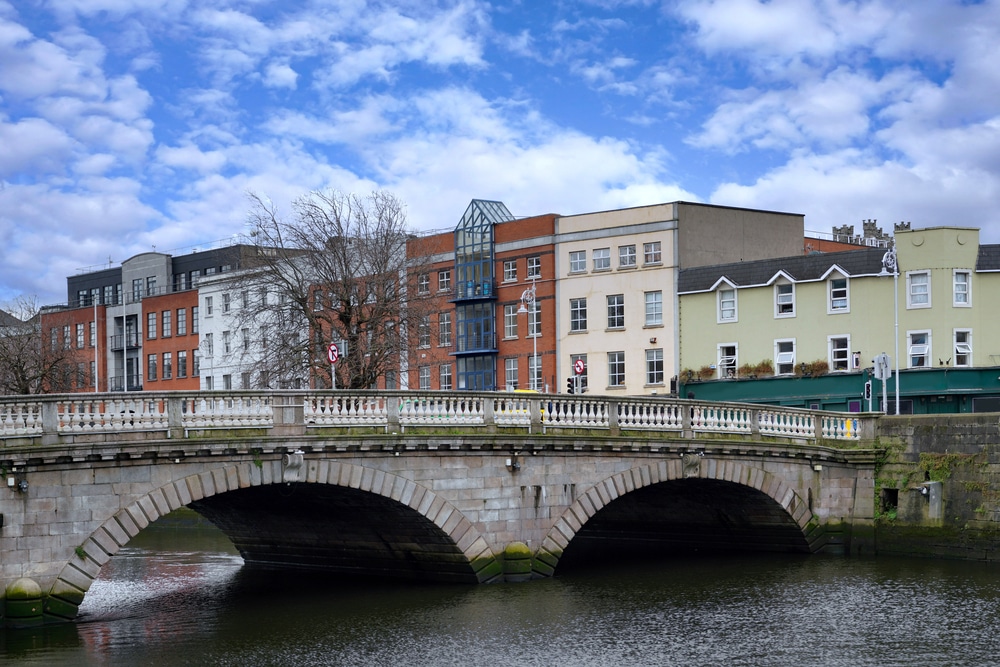
Part 1: General Safety in Dublin
First, let’s talk about general safety in Dublin, in this section, we will cover Dublin Crime rates, safety in Dublin vs. other major European cities and the types of crimes you may come across.
Crime in Dublin : Is it common?
As mentioned above, Dublin tends to have a relatively low crime rate compared to other major cities. Yes, like any city, it does have crime. But the good news is, that violent crime is relatively low.
Generally, crime includes small offences such as pickpocketing or minor theft, this can be more evident in crowded places. So, in this case, it is important to stay mindful of your surroundings, Always keep your belongings close by and don’t leave any valuables out of sight.
I see great value in trusting your instincts, if you find yourself in an area or situation that doesn’t feel quite right, it’s okay to leave. Your safety should always come first. But don’t let this worry you too much. Many visitors and locals go about their day-to-day lives without experiencing any issues.
Dublin Safety Compared to Other European Cities
Dublin’s safety compared to other European cities is pretty much on the positive side. Many visitors find Dublin to be one of the friendlier and safer cities in Europe .
Let’s compare to say Lisbon or Rome , you’d find that pickpocketing rates are significantly lower in Dublin. I’m not saying it doesn’t happen but it is less likely. In Dublin, you can generally relax a bit more, much like in the likes of Budapest or Prague.
But like anywhere it is important to stay alert and make smart choices. That way you get to spend more time enjoying the city than worrying about a crime that could have possibly been prevented.
Dublin vs. London Safety
Okay, so with London being the closest capital city to Dublin (and no Dublin is NOT in the UK ) is common for people to compare. And Yes, Dublin is considerably safer than London but we also need to think about the size and population of both cities.
In Dublin, crime is significantly lower, but that does not make London unsafe. While visiting both cities tourists should still remain vigilant of their belongings as pickpocketing is the most likely crime.
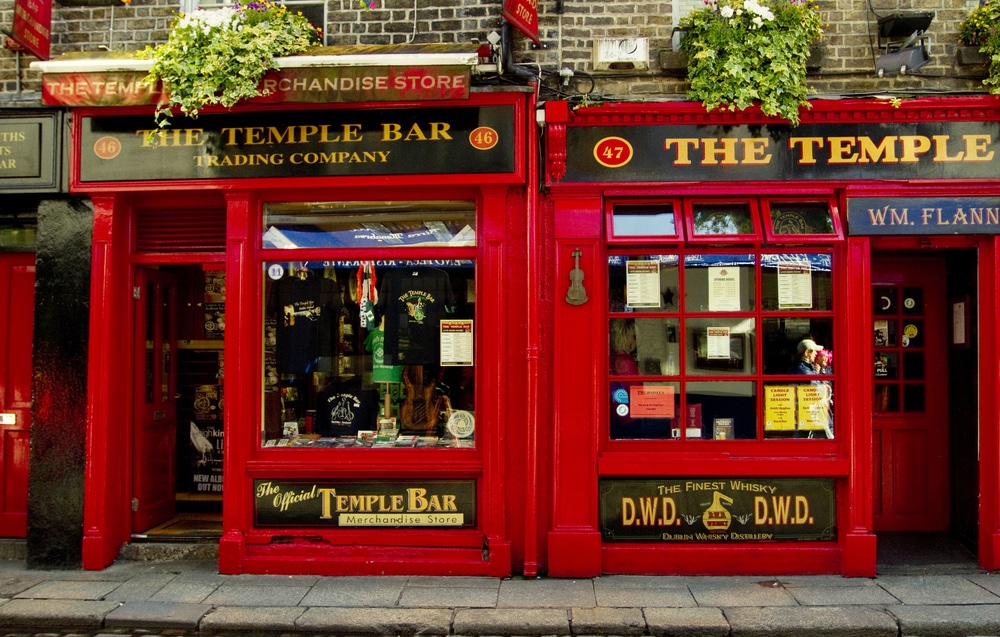
Part 2: Safe & Rough Areas in Dublin
Let’s now take a closer look at Dublin’s safety, district by district. Each neighbourhood has its own unique character, and safety can vary from one to another.
This section will give you a good idea of what to expect when you’re navigating the charming streets of Dublin.
Is North Dublin Safe?
Now, one thing Irish people will tell you is that there tends to be a friendly bit of rivalry between North and South Dublin. The Northside tends to be considered a ‘rougher’ part of the county. And with that stereotype, you may presume that North Dublin would see more crimes. And yes to an extent you may come across more ‘rougher’ looking characters but generally, these people are harmless. In fact, some of the nicest people come from North Dublin.
In terms of safety, North Dublin is an okay place to be, it is bursting with people, and the more people in an area the more likelihood of a crime being committed but that’s a rule of thumb in any country. North Dublin is no less safe than any other part of the county.
Is South Dublin Safe?
Now, let’s continue with the friendly rivalry of North and South Dublin. If North Dublin is considered ‘rough’ then it’s easy to presume that South Dublin is considered the ‘posh’ side of the city. And this is true to some extent.
We Irish joke that only the rich and well-off people live in the Southside of Dublin. And while this is true in certain areas of South Dublin, in other places of the county you will find your typical working-class families.
Safety in South Dublin nearly mirrors that in North Dublin. It all comes down to what area you are in. And if I am being honest it is generally safe in most places. So, as always keep your wits about you and enjoy exploring the vibrant city.
Is Temple Bar Safe?
Temple Bar is the main place you will find tourists hanging out in Ireland. In fact, don’t be surprised if you don’t hear any Irish accents while you’re there. Irish people typically use it as a pass-by to get from one end of the city to another. We rarely stop for a pint and a chat.
And like in most cities, the place with the most tourists tends to be targeted for crimes, but if I am being honest I never really hear of crime in the temple bar area. Unless they are talking about late-night fights caused by people consuming a little bit too much alcohol.
However, with that being said I would be conscious of pickpocketing in this area. It is probably the most likely place for a crime like that to happen.
Are Dublin Suburbs Safe?
Crime rates in the suburbs tend to be significantly lower than in the city centre. And like most cities, Dublin does have it’s neighbourhoods that tend to be a little rougher along the edges but with that being said these places tend to be outside the city areas. And it’s less likely to see tourists staying here as they are too far away from the major attractions. The crimes in these areas also do not tend to target tourists.
In most Dublin suburbs you will find a feeling of community. People like to help each other out. We are generally a very friendly nation. So, if you do find you got on a bus in the wrong direction don’t sweat someone will be more than happy to help you find your way back into the city.
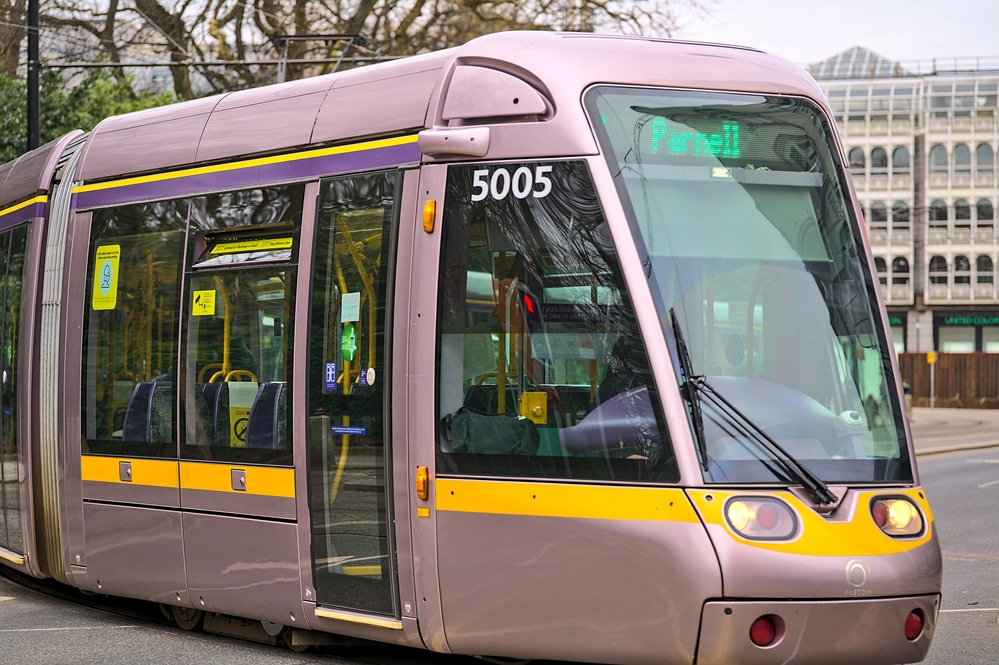
Part 3: Transport Safety in Dublin
When it comes to getting around in Dublin, safety is a top priority whether you’re on foot, cycling, or using public transportation. The city is well-designed for all modes of transport and has implemented various measures to ensure a safe and smooth journey for everyone.
How safe are the buses and trains in Dublin?
Dublin has three main modes of transport, Dublin Bus, the Luas and the DART line. Generally speaking, all of these services are regarded as safe. Of course, they can not control who gets on and off but typically if there is an incident the guards (Irish Police) are called straight away.
A lot of our newer buses and trains are fitted with CCTV as an extra safety precaution and our transport tends to be rather busy. So, if anyone was to commit a crime they would have a whole carriage or busloads of people to answer to.
With that being said, a busy train or bus opens more opportunities for pickpocketing, so, as always make sure to watch your belongings.
Is it Safe to Drive in Dublin?
If I am being honest, I do not recommend tourists to drive while visiting Dublin. A car is very much needed to get around most of Ireland but Dublin is an exception. The government are making it increasingly harder for cars to enter the city, with many streets becoming a one-way system and losing the ability to turn right. There have been many times I have driven in Dublin City only to find myself driving around in a loop. Lost and confused. It’s not fun.
Besides parking in the city is extremely expensive and it can be hard to actually find a space when it is busy.
But, driving in Dublin is safe, so if you do want to rent a car on your visit know that the roads tend to be rather safe to drive on.
Is it safe to Walk in Dublin?
Dublin is an extremely walkable city. To be honest, there is never really a reason to get public transport if you have a moderate level of fitness. Most of the attractions are located in walking distance of each other. With the exception of the few located on the coast.
Walking around Dublin also tends to be very safe. There are dedicated footpaths for pedestrians and traffic lights to aid those trying to cross busy streets.
Now, I must admit, Irish people are quite the fan of jaywalking. I’m not sure if it is actually illegal here but it is definitely not a rule that is enforced. So, while you may see plenty of traffic lights located throughout the city don’t be surprised when the Irish don’t use them. I’m not saying it’s a good practice but it is the reality.
Part 4: Is Dublin Safe For Tourists?
Tourist scams to avoid in dublin.
While Dublin is a heartwarmingly friendly city, it’s always important to stay alert, especially as a tourist. Sometimes, you might come across people trying to sell you overpriced souvenirs, claiming they are ‘authentic’ or ‘handmade’.
Or, perhaps you may be offered a ‘free tour’ only to have to leave a hefty tip. I recommend checking out the official ‘free tours’ online before going to a meeting point.
A scam I notice quite often in other European cities is the ‘friendship bracelet’ scam where a friendly stranger ties a bracelet around your wrist and then insists you pay for it. I haven’t ever seen this in Dublin, now perhaps this is because I SCREAM Irish with my pale skin but either way I don’t think it is as common as in the likes of Paris or Rome.
Sadly, one crime that is becoming more common in Dublin is people riding bikes and driving by swiping a mobile phone out of standerbys hands. This is something I recommend you are on the lookout for.
Oh! and taxis. They should ALWAYS accept cards. I recommend asking before getting in. If they insist it is cash only I recommend finding another driver.
Best Practices for Staying Safe as a Tourist in Dublin
- Stick to well-lit areas when walking alone at night
- Remember the power of safety in numbers
- Don’t let your drink out of your hand while in the pub
- Use taxi apps rather than hailing one off the street
- Always be mindful of your belongings and don’t leave them lying around
Part 5: Homeless Crisis in Dublin
So, as an Irish girl born and bred, my experience in Dublin is very different to that of a tourist. However, with that being said I have seen many friends come and go and only had lovely things to say about Dublin.
One thing I will mention is Ireland is in the middle of a massive homeless crisis. With more and more people having no choice but to live on the streets. This is a sad reality that our country is facing.
Seeing many homeless people can be quite intimidating for those travelling alone, but 90% of the time these people mean no harm. To be honest my heart breaks for them.
I recommend only donating money to designated homeless charities, that way you know the money is being used to buy warm clothes, food and shelter for those who need it.
If you do feel unsafe at any point I recommend bringing it to the attention of a passerby or finding the nearest Garda Station (Police Station).
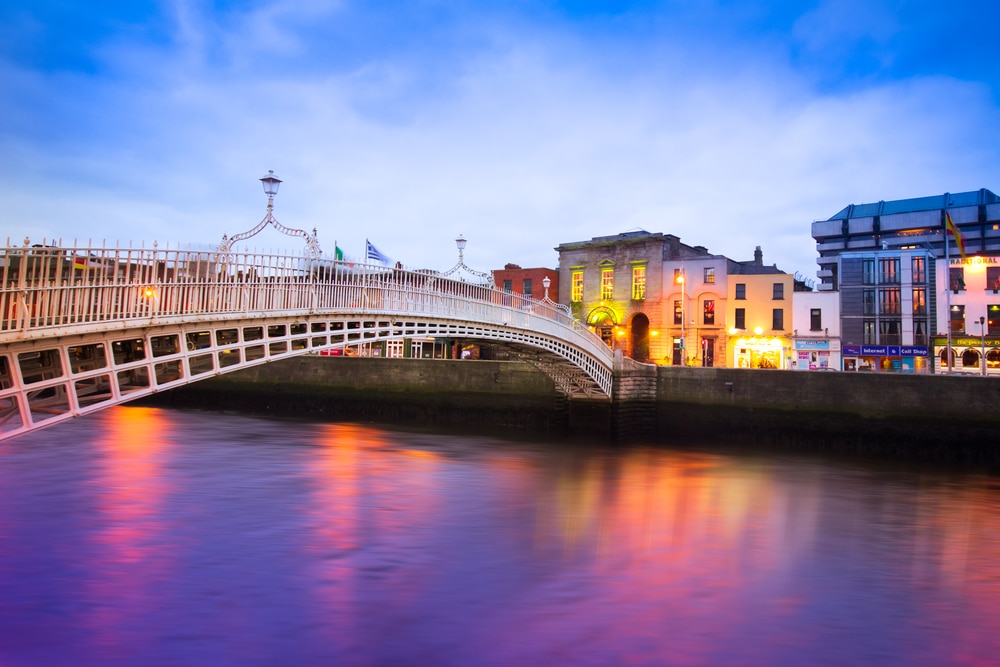
Part 6: Is Dublin Safe for Solo Female Travellers?
I have solo travelled across most of Europe, so I know exactly how it feels to feel unsafe as a female alone in a big city. In this section of this post, I want to assure you that Dublin is a considerably safe city for solo female travellers to visit.
Just like any major city, it’s important to take a few precautions. So, let’s talk about some practical tips that can help keep your solo adventure in Ireland safe, enjoyable, and an unforgettable experience.
- Keep your belongings close: A small backpack or cross-body bag is a smart choice as it allows you to keep an eye on your stuff and know that it is always close by.
- Trust your instincts: If something doesn’t feel right, it probably isn’t. Trust your gut. If a place or person makes you uncomfortable, don’t hesitate to remove yourself from the situation. Your safety is more important than anything else.
- Use earphones when using Google Maps: When navigating the streets of a new city alone Google Maps can become one’s best friend. But, looking down at your phone at maps makes it obvious that you are alone. Instead, have the map instructions play through your earphones and walk with confidence.
- Don’t tell others you are a solo traveller: Be mindful of who you tell you are travelling alone. It is ok to make up white lies like ‘I’m waiting for my boyfriend’ or ‘My friend is back at the hostel’.
- Share Your Location: Sharing your location with a family member or friend is always a good idea when you are travelling alone.
Remember, safety always comes first. But don’t let it dampen your spirit of adventure! Ireland is a wonderful country with lots to offer. Enjoy every moment of your visit.
Part 7: Food and Drink Safety in Dublin
When it comes to food and drink safety in Ireland, it’s pretty straightforward. The standard of food safety is generally high, so you can indulge in the local cuisine without much worry.
From delicious seafood dishes to traditional Irish stews, there’s a lot to savour here. Stick with the places that appear clean and observe good food handling practices. And as a side note, familarise yourself with Ireland’s Tipping etiquette before you go. It is quite different to the likes of the States.
As for water, it’s safe to drink straight from the tap. However, if you’re more comfortable with bottled water, that’s easily available too.
Top Places to eat breakfast and brunch in Dublin
- Bibi’s Café: Nestled in the heart of Dublin, Bibi’s Café offers a cosy atmosphere and delectable brunch options. From their famous poached eggs on avocado toast to their divine homemade granola, you’re sure to start your day on a high note.
- Tang: For a healthy twist on brunch, Tang is the place to be. Their menu, inspired by flavours from the Middle East and Mediterranean, includes dishes like the sweet potato falafel or the acai bowl.
- The Woollen Mills: This spot is a must-visit for brunch lovers. The Woollen Mills is famed for its bottomless brunch option. With a free-flowing supply of prosecco and a menu filled with hearty dishes like the full Irish breakfast or the roasted mushroom sandwich, you’re guaranteed a memorable experience. Remember, moderation is key, so enjoy responsibly!
Top Places to Each Lunch in Dublin
- Elephant & Castle: Get ready to tantalize your taste buds at Elephant & Castle. This place is a local favourite, best known for its mouth-watering chicken wings. But don’t stop there; their wide-ranging menu is packed with hearty dishes, perfect for a midday meal.
- Mad Egg: If you’re a fan of chicken, then Mad Egg is the place for you in Dublin. Their free-range chicken dishes, especially the DIY Cheesy, are a must-try. The relaxed and casual atmosphere makes it an ideal spot for a laid-back lunch.
- Fade Street Social: Rounding off our top three lunch spots in Dublin is Fade Street Social. This restaurant offers a unique dining experience with its innovative and contemporary Irish cuisine. Whether you opt for the wood-fired flatbreads or the slow-cooked lamb shoulder, your taste buds are in for a treat. Enjoy your lunch in their stylish, modern setting.
Top Place to Eat Dinner in Dublin
- Pablo’s Tortas: When it comes to Mexican cuisine in Dublin, Pablo’s Tortas is a top contender. Known for its authentic flavours and vibrant atmosphere, this is the spot for classic nachos, enchiladas, and of course, their namesake tortas. The colourful interior adds to the overall lively experience, making it a fantastic choice for a fun dinner outing.
- Il Vicoletto: For a taste of Italy in the heart of Dublin, head to Il Vicoletto. This cosy restaurant offers a menu filled with traditional Italian dishes, from hearty pasta to exquisite tiramisu. The warm and inviting ambience truly captures the essence of Italian dining, making it a perfect place for a romantic dinner or a memorable meal with friends.
- The Brazen Head: Looking for some traditional Irish pub grub? Look no further than The Brazen Head. As Ireland’s oldest pub, it serves up a variety of classic Irish dishes, including the much-loved shepherd’s pie and Irish stew accompanied by live traditional Irish music. The Brazen Head offers a truly Irish dining experience that is sure to make your evening unforgettable.
When in Dublin, you may also find yourself booking apartments rather than hotels, this a great way to keep costs down as Dublin tends to be quite an expensive city . It allows you to cook your own meals, and pick of a range of stacks for your stay. Unfortunately, we do not have Walmart in Ireland, but we do have a range of supermarkets to choose from.
It is also common for tourists to take part in food tours when exploring Dublin, I recommend only booking ones that are highly rated to avoid any safety concerns.
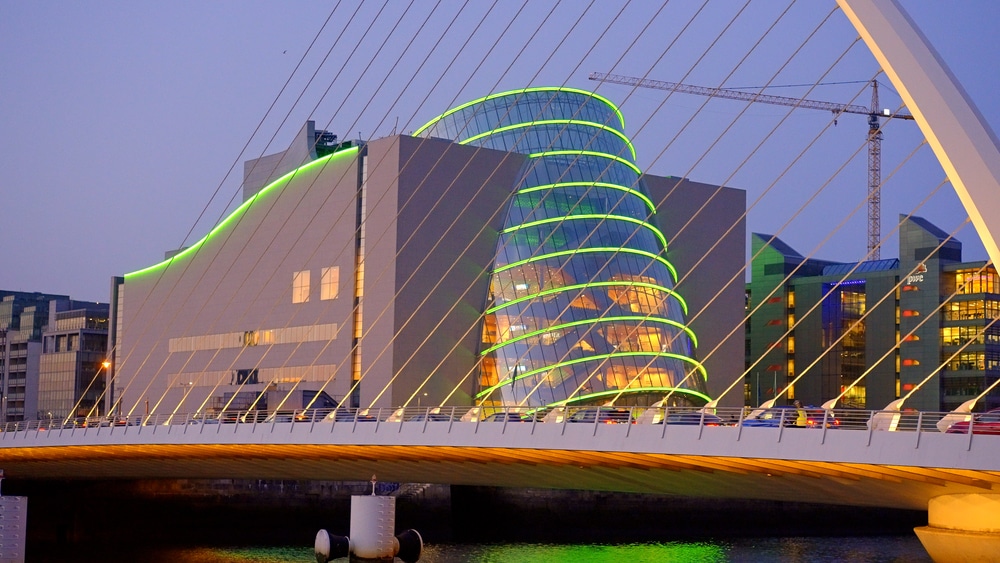
Part 8: Is it Safe at Night in Dublin?
After exploring the culinary delights of Dublin, you might be wondering what the city has to offer when the sun goes down.
Dublin has quite an impressive nightlife scene with some places now staying open to 6am. Now, before we dive into where to dance the night away in Ireland’s capital. Lets discuss nighttime safety.
Is Dublin Safe at Night?
Generally, Dublin is quite a safe city at night time. Most of the city is well lit and the nightlife tends to be around the same three or four streets. Dublin has also introduced some 24-hour transport although this is limited to certain areas.
Now, I must admit taxi’s are becoming harder and harder to get with the increase of people staying out late in Dublin but the limited number of taxi drivers. Unfortunely, Dublin does not have uber. If you are female and or travelling alone in general I do not recommend hailing a taxi off the street. Instead, I recommend downloading our taxi app Free Now .
Tips for Staying Safe at Night in Dublin
- Keep your belongings secure. Don’t leave your bags or wallets unattended. It’s better to keep them close and secure.
- Know your limits. Enjoy your drinks, but remember not to drink too much.
- Watch your drinks. It sounds like common sense, but it’s worth repeating. Be sure no one can tamper with your drinks. If you do leave your drink unattended, it’s better to get a new one.
- Trust your instincts. If a situation or a place feels uncomfortable or unsafe, trust your gut and remove yourself from that environment.
Things to do in Dublin at Night
When the sun goes down, Dublin really comes to life. Let’s explore some of the best that Dublin’s nightlife has to offer:
- Nolita’s: This is not a club, yet, has a club-like vibe but in a bar. Let me explain. The decor, atmosphere, and cocktails at Nolita are inspired by New York City. They have a decent-sized dance floor and the tunes are always great!
- Copper Face Jack’s: If you’re looking for a crazy night on the town then make your way to the iconic ‘Coppers’, aka Copper Face Jack’s . This is known as the place to go if you are looking for a messy night out.
- Dicey’s Garden Bar: If you are looking for drink deals then Dicey’s is the spot for you. This club tends to attract a younger crowd.
- Workman’s Club: Known for its great music scene, The Workman’s Club regularly hosts live bands and DJ sets. They have 3 floors with different music vibes on each.
- Comedy Gigs: If you’re not looking for a big night out on the town then why not check out Dublin’s thriving comedy scene? Check out local venues like Laughter Lounge or The International Comedy Club for a laughter-filled evening.
- The Camden: A popular spot for locals and tourists alike, The Camden is known for its live music and energetic atmosphere. This is a spot that tends to attract a slightly older crowd.
Or, if you are not a big ‘night out’ kind of person I highly recommend saying some time to watch the sunset in Dublin , there is a range of stunning places that you can visit. From hidden gems such as Howth, home to one of my favourite cliffs in Ireland , to stunning Dublin walks such as the Poolbeg Lighthouse.
Part 9: Safety for Different Types of People day and night
Dublin is a city that embraces diversity, making it a great destination for all types of travellers. Whether you’re a solo adventurer, exploring with a group, or travelling with family, the city has so much to offer both day and night.
Is Dublin Safe for Families?
Yes, Dublin is more than safe for families to explore. In fact, they city has so much to see and do for children. Below are some of my favourites.
- Dublin Zoo: Nestled in Phoenix Park, you’ll find over 400 animals here! The African Savanna and Asian forest zones are sure to wow the little ones.
- Viking Splash Tour: Explore Ireland’s Viking past in one of the most unique vechical. Yes, the splash is a bit of a giveaway but it does go in the water – It’s a real adventure for the little ones.
- Dublin Under Sail: Hop aboard a traditional Irish Tall ship. Learn how to put up the sails and see Dublin Bay from a whole new perspective. It is a true off-the-beaten-path experience in Dublin.
- Kayaking on the Liffey: Ever wanted to see Dublin from the water? Now’s your chance. Grab a kayak and paddle through the city. You’ll glide under historic bridges and past some of Dublin’s most famous sights. It’s an adventure your kids won’t forget!
- EPIC Museum: This isn’t your typical museum. The EPIC Museum is all about the history of the Irish diaspora. But don’t worry, it’s interactive and fun, so your kids won’t even notice they are learning. It’s a must-visit for anyone interested in Irish history.
- Dublinia: Step back in time and explore Viking and Medieval Dublin at this interactive museum. You can even climb a medieval tower for stunning views of the city. This is one of the top tourist attractions for kids in Dublin.
Is Dublin Safe for People With Disabilities?
Safety Measures for People with Disabilities: Accessibility and Safety in Dublin
Dublin is a city that prides itself on being inclusive and welcoming to people of all abilities. That’s why there are plenty of options for accessible and safe activities.
- The National Wax Museum Plus: Explore the world of Irish legends, history, music and pop culture at this interactive museum! The museum is fully accessible and offers discounts for visitors with disabilities.
- The Ark Dublin: This cultural centre is specifically designed for children and families, with a focus on inclusivity and accessibility. They offer sensory-friendly performances and workshops for children with special needs.
- Phoenix Park: Take a stroll through one of Europe’s largest urban parks, where you can visit the Dublin Zoo, picnic on the grounds, or rent a wheelchair-accessible bike to explore the park.
- Glasnevin Cemetery Museum: Learn about Irish history and famous figures at this cemetery, which offers accessible tours for visitors with disabilities.
- EPIC The Irish Emigration Museum: This museum tells the story of 10 million Irish people who left their home country for a new life. It offers wheelchair accessibility and discounts for visitors with disabilities.
Overall, Dublin is committed to making its attractions and activities accessible and safe for people of all abilities. So don’t hesitate to visit this vibrant city and explore its rich history and culture! End of Section.
Is Dublin Safe for Members of the LGBTQ+ Community?
Yes, Dublin is very welcoming of those from the LGBTQ+ community. We pride ourselves in having an accepting and inclusive atmosphere in our city. Unfortunely, like in all places, you will have people who discriminate but generally, this is not tolerated with 99% of the Dublin population. If someone is seen being discriminative towards those from the LGBTQ+ community most people would speak out against it. If you are feeling threatened while visiting Dublin it is important to bring it to the attention of the guards (Irish Police).
Things to do for people in the LGBTQ+ Community in Dublin?
- The George: This is one of the oldest LGBTQ+ bars in Dublin, and it’s a must-visit! With their super friendly staff and fun drag shows, there’s always something happening here to keep you entertained.
- PantiBar: Owned by the fabulous Panti Bliss, one of Ireland’s most famous drag queens, this is another great spot for drinks and fun.
- Dublin Pride: If you’re visiting in June, you definitely don’t want to miss the Dublin Pride Parade. It’s a fantastic celebration of love and equality, and everyone is welcome!
- Outhouse: This is a community and resource centre for LGBTQ+ people. They offer a café, a library, and also run various events and support groups.
- Mother Club: This is a popular club for the LGBTQ+ community. They host regular parties with great music and a vibrant atmosphere.
Is Dublin Safe for non-English Speakers?
English is the first language of most of the Dublin population. However, with that being said, that does not make the city unsafe for those who don’t speak English. Irish people are very friendly and are happy to help in any way that they can. Dublin is also a multicultural city with people living there from all over the world. So, there are high chance you may come across more than one person who speaks the same language as you.
Resources for Non-English Speaking Tourists in Dublin
For those whose first language isn’t English, don’t worry! Dublin still has resources to make your visit comfortable and enjoyable.
- Tourist Information Centres: These centres have multi-lingual staff who can provide guidance and answer all your queries. There’s one right in the city centre on Suffolk Street.
- Guided Tours: Many guided tours in Dublin offer services in multiple languages. Make sure to check your language is offered beforehand!
- Language Apps: Apps like Google Translate can be your best friend during your stay. They can quickly translate English words into your language. The app also has a picture section which allows you to take a picture of a menu and translate it into your chosen language.
- Multi-language Brochures: Most of the city’s major attractions provide brochures in various languages.
Is Dublin a safe base for exploring Ireland?
Yes, Dublin is a safe place to base yourself while travelling to Ireland. However, I don’t entirely recommend it! If you are stuck for time on your trip then Dublin may be a good place to have base as it is easy to take day trips to the likes of Glendalough in Wicklow and the Cliffs of Moher in County Clare.
It is harder to discover some of the countries hidden gems , such as the stunning Skellig Ring in County Kerry or the crystal clear beaches of Connemara . Honestly, I recommend spending a minimum of one week in Ireland , and basing yourself in at least one town on the west coast.
Is Ireland Safe in General?
Yes, Ireland is a rather safe country in general. It is also quite a small country , so the safety levels stay consistent throughout. There is not one county or area that is less safe than the others. With the exception of petty crimes in some more built up places.
We Irish tend to be extremely friendly and go out of our way to help those visiting our country for the first time. We pride ourselves in making others feel welcome and want nothing more than for you to enjoy your visit to our country.
- Overview of Safety in Ireland: Ireland, as a whole, is known for its friendly people and safe environment. Despite the occasional rainy weather, it’s overall a delightful place to visit.
- Crime Rate: The crime rate is relatively low compared to other countries, but it’s always good to stay vigilant, just like anywhere else.
- Rural vs. Urban Safety: Whether you’re in an urban city or the rural countryside, you’ll find that both have their distinct safety considerations.
- Emergency Services: Ireland’s emergency services are easily accessible and quick to respond, providing an extra layer of security for visitors and locals alike.
- Natural Hazards: Ireland’s natural beauty is stunning, we have a range of coastal attractions such as the Cliffs of Moher , the Giants Causeway and Hidden Gems such as Croaghuan on Achill Island ( Ireland Highest Sea Cliffs ). However, with these amazing attractions comes an element of risk, it’s essential to be aware of natural hazards, such as coastal cliffs and changing weather conditions. I also reccomend making sure you really study my Ireland packing guide before visiting. The last thing you want is to be cold and wet on the side of a mountain.
- Cultural Etiquette: Understanding local customs and etiquette can prevent misunderstandings and ensure a smooth. We are an extremely sarcastic nation and this can come across as rude to those who do not understand our sense of humour. Basically, if we are sarcastic towards you it means we like you. I know it’s confusing.
Part 11: Top Safety Tips for Dublin
- Staying Safe in Crowded Areas: Dublin can get quite busy, especially during peak tourist season. Always keep an eye on your belongings, and avoid showing off expensive items in public.
- Night-time Safety: Stick to well-lit areas at night and try to walk in groups. Dublin is generally safe, but it’s always better to be cautious.
- Public Transportation: Dublin’s public transportation is generally safe; however, do keep an eye on your belongings during rush hour.
- Respectful Interaction: Dubliners are friendly and welcoming. When interacting, remember to be respectful and mindful of cultural norms.
- Emergencies: In case of an emergency, dial 112 or 999 from any phone. These numbers will connect you to the police, ambulance, or fire brigade services.
- Road Safety: If you plan to drive, remember that in Ireland, they drive on the left side of the road. Always wear your seatbelt, and respect the speed limits.
- Alcohol Consumption: The legal drinking age in Dublin is 18. Drink responsibly and always plan your journey home in advance.
- Scammer Awareness: While not common, be aware of any potential scammers or pickpockets, especially in crowded tourist areas. Stay vigilant and keep your belongings secure.
I hope this answers your question on ‘Is Dublin Safe?’
To conclude, 99% of the time Dublin is a safe and enjoyable place to visit. It is important to always have your wits about you. But generally speaking, you will be in safe hands when visiting Ireland’s capital city. I hope these Ireland travel tips helped those of you would are currently planning your trip to Dublin , whether you plan to stay for two days or four. One thing is for certain, Dublin is more than likely going to be a safe and enjoyable place when you arrive.
Similar Posts
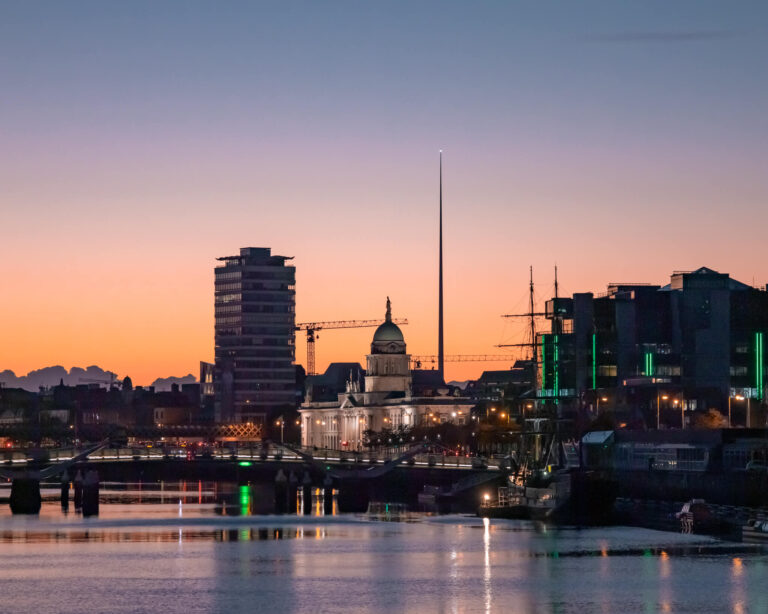
One Day in Dublin: A Relaxed Self-Guided Tour (A Local’s Guide)
One Day in Dublin: A Relaxed Self-Guided Tour (A Local’s Guide) ‘I was in Dublin once, only for a day though and I don’t really remember it’. This is something I am sad to admit that I hear all too often when people tell me about their stopover in Dublin. Now, I do understand, that…
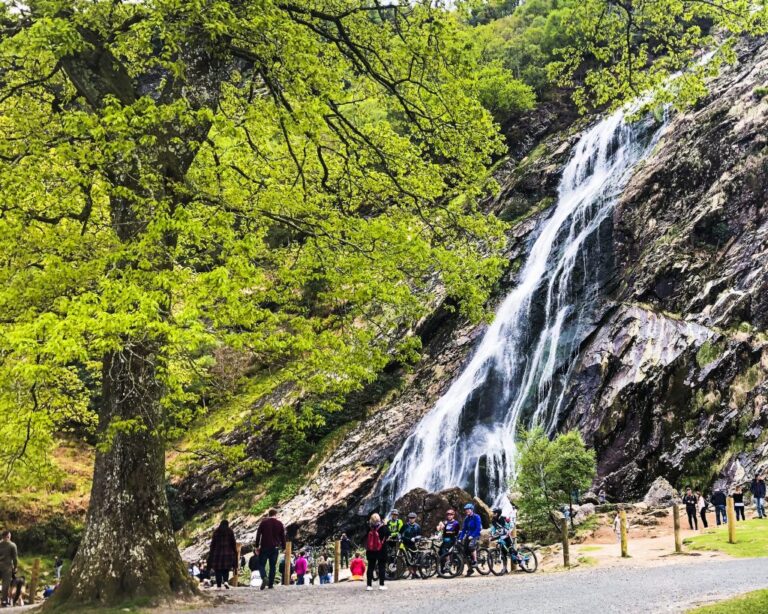
21+ Best Day Trips from Dublin: A Local’s Guide
21+ Best Day Trips from Dublin: A Local’s Guide Planning a trip to Ireland for the first time can be a scary and overwhelming experience. Especially when your time is limited. It’s common for tourists to stay in Ireland’s capital city, Dublin and not venture further afield. And while there are many things to do…

2 Days in Dublin: How to Spend the Weekend in Ireland’s Capital
2 Days in Dublin: How to Spend the Weekend in Ireland’s Capital As an Irish girl, I pride myself in knowing all there is to know about Ireland’s capital city. And quite frankly, for such a small place there is so much to see and do. I’d imagine planning your first trip to Ireland can…
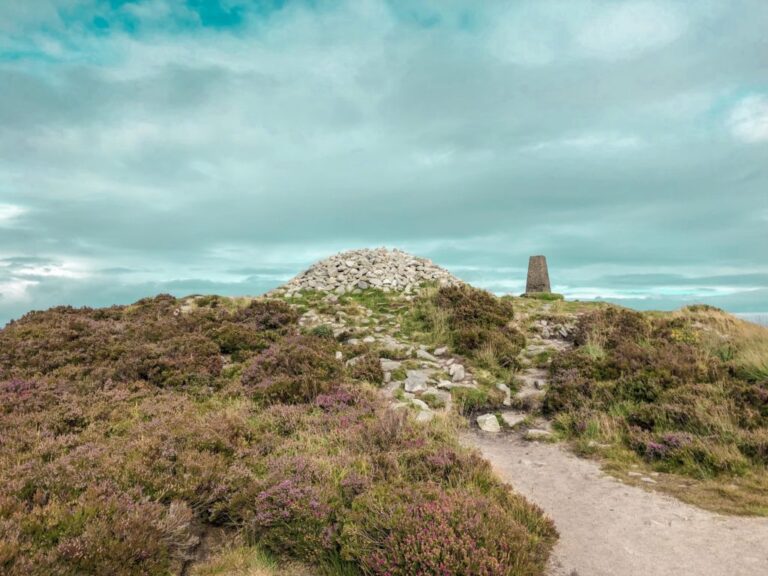
The Ticknock Walk: Experience Phenomenal Views of Dublin & Beyond
The Ticknock Walk is easily one of the most beautiful walks in Dublin. The trail offers outstanding views of Dublin City, Dublin Bay and even stretches as far a Wicklow. If you are looking for something fun to do on a summers evening then Ticknock is the place to be. It is also the perfect…
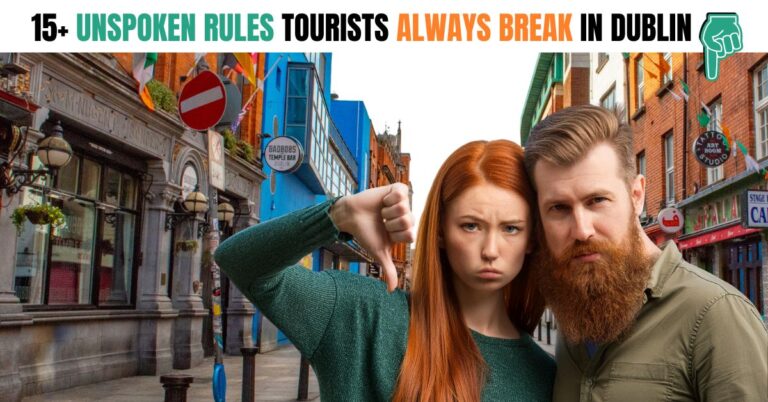
15+ UNSPOKEN RULES Tourists Always Break in Dublin
If you wanna avoid making rookie touristic mistakes when exploring Ireland’s capital then you should familiarise yourself with some of these known yet unspoken rules in Dublin! Whenever I am in the city, I see visitors break these rules ALL THE TIME, and some of them are not a obvious as you may think! 1….
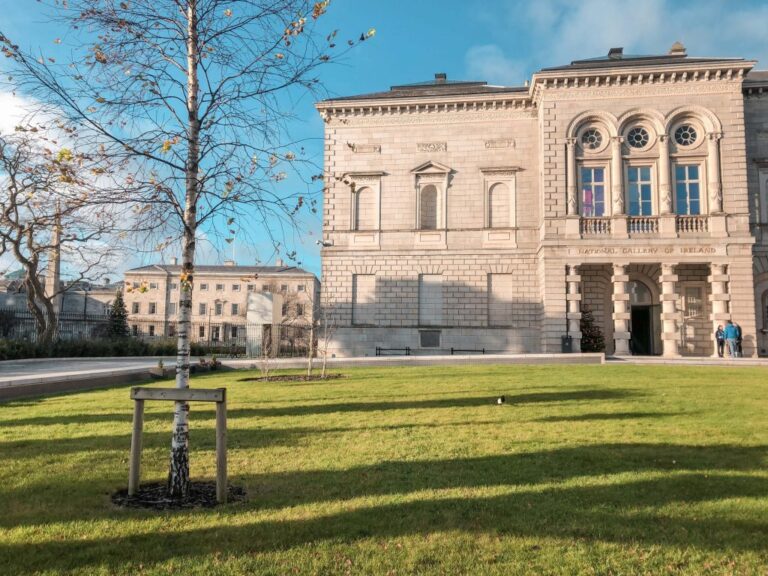
26+ Free Things to do in Dublin: A Local’s Guide
Ireland is a difficult place to visit on a Budget. In saying that it is not totally impossible, there are plenty of Free Attractions in Dublin that prevent those planning a trip to Ireland from eating into their bank accounts. You just have to do a little bit of digging first. Like many Irish, I…
Leave a Reply Cancel reply
Your email address will not be published. Required fields are marked *
Save my name, email, and website in this browser for the next time I comment.
Urban Abroad
Urban Planning and Travel Blog
Is Dublin Safe?
Travel Blog Last Updated · Jan 10th, 2024 [post_author_posts_link] · [post_comments before=""] -->
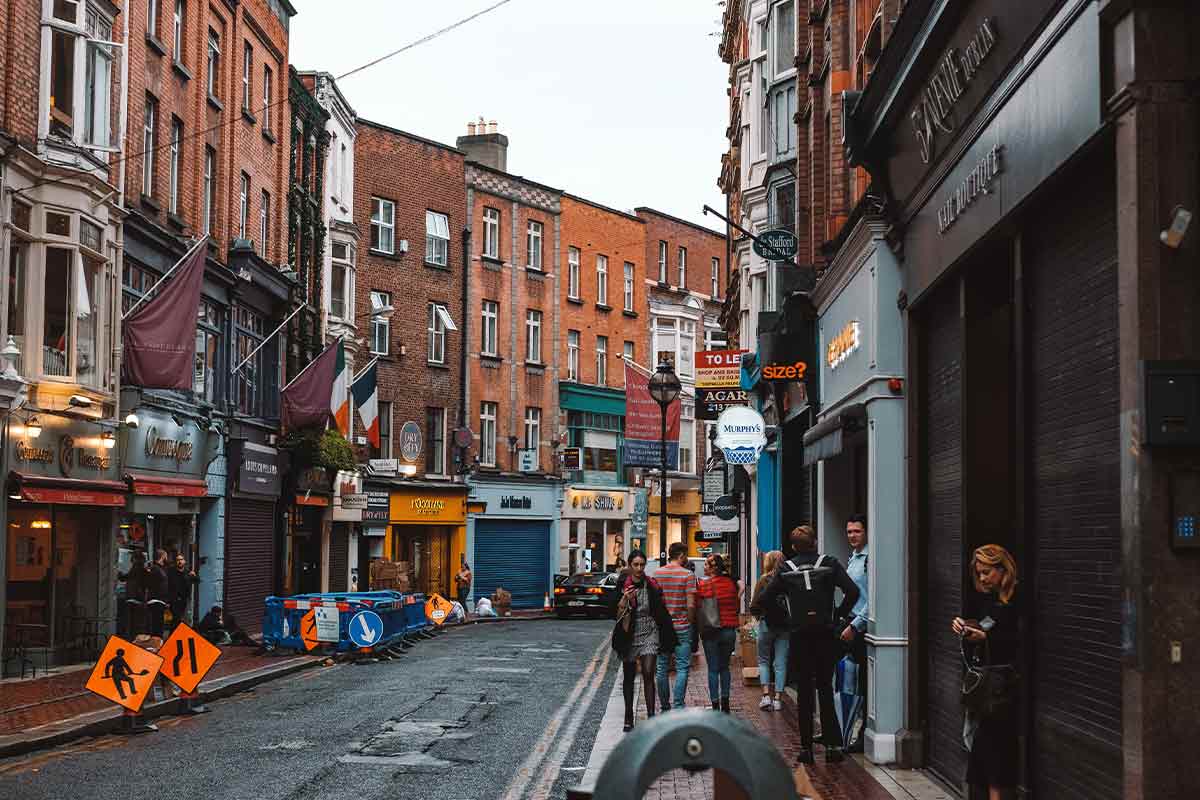
Is Dublin safe for new and unsophisticated travelers?
We don’t know about you, but when we think of Ireland, it’s difficult not to picture the rolling greenery, a little tiny old leprechaun, a pint of Guinness, and ‘the Pale.’
Dublin is the iconic capital of the great Republic of Ireland, and it has its fair share of history. It’s found on Ireland’s east coast at the mouth of the River Liffey.
But is Dublin safe? Read this guide to learn more about the crime rate and how safe it is to move around the city as a new tourist and as a solo female traveler.
Table of Contents
Is Dublin safe?
Dublin is known for its wealth of friendly people as it attracts people from all over the globe looking not only to experience Dublin’s night life but its unique culture.
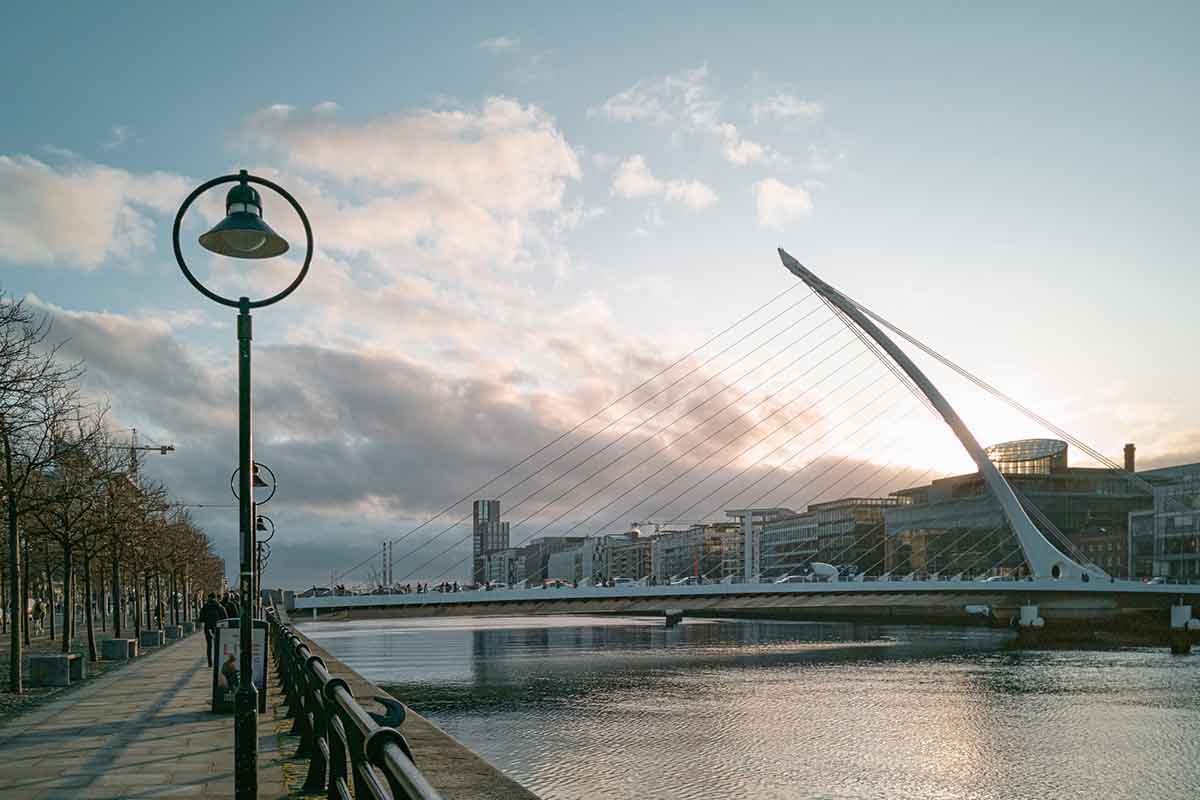
Even if you’re not interested in all things Guinness, or want to spend your days sat in the cozy Irish pub atmosphere, you can visit areas that are outside of the center or even do one of the day trips to the Wicklow Mountains in Glendalough.
The reality is, Ireland can seem like the safest country in the world. However, this shouldn’t mean you let your guard down when visiting Dublin.
How safe is Dublin?
The historic buildings include Dublin Castle, dating to the 13th century, and the imposing St Patrick’s Cathedral founded way back in 1191.
For those not in the know, Dublin is already classed as a smart city and is going down the right path in becoming a sustainable city of the future.
Dublin is an interesting place when it comes to the question of safety.
On the one hand, it’s just like any other major European city with petty crime problems, organized crime, and the highest chances of crime happening to visitors being pickpocketing or other petty crime.
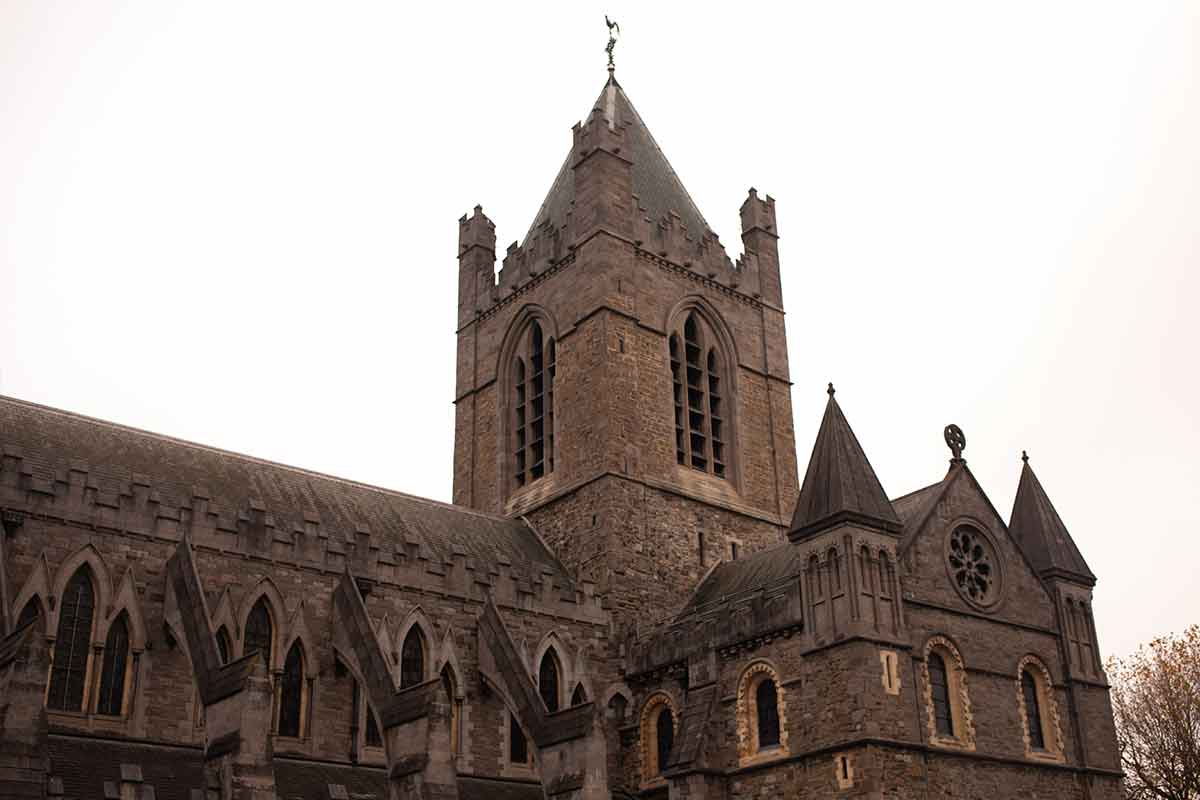
For safety, we like the a Pacsafe Metrosafe (or an equivalent style backpack) which is perfect for exploring cities like Dublin and helps conceal valuables.
However, it’s seen by as one of the safest capitals in the world due to the fact that the population of Ireland is actually quite low, so crime is quite sparse nationally.
There are thousands of people, however, that live in the busy streets of Dublin and are in fact, criminals. In our opinion, Dublin is a very safe city because of just how many tourists visit here and the main touristy spots being normally very quiet.
If we had to criticize Dublin’s tourism, we would say the drug problem in neighborhoods such as Ballymun and Ballyfermot is the main problem.
Dublin crime rate
- The current U.S. Department of State Travel Advisory at the date of this report’s publication assesses Ireland at Level 1, indicating travelers should exercise normal precautions.
- The U.S. Department of State has assessed Dublin as being a MEDIUM-threat location for crime.
- Visiting tourists are commonly victims of purse snatching or pickpocketing in high-traffic and tourist areas, but violent crimes against tourists are infrequent.
- The intentional homicide rate of Ireland is lower than Austria, Germany, Denmark Australia, UK and Greece.
Is Dublin safe for tourists?
Yes, Dublin is a safe city to visit as a tourist even though certain areas do suffer from higher crime stats, such as drug misuse and other public order offenses.
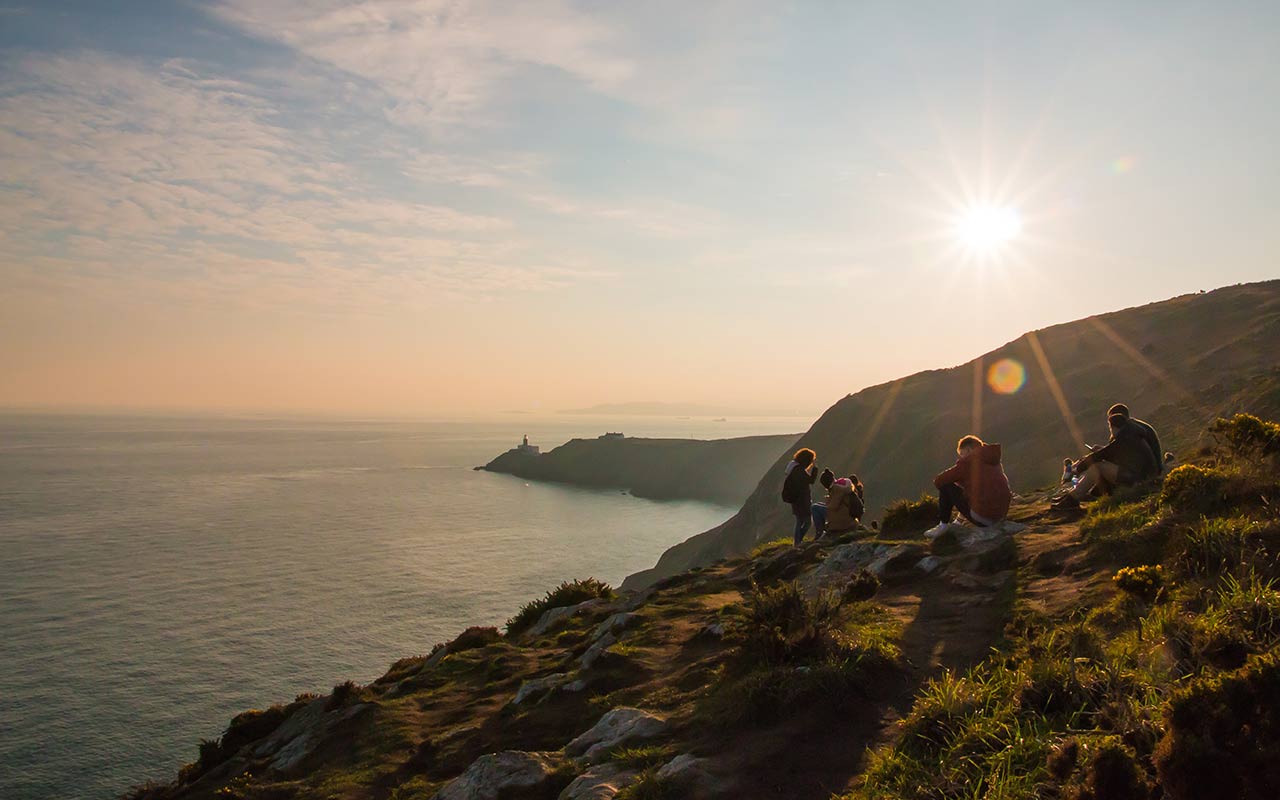
Aside from that, what else springs to mind when we think of pubs, gorgeous villages, castle ruins, and easy escapes into the countryside?
As any historic tour here will teach you, Dubliners and other Irish denominations, in general, tend to be more friendly than Americans or rural English people, and they tend to mind be welcoming and interested in other cultures.
Know for their passion and ‘good behaviour’, just look at some videos online of Irish football fans abroad, they love to have a joke and laugh about it!
Beyond that, Dublin is chock full of activities that are wonderful for solo travel: museums, long walks, photography, pubs, and window shopping.
As a tourist, one quick accommodation search online reveals that Riu Plaza: The Gresham is one of the most popular hotels in the city for first time visitors.
Is Dublin safe at night?
Yes, Dublin is safe at night but as for any other big city, it’s recommended to stay alert at all times and avoid some areas. We advise you not to walk around poorly lit streets and in the Phoenix Park area at night.
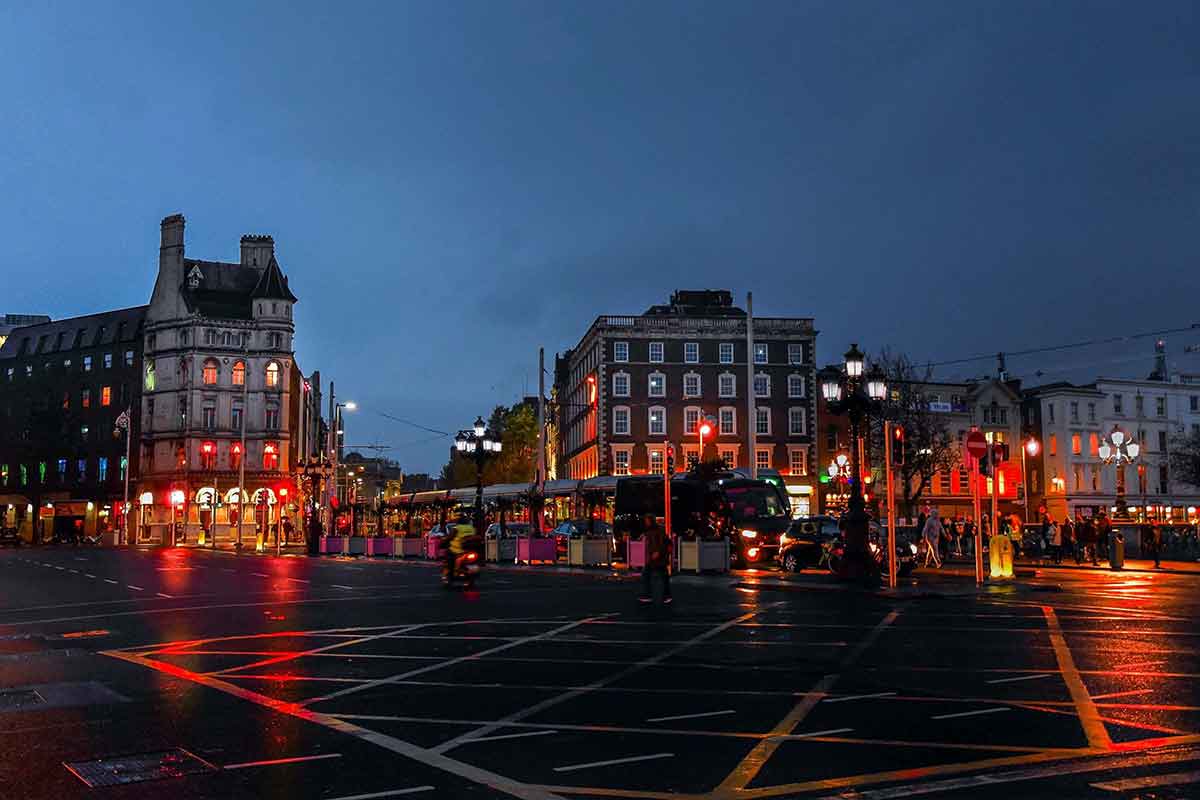
Be cautious and keep valuables safe when using public transport and in crowded areas such as O’Connell Street or Grafton Street. Pubs are open till 2.30 am and it’s common to come across gangs and people impaired by alcohol consumption
This specifically can happen in The Coombe, south of Dublin. Stay away from these individuals, by changing streets if necessary.
Thomson Street leads to the Guinness factory. Avoid this street late at night, to not risk being harassed, robbed, or assaulted by drunk people.
Is Dublin safe to travel alone?
Yes, Dublin is safe to travel solo. You’ll have no problems visiting the city during the day as long as you keep an eye on your personal belongings at all times.
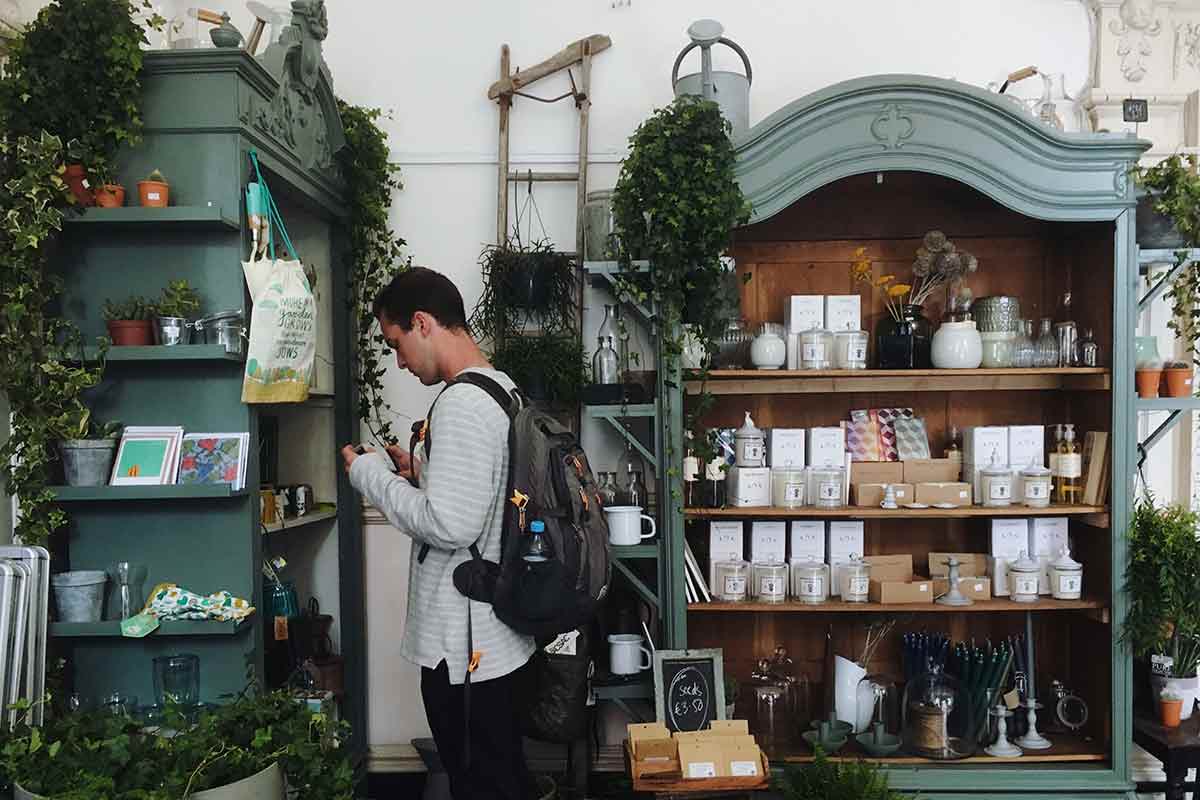
The most crowded places like some tourist attractions and public transport is where petty thieves and bag snatchers move around, so be alert.
It’s better to avoid exploring the city’s streets late at night, and we recommend doing it with another person or as a group.
Stick to well-lit areas and avoid dark and isolated streets where gangs might target tourists. Check that there are other people around you, in case you need to ask for help. Knowing some Irish Slang will definitely work in your favor here.
Is Dublin safe for solo female travel?
Yes, Dublin is a great city to visit as a solo female traveler. Women can visit the city and feel safe at all times during the day, but we recommend avoiding some areas of the city late at night.
Parks, stations and pubs are not safe places to frequent after dark. People that frequent these places might be drunk or want to rob you.
For this reason, don’t carry large amounts of cash and leave at your hotel your travel documents in a safe deposit box is provided. Stick to well-lit streets and where you can see other people around, in case you need urgent assistance.
Where to stay in Dublin
There are some incredible spots to stay when visiting Dublin, we will suggest two great recommendations that you can check out.
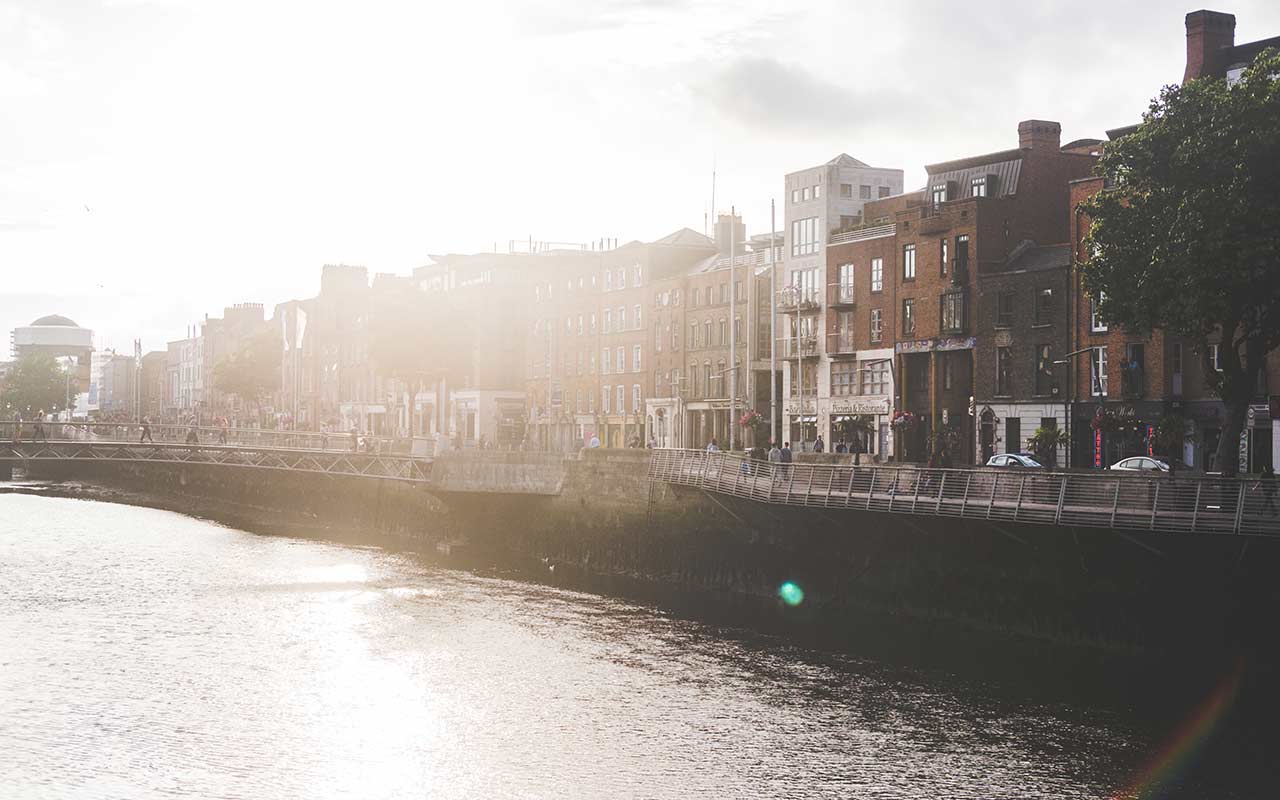
Portobello : is known as one of the most vibrant neighborhoods in Dublin! With a short walk 7-10 minutes from the city center, you’ll find one of the prettiest areas.
Portobello is home to a host of independent coffee shops, bakeries, and some fine Middle-Eastern foods. There is the Grand canal walk you can do that gives you the opportunity to connect with nature too.
Smithfield : is an up-and-coming area that has undergone a regeneration over the recent years. Places such as Smithfield square (known for its lighthouse) are open to the public to experience the local culture (think markets and family-themed events ) and the nightlife scene.
While planning your stay in Dublin, be sure to check out The Hendrick Smithfield for a luxury/affordable stay with just a short walk away from everything.
Areas to avoid in Dublin?
We’ll list some bad areas in Dublin to look out for below:
- Avoid surrounding areas of Gardiner Street, Dorset Street and Thomas Street.
- Temple Bar attracts many tourists, therefore many pickpockets: pay attention, especially on weekends. In general, be alert when hanging around bars and pubs as muggers might target you.
- Mountjoy Square and Cork Street or outlying areas such as Finglas (North Dublin) or Tallaght (South Dublin).
- In the city center, avoid Sheriff Street, known in the past for the heroin traffick, and today still affected by drug trafficking, crimes and antisocial activities.
- Avoid Thomas Street late at night to not risk being assaulted or harassed.
- Avoid The Coombe, a historical street located in the south, where young gangs hang around after dark and the risk of getting robbed is higher.
Dublin: Travel safety tips
Although Dublin isn’t the most unsafe location in the world, it won’t hurt to take some precautions before and during your stay to ensure that you stay safe.
Here are some travel safety tips to take with you:
- Keep your bag close to you at cafes/restaurants, never place your bag in a retrievable position open for passers-by to grab.
- Be aware of your surroundings when using public transport.
- Walking around flashing expensive items and gadgets will attract attention from unwanted petty criminals.
- See this EPIC guide on things to do in Dublin to make sure you have the best attractions and landmarks on your itinerary.
- Don’t show wads of cash when paying for stuff – control how much cash you carry around and use a hotel safe. Wearing a money belt may attract attention.
- Carry a bag that proects your belonings in an inconspicuous manner, you’ll find Pacsafe makes some great bags for this purpose.
- Know the typical distraction techniques – pickpockets often work in groups and sometimes pretend to be collecting money for a charity.
- Avoid homeless communities around large train stations – plus groups of people that sit around drinking.
- Be sure to check out Jacobs Inn for a budget stay in a signature designed bed at it’s award winning Irish hostel.
- You can find some of the best party spots in Europe here but be careful with drink or drug-taking if you’re a fan of the Dublin nightlife.
Best Time to Visit Dublin
Our trusted source with all things climate and travel is Travel US News.
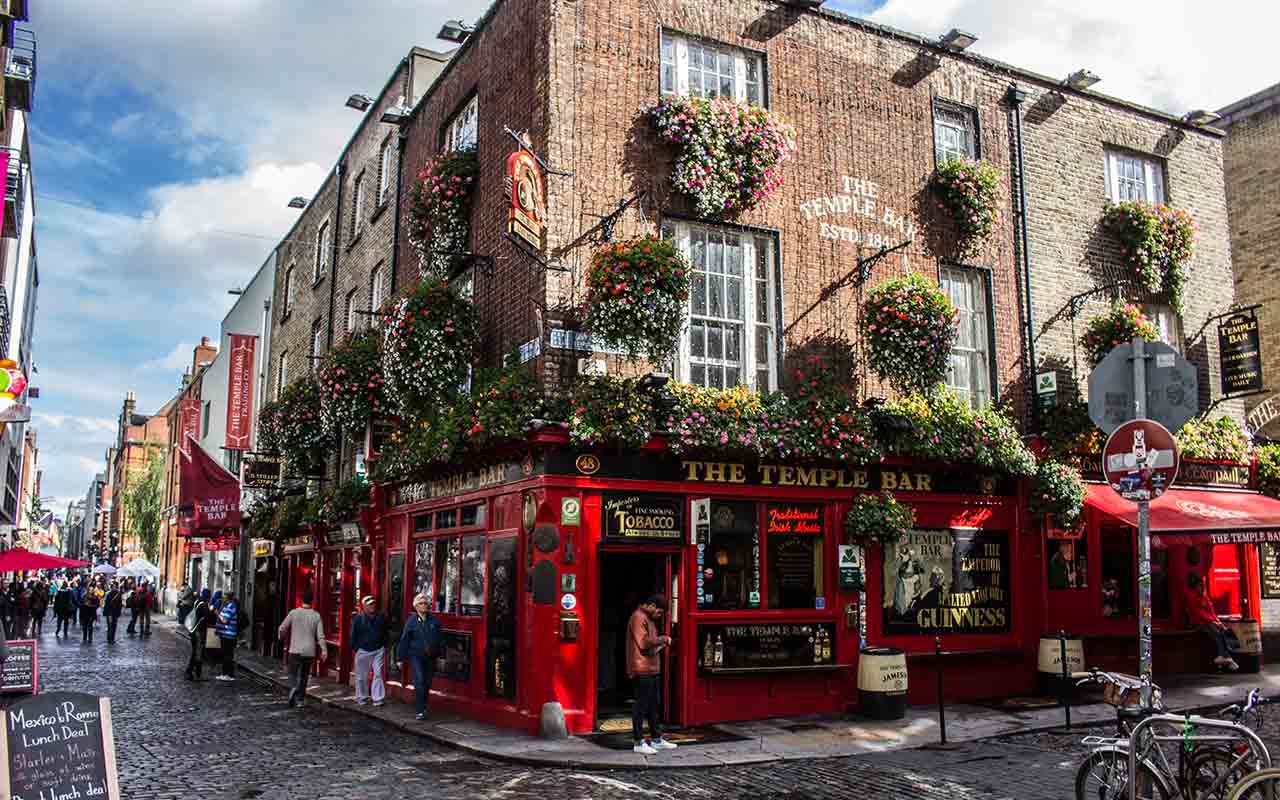
Here’s what they say:
“The best time to visit Dublin is June through August when temperatures are warm (for Ireland anyway) and festivals fill the streets. This also constitutes the most expensive time to visit, with high hotel rates and airfare prices. It’s also the most crowded time of year. If you’re looking for a deal and fewer tourists, come in the winter with your heaviest coat. Spring and fall offer a happy medium – moderate temperatures (again, for Ireland), crowds, and prices.”
Here are some of the key events for this particular time period:
- Bloomsday (June)
- Taste of Dublin (June)
- Dublin Irish Festival (July-August)
- Big Grill BBQ & Craft Beer Festival (August)
Whatever the weather in Dublin, though, if you have time, you should definitely visit the home of Guinness and learn all about world-famous Irish Stout.
Is Dublin safe? Final Words
Turns out, Dublin is quite a safe place if you take the necessary measures.
Planning ahead will not only help you to save cash, but it will also make your trip stress-free, so make sure you don’t become complacent.
Dublin has bar none, the best pubs and atmospheres in the world, so if you’re visiting purely for getting cultural, no need to fear. Book your trip to Dublin today!
Also, while you’re here, be sure to follow some of our best sustainable travel tips to ensure that your trip has the most positive impact on the local environment.
Dear responsible traveler : This post may contain affiliate links, which means, if you click through and make a purchase, book a tour or a hotel, we may earn a small commission. This is at no additional cost to you . Your support means a lot and helps us to maintain the quality of this site.
Sharing is caring!
Recent Posts
- How many days in Bogota?
- Is Punta Cana Safe? Travel Guide
- How to get from Treviso Airport to Venice
- How to get from Verona to Lake Garda
- Living Abroad
- Sustainability
- Travel Blog
Privacy Overview
Is Dublin safe to visit? A comprehensive safety guide

Dublin is a very large city on Ireland's East Coast, situated right by the mouth of the River Liffey. The city was established by the Vikings back in 841 AD but quickly expanded to become the second biggest city in the entire British Empire by the 17th century. It has a fantastic history with plenty of cultural traditions and landmarks that make it a popular place for sightseeing, like Dublin Castle and fabulous brew and food festivals.
Both new and inexperienced travelers like to vacation in Dublin, and it is a great place for families as well. In a year the city can see up to 6 million tourists with peak tourism occurring between June and early September. This is a good time to travel because the days are longer, so you can expect increased crowds during most of the summer. On top of that, over 1.2 million people live in metro Dublin.
Safety should be your priority when visiting a new place, so there is some research that you should do before visiting Dublin. This includes protecting your belongings. To keep your valuables secure when seeing sights like the Irish Whiskey Museum or Kilmainham Gaol , leave them in a suitcase facility in Dublin . Bounce has locations all over the city and each one is carefully vetted to make sure it reaches our standards of quality.

Love discounts and traveling?
Sign up for our newsletter and get 10% off your next booking.
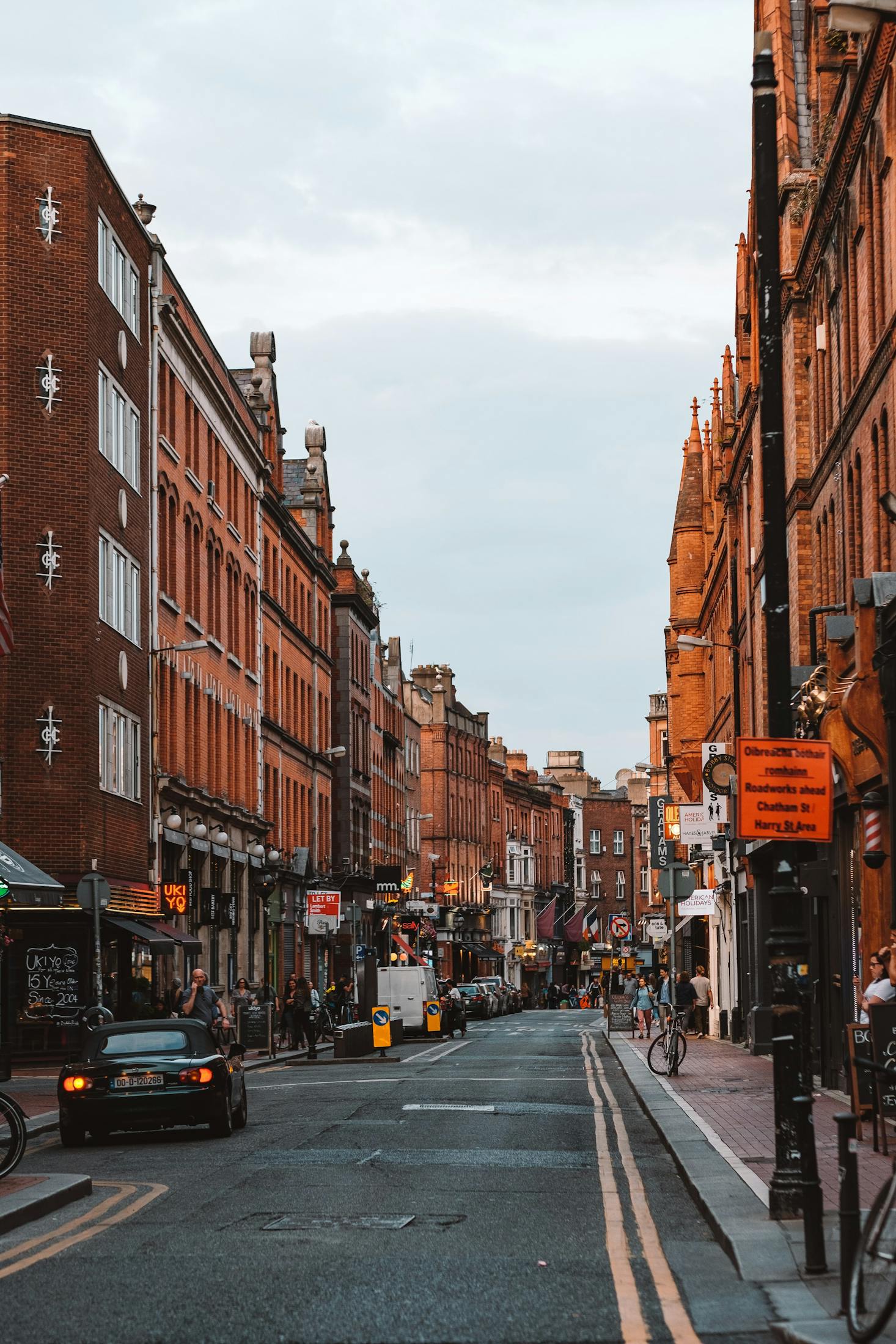
Is Dublin safe to visit right now?
If you're traveling for the first time, reading up on Dublin safety is a good place to start. This is a safe city with plenty to do and currently, it does not have any active travel advisories. Take normal precautions when traveling here but since Ireland has a Global Peace Index rating of 8 you can definitely feel safe in the country. Before you take off to Ireland, check the travel restrictions put in place by your government since they may change over time.
The overall risk of visiting Ireland, and more specifically Dublin, is very low. That doesn't mean that there isn't crime here, and as a tourist, you'll have to look out for pickpockets, but scams, muggings and natural disasters are not threats here. This is an informative safety guide, but to be the best prepared, research a few resources, whether a seasoned traveler or not.
Top petty crimes and scams in Dublin affecting tourists
The most important step to avoiding crime is being aware of it. Here are some things to look out for as a tourist in Dublin.
Transportation risk
Dublin is a pretty big city with lots of people, and that means that roads can sometimes get busy. Rush hour brings an even greater number of cars to the streets, and when people get impatient it can sometimes cause accidents. We urge you to be watchful of your surroundings when driving or cycling near roads and to check both ways before crossing the street.
Some major cities experience taxi fraud and you should always make sure that you're getting into a licensed vehicle. Taxi drivers should have a license and ID on display and will always be driving an easily identifiable car with a yellow plated roof.
Petty theft
It seems like pickpockets are in every other major city, not just Dublin, so you should protect yourself from them no matter where you go. They most often frequent the crowded areas around the Dublin City Centre, like Grafton Street , as well as train stations and tourist attractions, like Temple Bar.
The best way to protect your valuables at home, but items that you need to carry on you, like smartphones, wallets and passports, will need to be secured in a secure pocket of your bag or in a money belt where you can see them at all times.
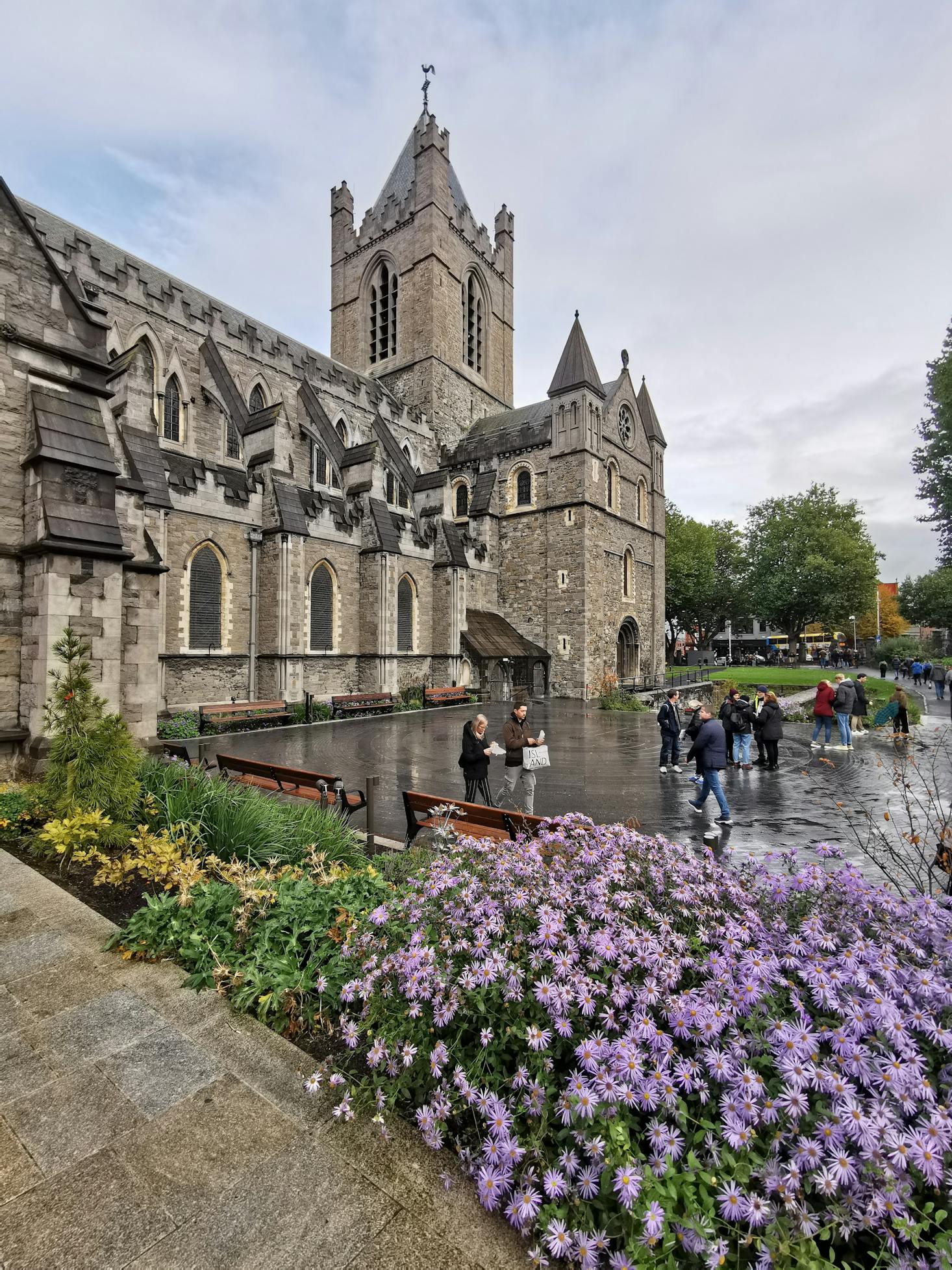
Is Dublin safe to visit alone
So how safe is Dublin if you want to travel but have no one to go with? Dublin, Ireland is a very safe city even for solo travelers and can be a good introduction to traveling alone. This vibrant city has friendly locals that are willing to help you if needed, plus there is so much to do here. Any time you're visiting somewhere new alone you'll need to be a bit more careful when walking around, especially in the evening. Stick to well lit areas for extra safety.
Good news for all of you solo female travelers, Ireland is one of the safest countries and is in 1st place on the Bounce Women Travel Safety Index . This makes Ireland safe for women to explore on their own and as long as you take the same precautions that you would at home, you'll have a safe trip.
Safest neighborhoods in Dublin
You'll have plenty of things to add to your travel itinerary when visiting the Irish capital city, here are a couple of places that are great to visit.
Smithfield is safe, exciting, and close to the City Centre of Dublin. It's the spot to go to for bistros and breweries as well as seasonal food markets.
Dublin City Centre
With close proximity to Grafton Street, Temple Bar, St Stephen's Green and Trinity College, you'll definitely be spending a lot of your time in Dublin City Centre.
Portobello is a safe spot for tourists and has low crime rates. You'll enjoy the Grand Canal and shopping along South Richmond Street.
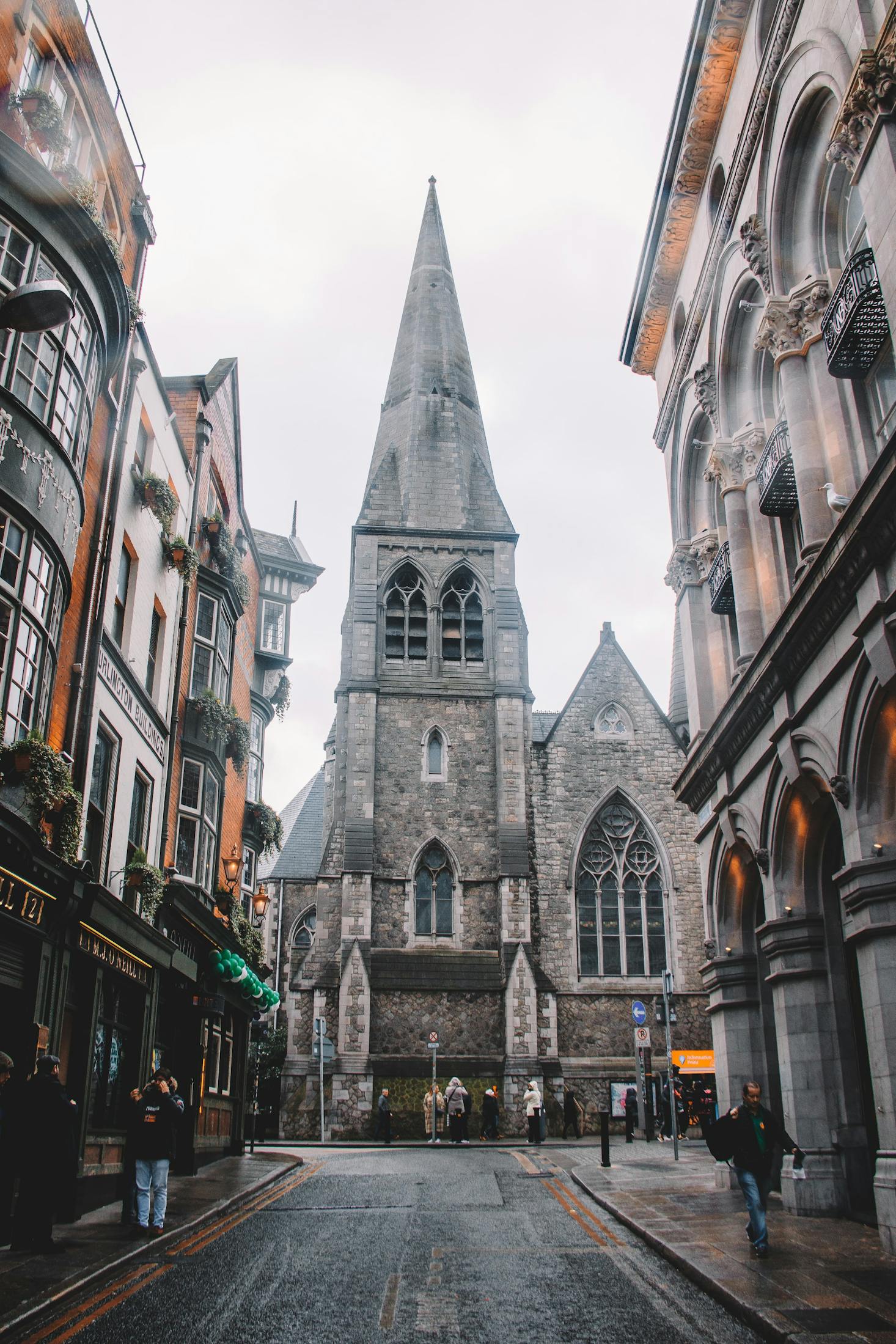
Is Dublin public transportation safe?
The public transport system in Dublin is safe, efficient and convenient. The only thing to look out for while using Dublin's public transportation is pickpocketing, especially around the Connolly Railway station or any other big train station.
Keep a hand on your bags at all times and you'll be fine. Be more aware of things around you at night and consider taking a taxi if it is very late. That being said, if you display respectful behavior, people will probably do the same, and most rides on public transit will be uneventful.
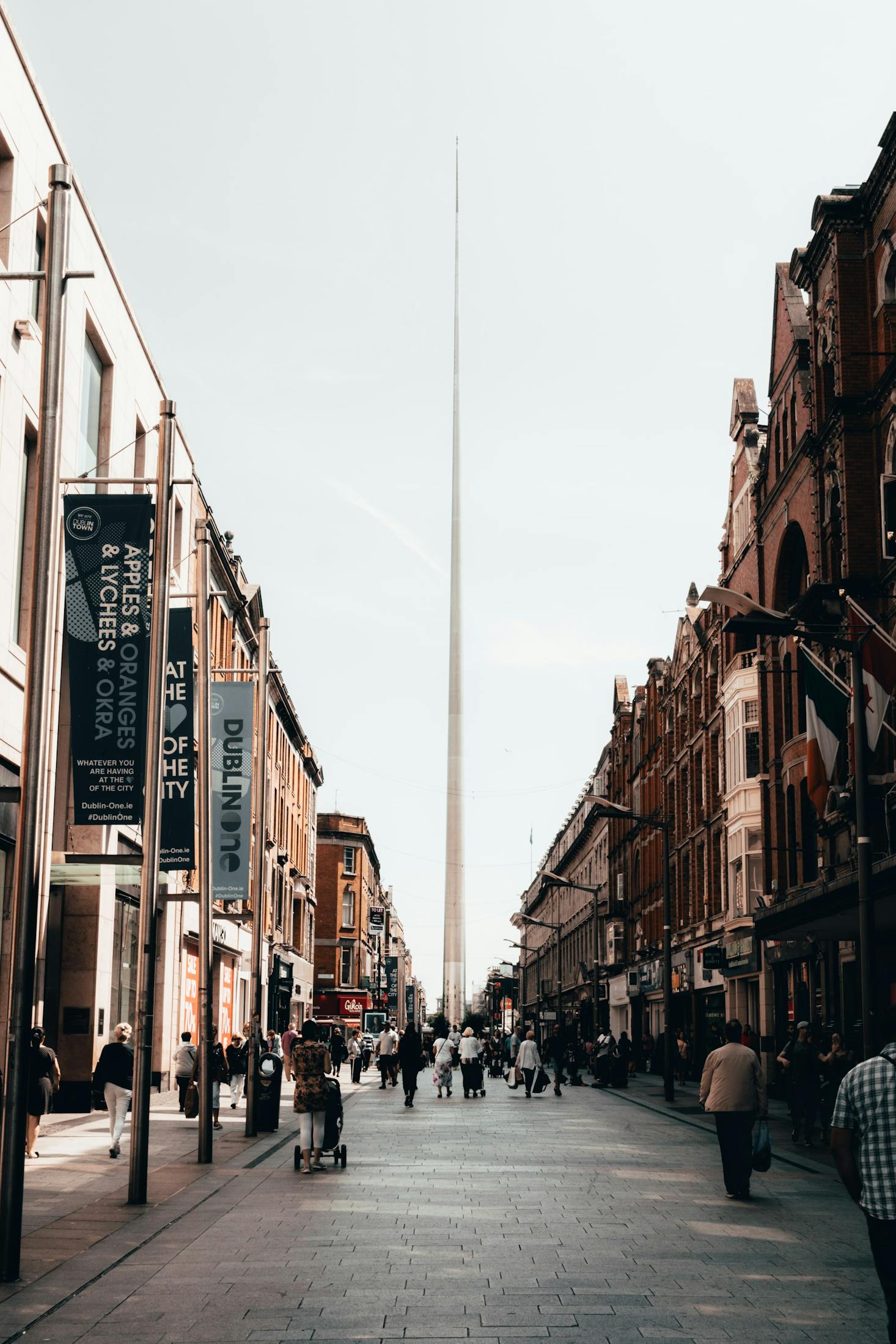
Important emergency numbers in Dublin
If you are ever in need of help while in Dublin, assistance will never be far away. You'll see that many shops have their own security guards, and the local police force is always around to help, too. When traveling, having your embassy number at hand is good practice.
- Irish Police Force, Fire Brigade, Ambulance: 112 or 999
- Tourist Assistance Service: 1890-365-700
- Samaritan: 353-116-123
- Store Street Garda Station: 00 353 (1) 661 0562
- Pearse Street Garda: 00 353 (1) 666 9000
Learning about safety in Dublin
Friendly citizens, great landmarks, and an undeniable charm make Dublin one of the best European capitals. This lovely city does not experience a lot of crime, making Dublin safe for tourists and an attractive vacation destination for everyone.
Now that you know how to be safe in Dublin you're about ready to take off and see the attractions and landmarks for yourself. For information on Dublin's charming neighborhoods, read Where to Stay in Dublin: The Ultimate Guide . Be at ease with the transportation system after you learn How to Get Around Dublin .
Related guides
Dublin on a budget: 7 travel hacks to save on your trip.
If you have been considering taking a trip to Ireland but are worried that you can't afford to visit Dublin on a budget, rest easy. You can actually visit Dublin on a budget and still experience everything that this city is well-known for. Just use these hacks to help your money go further.
5 easy must-do weekend trips from Dublin
Luckily, Ireland isn't a big country. Just about anywhere on the island of Ireland, including Northern Ireland, is reachable in just a few hours from Dublin. Whether you choose to travel by car, long-distance bus, or train, you'll be able to access some truly incredible locations on weekend breaks from Dublin.
The Top 12 Free Things To Do In Dublin
Some of Dublin's top attractions can be visited absolutely free. Check out the full list here.
Explore the world
Get the bounce app.
Instantly find locations nearby to drop off your luggage wherever you go.


Dublin Areas To Avoid: A Guide To The Most Dangerous Areas In Dublin
By Author Keith O'Hara
Posted on Last updated: June 24, 2024
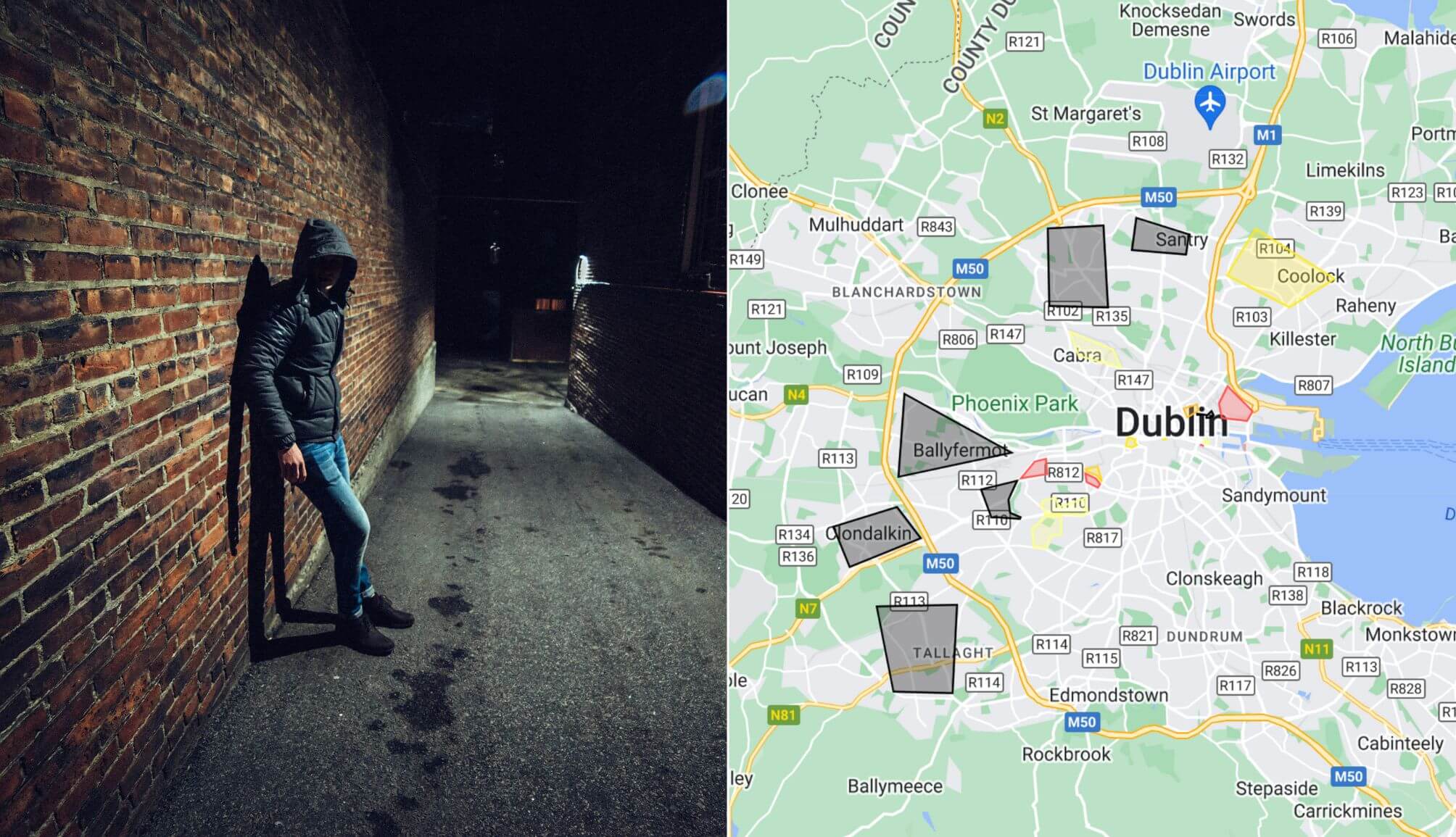
I have lived in Ireland’s capital for 35 years – there are, in my opinion, many areas to avoid in Dublin.
So, to answer the question ‘ Is Dublin Safe ?’ , I’m going to give you:
- The facts: You’ll find recent crime figures for Dublin
- A map: A map of the worst areas in Dublin based on negative experiences
Some quick need-to-knows about the areas to avoid in Dublin

Photos via Shutterstock
Before you dive into the article below, there are several need-to-knows about our guide on areas to avoid in Dublin, so take a minute to read them.
1. This isn’t a guide for renting
If you’re looking to rent and you’re trying to figure out the worst places to live in Dublin so that you can avoid them, this isn’t the guide you’re looking for (although you should find the map enlightening…). This is aimed at visiting tourists wondering where to stay in Dublin .
2. What’s ‘safe’ can be subjective
City dynamics are constantly changing and you’ll rarely get total agreement from anyone on one particular area. This guide isn’t about wielding pitchforks and going to town on one area, because it would be unfair to those living there. We’ll go by the figures as best we can and offer tourists an idea of Dublin areas to avoid ahead of their trip.
3. Take statistics with a pinch of salt
Having said that, statistics only offer a limited overview of an area. What’s worse is that many media outlets create clickbait headlines around ‘new studies’ to create outrage and drive clicks. Numbers alone aren’t a foolproof method of proving anything so don’t be too frightened of travelling simply by seeing an alarming-looking figure.
4. Where I avoid
I visit Dublin City very frequently . It’s usually at night, which is when you’re arguably most likely to encounter trouble. Personally , I avoid O’Connell Street and all of it’s side streets, like Parnell St. and Henry St., Westmorland St., Talbot St., all around Connolly Station and Temple Bar, as it’s messy in the evenings.
The facts about crime in Dublin
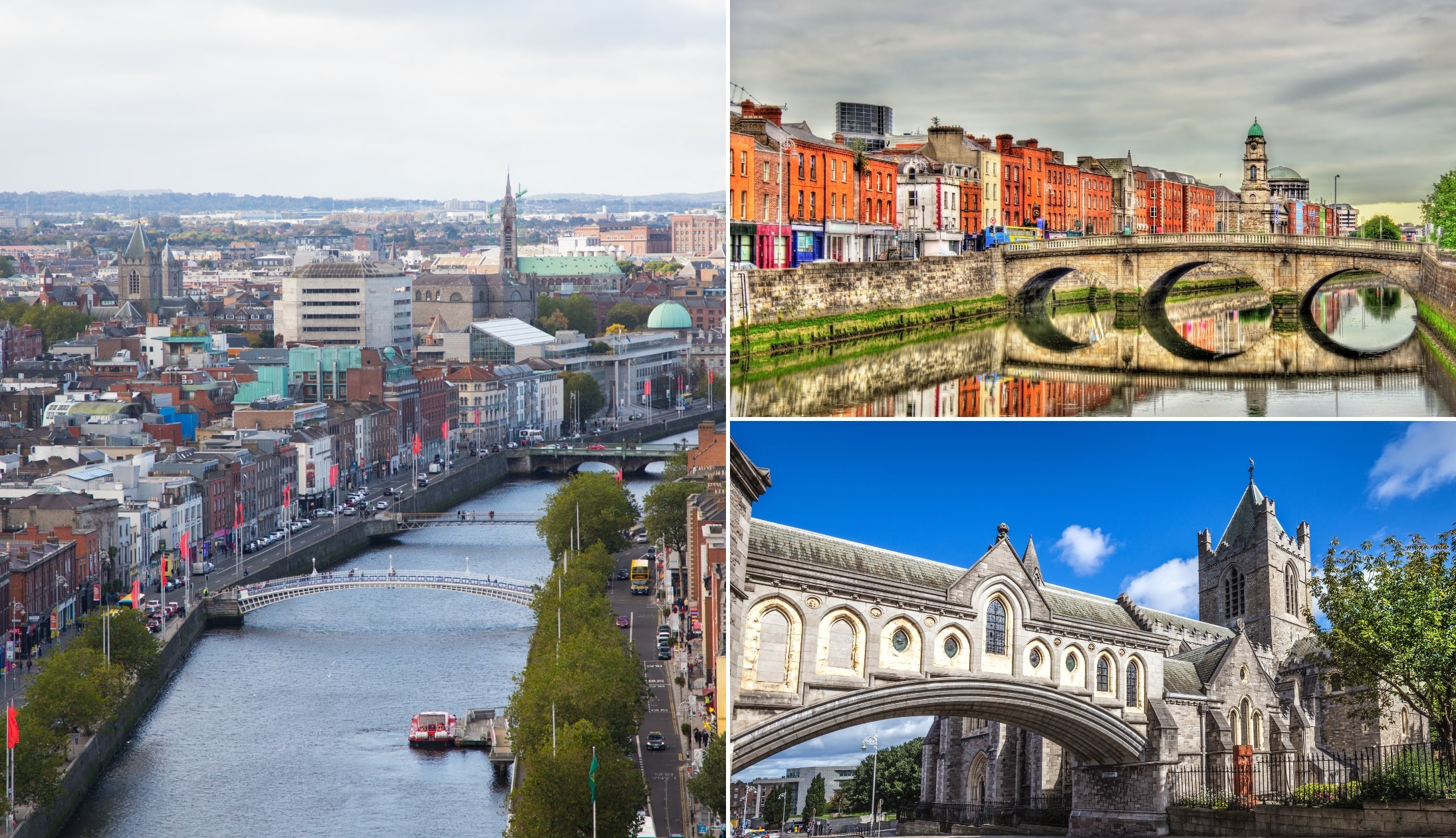
Before looking at the specific areas to avoid in Dublin, let’s take a look at some facts, figures and recent incidents involving tourists in Dublin.
It’s worth keeping in mind that statistics never tell the full picture – they don’t tell you about the thousands of tourists that visited Dublin and that had a safe, memorable time.
And they don’t tell you about the many crimes in Dublin that likely go unreported.
Latest figures
On March 25th 2024, the CSO released their latest figures detailing crime in Dublin, and it was enlightening.
The report, which looked at crime stats for Q4 of 2023 revealed the following:
- Public order offences down 8%
- Theft and related offences up 12%
- Robbery, extortion and car theft offences up 26%
Recent incidents
In 2023, there were two high profile incidents where tourists were mugged and injured. The first took place in August 2023 on Talbot St. where a US tourist was badly hurt by a group of teenagers.
The second took place in Temple Bar in July 2023 when two American brothers were mugged by two men.
In June of 2024, a Canadian tourist was set-upon on O’Connell Street and Cathal Brugha Street. Each incident received extensive national coverage.
A map of Dublin areas to avoid
The map above was created by Deliveroo drivers. It shows places where they had bad encounters (where they were assaulted or had negative experiences).
Now, remember, this isn’t saying that everyone in these areas is a bad person – but it shows parts of the city/county where, personally, I’d avoid staying if I was visiting Dublin.
As you can see, many of the maps ‘most dangerous areas in Dublin’ are far from the city centre and are places that tourists are unlikely to stumble upon.
The most dangerous areas in Dublin (based on 2019/2020 statistics)

So, there’s a lot of data to dive into if you’re trying to figure out Dublin areas to avoid based on crime data.
One of the studies from the Central Statistics Office was the 2003 to 2019 report. According to these figures, the most dangerous areas of Dublin (and several of these match up with the worst areas in Dublin on the Deliveroo map) are as follows:
1. Dublin City
Where the most people congregate is always going to be a potential crime hotspot. The city centre is, of course, the most obvious example and it’s why tourists need to be vigilant when they’re out and about and try not to be too blasé with their valuables.
2. Pearse Street
Perhaps surprisingly, Pearse Street Garda station in Dublin’s south inner city is at the centre of Ireland’s most crime-ridden district. Between 2003 and 2019, it had the highest number of criminal incidents and the small area around the station is visible too if you zoom into the Deliveroo map.
3. Tallaght
Another area high on the list is Tallaght, although it’s unlikely any tourists would spend any time out in this area of the city given its location. With over 100,000 incidents recorded during the 2003 to 2019 timespan, also appears on the Deliveroo map underneath a large grey square.
4. Blanchardstown
Just below Tallaght is Blanchardstown with 95,000 incidents. Like Tallaght, it’s a largely residential area with local businesses that tourists are unlikely to frequent.
Dodge the areas to avoid in Dublin by picking a great neighbourhood to stay in

Part of the fun of visiting a new city (for me at least!) is planning your adventures and what you want to see during your time there.
Though most booking websites will drive you towards the city centre (and that’s no bad thing), your trip can be given an extra bit of spice by choosing a great neighbourhood to stay in.
From Phibsborough to Portobello , there are some great areas of Dublin that aren’t too far from the bright lights of the city centre and are packing with busy cafes, colourful bars and canalside walks.
We’ve put together a guide where you can find several great places to stay in and around the city, regardless of what budget you’re playing with.
Now you know where to avoid, here’s where to visit
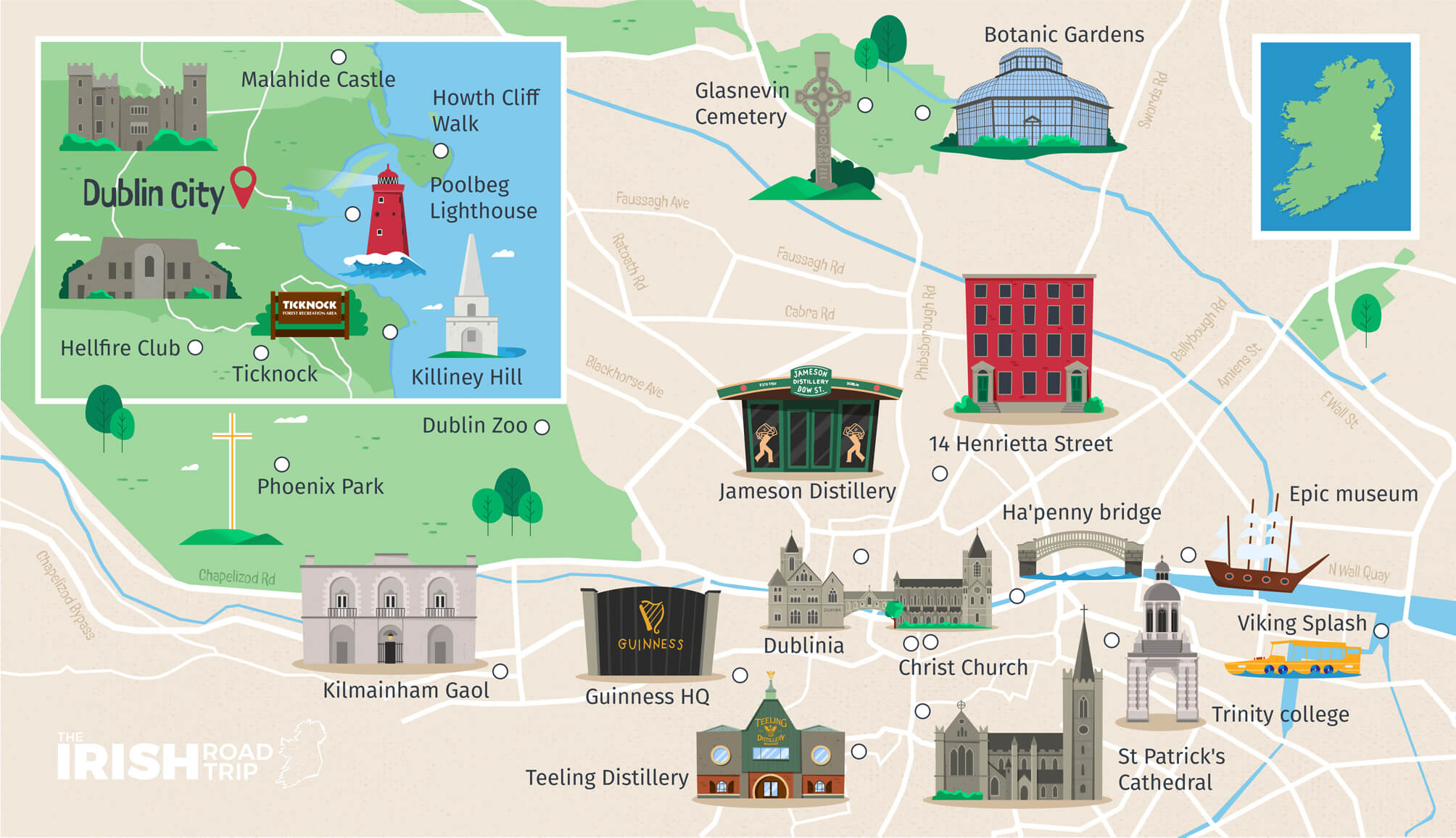
Now that you’ve an idea of where the rough areas in Dublin are, it’s time to look at what to do while you’re here!
There are endless things to do in Dublin . Here are some guides you’ll find useful:
- Itineraries: How to spend 2 days in Dublin and 24 hours in Dublin
- Pints: Our favourite historical pubs in Dublin
- For families: Heaps of things to do with kids in Dublin
Keith O’Hara has lived in Ireland for 35 years and has spent most of the last 10 creating what is now The Irish Road Trip guide. Over the years, the website has published thousands of meticulously researched Ireland travel guides, welcoming 30 million+ visitors along the way. In 2022, the Irish Road Trip team published the world’s largest collection of Irish Road Trip itineraries . Keith lives in Dublin with his dog Toby and finds writing in the 3rd person minus craic altogether.
This site uses Akismet to reduce spam. Learn how your comment data is processed .
Saturday 25th of November 2023
Felt safe in most of Dublin except near the guinness gate. Absolutely shocking awful area with horrible characters and was sent into this area by the tourist signs on street corners.
Monday 15th of May 2023
My advice to citizens and tourists visiting Ireland is to stay away from Talbot street. It has a very unfriendly atmosphere and unsavoury characters walking around abusing people and looking for trouble. I am a man and I dread walking through this street to do shopping. I only go there now when I see a bargain in some of the supermarkets on talbot street. A very intimidating street indeed.
Neville Scollop
Wednesday 6th of September 2023
@Michael, I moved away from Dublin 25 years ago. I come home every so often and venture into town and am shocked to see the state of the streets off O'Connell street, its Dickensian. Wtf has happened? Why are these areas so badly run down?
Thursday 24th of August 2023
@Michael, I would even add Abbey Street or honestly any street off of O'Connell Street. The situation has really gone downhill in the last 1-2 years
- Skip to main content
- Skip to "About this site"
Language selection
Search travel.gc.ca.
Help us to improve our website. Take our survey !
COVID-19: travel health notice for all travellers
Ireland travel advice
Latest updates: Entry and exit requirements – added information on temporary entry under CETA
Last updated: August 30, 2024 14:47 ET
On this page
Safety and security, entry and exit requirements, laws and culture, natural disasters and climate, ireland - take normal security precautions.
Take normal security precautions in Ireland.
Back to top
Petty crime
Petty crime such as pickpocketing and purse snatching occurs. Tourists are frequently targeted.
Organized groups of thieves often use distraction techniques and are particularly active:
- at tourist sites and attractions
- in hotels, restaurants and bars
- on public transportation
- at airports and railway stations
While you’re in Ireland:
- ensure that your belongings, including your passport, are secure at all times
- don’t keep your passport and other types of ID in the same place and carry a photocopy rather than the original when you are out
- avoid showing signs of affluence or wearing expensive jewellery
- avoid carrying large sums of cash or unnecessary valuables
- avoid deserted streets at night
- pay attention to your surroundings, particularly in crowded and tourist areas and when withdrawing cash from ATM
Car theft and break-ins occur, particularly in tourist areas in Dublin and surrounding areas. Rental vehicles are a target of choice.
- Familiarize yourself with your route before starting the trip
- Keep your windows and doors locked at all times
- Keep your belongings out of reach
- Use secure parking facilities, especially overnight
- Never leave belongings unattended in a vehicle, even in the trunk
Violent crime
Violent crime, although rare, may occur in larger cities.
If you are the victim of a crime, you must report the incident to the nearest An Garda Síochána station, Ireland’s National Police Service. The Garda can then refer you to the Irish Tourist Assistance Service (ITAS) for further assistance.
You may file a preliminary complaint online for theft of belongings. This could help speed up the process at the police station.
The ITAS offers support and assistance to tourists who become victims of crime while in Ireland. The service can:
- arrange accommodation, transportation and meals
- liaise with many companies, such as travel insurance and financial institutions
- liaise with the local police and the Embassy of Canada
Useful links
- Victim services - An Garda Síochána
- Declare a theft - An Garda Síochána
- Assistance for victims of crime - The Irish Tourist Assistance Service
Credit card and ATM fraud
Credit card and ATM fraud occurs. When using debit or credit cards:
- pay careful attention if other people are handling your cards
- use ATMs located in public areas or inside a bank or business
- avoid using card readers with an irregular or unusual feature
- cover the keypad with one hand when entering your PIN
- check for any unauthorized transactions on your account statements
- never save your debit or credit card’s details in unknown laptops or computer devices
Cybercrime occurs. Perpetrators may compromise public Wi-Fi networks to steal credit card or personal information.
- Avoid using unsecured public Wi-Fi networks
- Avoid making purchases on unencrypted websites
- Be cautious when posting information on social media
- Be particularly vigilant when contacting or meeting individuals known over the internet
- Never click a suspicious link in an email or text message asking for your credit card details
Romance scams
If you’re travelling to Ireland to meet someone you’ve otherwise only met online, you may be the victim of a scam. Be wary of attempts at fraud by persons who profess friendship or romantic interest over the internet.
- Report a cybercrime - An Garda Síochána
- Information on cybercrime - Garda National Cyber Crime Bureau
- More about overseas fraud
There is a threat of terrorism in Europe. Terrorists have carried out attacks in several European cities. Terrorist attacks could occur at any time.
Targets could include:
- government buildings, including schools
- places of worship
- airports and other transportation hubs and networks
- public areas such as tourist attractions, restaurants, bars, coffee shops, shopping centres, markets, hotels and other sites frequented by foreigners
Always be aware of your surroundings when in public places. Be particularly vigilant if attending sporting events and during religious holidays and other public celebrations, as terrorists have used such occasions to mount attacks.
Demonstrations
Demonstrations and strikes occur regularly. Even peaceful demonstrations can turn violent at any time. They can also lead to disruptions to traffic and public transportation.
Violent demonstrations occurred in Dublin in November 2023 and led to acts of vandalism, arson, and clashes between demonstrators and police.
- Avoid areas where demonstrations and large gatherings are taking place
- Follow the instructions of local authorities
- Monitor local media for information on ongoing demonstrations
Mass gatherings (large-scale events)
Adventure tourism
Outdoor activities, such as hiking and biking, may lead to safety concerns if they are not well-organized. Trails are not always marked and weather conditions can change rapidly, even in summer.
If you intend to go walking, biking or hiking in remote areas:
- never do so alone and do not part with your hiking companions
- buy travel insurance that includes helicopter rescue and medical evacuation
- ensure that your physical condition is good enough to meet the challenges of your activity
- do not venture off marked trails
- ensure that you’re adequately equipped
- stay informed about weather and other conditions that may pose a hazard
- inform a family member or friend of your itinerary
- obtain detailed information on your activity and on the environment in which you will be doing it before setting out
- Walking safety - Ordnance Survey Ireland
- Hiking advice - Mountaineering Ireland
Road safety
Road conditions and road safety are generally good. Some roads can be uneven, narrow and winding, particularly in rural areas. These may become hazardous during severe weather conditions.
Roundabouts are common.
- Use caution when entering a traffic circle
- Reduce speed on narrow, uneven country roads
AA Road travel advice and route planning - Ireland’s Roadwatch Newsroom
Public transportation
Taxis are generally safe.
Negotiate fares in advance or insist that the driver use the meter as rates can vary based on the time of day and location.
Buses and trains
Intercity bus and train services networks are extensive and reliable.
They are occasionally affected by overcrowding and traffic congestion.
Strike actions may also cause disruptions.
Cycling is a common transportation option in Ireland, particularly in Dublin. If you do cycle, pay attention to traffic regulations and vehicles.
- Cycling advice - Dublin Cycling Campaign
- Safety tips - Irish Cycle
We do not make assessments on the compliance of foreign domestic airlines with international safety standards.
Information about foreign domestic airlines
Every country or territory decides who can enter or exit through its borders. The Government of Canada cannot intervene on your behalf if you do not meet your destination’s entry or exit requirements.
We have obtained the information on this page from the Irish authorities. It can, however, change at any time.
Verify this information with the Foreign Representatives in Canada .
Regional travel
Ireland is a member of the European Union, but it’s not part of the Schengen area.
You must have a valid passport to travel between Ireland and other European countries.
If you plan to travel to the United Kingdom, including Northern Ireland, make sure you meet the entry/exit requirements for the United Kingdom .
Entry requirements vary depending on the type of passport you use for travel.
Before you travel, check with your transportation company about passport requirements. Its rules on passport validity may be more stringent than the country’s entry rules.
Regular Canadian passport
Your passport must be valid for the expected duration of your stay in Ireland.
Passport for official travel
Different entry rules may apply.
Official travel
Passport with “X” gender identifier
While the Government of Canada issues passports with an “X” gender identifier, it cannot guarantee your entry or transit through other countries. You might face entry restrictions in countries that do not recognize the “X” gender identifier. Before you leave, check with the closest foreign representative for your destination.
Other travel documents
Different entry rules may apply when travelling with a temporary passport or an emergency travel document. Before you leave, check with the closest foreign representative for your destination.
- Foreign Representatives in Canada
- Canadian passports
Tourist visa: not required for stays up to 90 days Business visa: not required for stays up to 90 days Student visa: not required Work permit: required, except for the Student Work Abroad Program
- Visas for Ireland – Department of Foreign Affairs of Ireland
- Visas and residence – Irish Immigration services
- Student Work Abroad Program
- Guide to temporary entry into Ireland under CETA
Other entry requirements
Customs officials may ask you to show them a return or onward ticket and proof of sufficient funds to cover your stay.
You may be denied entry if you're unable to do so or if custom officials suspect that you intend to seek any type of employment while entering as a visitor.
- Children and travel
Learn more about travelling with children .
Yellow fever
Learn about potential entry requirements related to yellow fever (vaccines section).
Relevant Travel Health Notices
- Global Measles Notice - 13 March, 2024
- COVID-19 and International Travel - 13 March, 2024
This section contains information on possible health risks and restrictions regularly found or ongoing in the destination. Follow this advice to lower your risk of becoming ill while travelling. Not all risks are listed below.
Consult a health care professional or visit a travel health clinic preferably 6 weeks before you travel to get personalized health advice and recommendations.
Routine vaccines
Be sure that your routine vaccinations , as per your province or territory , are up-to-date before travelling, regardless of your destination.
Some of these vaccinations include measles-mumps-rubella (MMR), diphtheria, tetanus, pertussis, polio, varicella (chickenpox), influenza and others.
Pre-travel vaccines and medications
You may be at risk for preventable diseases while travelling in this destination. Talk to a travel health professional about which medications or vaccines may be right for you, based on your destination and itinerary.
Yellow fever is a disease caused by a flavivirus from the bite of an infected mosquito.
Travellers get vaccinated either because it is required to enter a country or because it is recommended for their protection.
- There is no risk of yellow fever in this country.
Country Entry Requirement*
- Proof of vaccination is not required to enter this country.
Recommendation
- Vaccination is not recommended.
* It is important to note that country entry requirements may not reflect your risk of yellow fever at your destination. It is recommended that you contact the nearest diplomatic or consular office of the destination(s) you will be visiting to verify any additional entry requirements.
About Yellow Fever
Yellow Fever Vaccination Centres in Canada
Hepatitis B is a risk in every destination. It is a viral liver disease that is easily transmitted from one person to another through exposure to blood and body fluids containing the hepatitis B virus. Travellers who may be exposed to blood or other bodily fluids (e.g., through sexual contact, medical treatment, sharing needles, tattooing, acupuncture or occupational exposure) are at higher risk of getting hepatitis B.
Hepatitis B vaccination is recommended for all travellers. Prevent hepatitis B infection by practicing safe sex, only using new and sterile drug equipment, and only getting tattoos and piercings in settings that follow public health regulations and standards.
Coronavirus disease (COVID-19) is an infectious viral disease. It can spread from person to person by direct contact and through droplets in the air.
It is recommended that all eligible travellers complete a COVID-19 vaccine series along with any additional recommended doses in Canada before travelling. Evidence shows that vaccines are very effective at preventing severe illness, hospitalization and death from COVID-19. While vaccination provides better protection against serious illness, you may still be at risk of infection from the virus that causes COVID-19. Anyone who has not completed a vaccine series is at increased risk of being infected with the virus that causes COVID-19 and is at greater risk for severe disease when travelling internationally.
Before travelling, verify your destination’s COVID-19 vaccination entry/exit requirements. Regardless of where you are going, talk to a health care professional before travelling to make sure you are adequately protected against COVID-19.
The best way to protect yourself from seasonal influenza (flu) is to get vaccinated every year. Get the flu shot at least 2 weeks before travelling.
The flu occurs worldwide.
- In the Northern Hemisphere, the flu season usually runs from November to April.
- In the Southern Hemisphere, the flu season usually runs between April and October.
- In the tropics, there is flu activity year round.
The flu vaccine available in one hemisphere may only offer partial protection against the flu in the other hemisphere.
The flu virus spreads from person to person when they cough or sneeze or by touching objects and surfaces that have been contaminated with the virus. Clean your hands often and wear a mask if you have a fever or respiratory symptoms.
Measles is a highly contagious viral disease. It can spread quickly from person to person by direct contact and through droplets in the air.
Anyone who is not protected against measles is at risk of being infected with it when travelling internationally.
Regardless of where you are going, talk to a health care professional before travelling to make sure you are fully protected against measles.
In this destination, rabies may be present in some wildlife species, including bats. Rabies is a deadly disease that spreads to humans primarily through bites or scratches from an infected animal.
If you are bitten or scratched by an animal while travelling, immediately wash the wound with soap and clean water and see a health care professional.
Before travel, discuss rabies vaccination with a health care professional. It may be recommended for travellers who will be working directly with wildlife.
Safe food and water precautions
Many illnesses can be caused by eating food or drinking beverages contaminated by bacteria, parasites, toxins, or viruses, or by swimming or bathing in contaminated water.
- Learn more about food and water precautions to take to avoid getting sick by visiting our eat and drink safely abroad page. Remember: Boil it, cook it, peel it, or leave it!
- Avoid getting water into your eyes, mouth or nose when swimming or participating in activities in freshwater (streams, canals, lakes), particularly after flooding or heavy rain. Water may look clean but could still be polluted or contaminated.
- Avoid inhaling or swallowing water while bathing, showering, or swimming in pools or hot tubs.
Insect bite prevention
Many diseases are spread by the bites of infected insects such as mosquitoes, ticks, fleas or flies. When travelling to areas where infected insects may be present:
- Use insect repellent (bug spray) on exposed skin
- Cover up with light-coloured, loose clothes made of tightly woven materials such as nylon or polyester
- Minimize exposure to insects
- Use mosquito netting when sleeping outdoors or in buildings that are not fully enclosed
To learn more about how you can reduce your risk of infection and disease caused by bites, both at home and abroad, visit our insect bite prevention page.
Find out what types of insects are present where you’re travelling, when they’re most active, and the symptoms of the diseases they spread.
Animal precautions
Some infections, such as rabies and influenza, can be shared between humans and animals. Certain types of activities may increase your chance of contact with animals, such as travelling in rural or forested areas, camping, hiking, and visiting wet markets (places where live animals are slaughtered and sold) or caves.
Travellers are cautioned to avoid contact with animals, including dogs, livestock (pigs, cows), monkeys, snakes, rodents, birds, and bats, and to avoid eating undercooked wild game.
Closely supervise children, as they are more likely to come in contact with animals.
Person-to-person infections
Stay home if you’re sick and practise proper cough and sneeze etiquette , which includes coughing or sneezing into a tissue or the bend of your arm, not your hand. Reduce your risk of colds, the flu and other illnesses by:
- washing your hands often
- avoiding or limiting the amount of time spent in closed spaces, crowded places, or at large-scale events (concerts, sporting events, rallies)
- avoiding close physical contact with people who may be showing symptoms of illness
Sexually transmitted infections (STIs) , HIV , and mpox are spread through blood and bodily fluids; use condoms, practise safe sex, and limit your number of sexual partners. Check with your local public health authority pre-travel to determine your eligibility for mpox vaccine.
Medical services and facilities
Health care is excellent. Service is available throughout the country.
Upfront payment may be required.
Make sure you get travel insurance that includes coverage for medical evacuation and hospital stays.
Health and safety outside Canada
Keep in Mind...
The decision to travel is the sole responsibility of the traveller. The traveller is also responsible for his or her own personal safety.
Be prepared. Do not expect medical services to be the same as in Canada. Pack a travel health kit , especially if you will be travelling away from major city centres.
You must abide by local laws.
Learn about what you should do and how we can help if you are arrested or detained abroad .
Transfer to a Canadian prison
Canada and Ireland are signatories to the Convention on the Transfer of Sentenced Persons. This enables a Canadian imprisoned in Ireland to request a transfer to a Canadian prison to complete a sentence. The transfer requires the agreement of both Canadian and Ireland authorities.
This process can take a long time, and there is no guarantee that the transfer will be approved by either or both sides.
Penalties for possession, use or trafficking of illegal drugs are severe. Convicted offenders can expect jail sentences and heavy fines.
Drugs, alcohol and travel
Dual citizenship
Dual citizenship is legally recognized in Ireland.
If you are a Canadian citizen, but also a citizen of Ireland, our ability to offer you consular services may be limited while you're there. You may also be subject to different entry/exit requirements .
Dual citizens
International Child Abduction
The Hague Convention on the Civil Aspects of International Child Abduction is an international treaty. It can help parents with the return of children who have been removed to or retained in certain countries in violation of custody rights. The convention applies between Canada and Ireland.
If your child was wrongfully taken to, or is being held in Ireland, and if the applicable conditions are met, you may apply for the return of your child to the Irish court.
If you are in this situation:
- act as quickly as you can
- contact the Central Authority for your province or territory of residence for information on starting an application under The Hague Convention
- consult a lawyer in Canada and in Ireland to explore all the legal options for the return of your child
- report the situation to the nearest Canadian government office abroad or to the Vulnerable Children's Consular Unit at Global Affairs Canada by calling the Emergency Watch and Response Centre
If your child was removed from a country other than Canada, consult a lawyer to determine if The Hague Convention applies.
Be aware that Canadian consular officials cannot interfere in private legal matters or in another country's judicial affairs.
- List of Canadian Central Authorities for the Hague Convention
- International Child Abductions: A guide for affected parents
- The Hague Convention – Hague Conference on Private International Law
- Canadian embassies and consulates by destination
- Request emergency assistance
Traffic drives on the left.
Turning at a red light is prohibited.
You can drive with a valid Canadian driver’s licence for up to 12 months in Ireland. If you plan to stay longer, you must obtain an Irish licence.
You should carry an International Driving Permit.
- More about the International Driving Permit
- Driving in Ireland - European Commission
- How to obtain a driver licence in Ireland - National Driver Licence Service
The currency of Ireland is the euro (EUR).
If you are carrying €10,000 or more, or the equivalent in other currencies, you must make a declaration to customs when you enter or leave the European Union. It includes sums in:
- banknotes and coins
- bearer negotiable instruments such as cheques, travellers’ cheques, promissory notes and money orders
- bonds, shares
- gold coins with a gold content of at least 90 %
- gold bars, nuggets or clumps with a gold content of at least 99.5 %
- any other convertible asset
This does not apply if you are travelling within the European Union or in transit to a non-EU country.
EU cash controls - European Commission
Storms and flooding
Ireland is subject to seasonal storms, windstorms and severe weather. Heavy rains can cause flooding and landslides. High winds can damage power lines and cause power disruptions.
Seasonal flooding can hamper overland travel and reduce the provision of essential services. Telecommunications may be disrupted. Roads may become impassable and infrastructure damaged.
- Exercise caution, particularly in areas around major rivers
- Stay informed of the latest regional weather forecasts
- Follow the instructions of local authorities, including evacuation orders
- Weather forecast - Met Éireann, Irish Meteorological Service
- Flood information - Office of Public Works of Ireland
- Be winter ready - Office of Emergency Planning
- Being prepared - Office of Emergency Planning
Forest fires may occur. The air quality in areas near active fires may deteriorate due to heavy smoke.
In case of a significant fire:
- stay away from affected areas, particularly if you suffer from respiratory ailments
- monitor local media for up-to-date information on the situation
- follow the advice of local authorities
Local services
Dial 112 or 999 for emergency assistance.
Consular assistance
For emergency consular assistance, call the Embassy of Canada to Ireland, in Dublin, and follow the instructions. At any time, you may also contact the Emergency Watch and Response Centre in Ottawa.
The decision to travel is your choice and you are responsible for your personal safety abroad. We take the safety and security of Canadians abroad very seriously and provide credible and timely information in our Travel Advice to enable you to make well-informed decisions regarding your travel abroad.
The content on this page is provided for information only. While we make every effort to give you correct information, it is provided on an "as is" basis without warranty of any kind, expressed or implied. The Government of Canada does not assume responsibility and will not be liable for any damages in connection to the information provided.
If you need consular assistance while abroad, we will make every effort to help you. However, there may be constraints that will limit the ability of the Government of Canada to provide services.
Learn more about consular services .
Risk Levels
take normal security precautions.
Take similar precautions to those you would take in Canada.
Exercise a high degree of caution
There are certain safety and security concerns or the situation could change quickly. Be very cautious at all times, monitor local media and follow the instructions of local authorities.
IMPORTANT: The two levels below are official Government of Canada Travel Advisories and are issued when the safety and security of Canadians travelling or living in the country or region may be at risk.
Avoid non-essential travel
Your safety and security could be at risk. You should think about your need to travel to this country, territory or region based on family or business requirements, knowledge of or familiarity with the region, and other factors. If you are already there, think about whether you really need to be there. If you do not need to be there, you should think about leaving.
Avoid all travel
You should not travel to this country, territory or region. Your personal safety and security are at great risk. If you are already there, you should think about leaving if it is safe to do so.
Dublin Travel Guide

Courtesy of Peter Unger | Getty Images

Why Go To Dublin
Like many modern cities, Dublin is a melting pot. Along with its traditional Irish culture, Dublin has been infiltrated by a host of glorious international influences. The city is the largest in Ireland, and its fast-growing immigrant population brings people from all over the world. The influence of these cultures is evident in the diverse and vibrant culinary scene that can be found here. That said, Dublin has held on to some of its classic characteristics. Known for its traditions, fine literature, folklore, customary music and dance, and fresh pints of Guinness are never in short supply. Travelers should expect to experience the traditional alongside the contemporary on their next trip to Dublin. Signing up for one of the best Dublin tours is a great way to experience Dublin's duality. The Irish capital is a mixture of history with a little debauchery that can be found on nearly every street corner.
Find Flight and Hotel Deals
Navigate forward to interact with the calendar and select a date. Press the question mark key to get the keyboard shortcuts for changing dates.
Navigate backward to interact with the calendar and select a date. Press the question mark key to get the keyboard shortcuts for changing dates.
- # 2 in Best Places to Visit in Ireland
- # 10 in Best Places to Visit in June
- # 14 in Best Family Vacations in Europe
See All 4 Rankings
Best of Dublin
Best hotels in dublin.
- # 1 in The Merrion
- # 2 in The Westbury
- # 3 in The Shelbourne, Autograph Collection

Best Things to Do in Dublin
- # 1 in Trinity College and The Book of Kells
- # 2 in St. Patrick's Cathedral
- # 3 in Chester Beatty Library

Popular Tours

Cliffs of Moher Tour Including Wild Atlantic Way and Galway City from Dublin
(15511 reviews)
from $ 88.04

Dublin Jameson Distillery and Guinness Storehouse Guided Tour
(1604 reviews)
from $ 126.42

Dublin Book of Kells, Castle and Molly Malone Statue Guided Tour
(2864 reviews)
from $ 66.60
Dublin Travel Tips
Best months to visit.
The best time to visit Dublin is June through August when temperatures are warm (for Ireland anyway) and festivals fill the streets. This also constitutes the most expensive time to visit, with high hotel rates and airfare prices. It's also the most crowded time of year. If you're looking for a deal and fewer tourists, come in the winter (the low season) with your heaviest coat. Spring and fall offer a happy medium – moderate temperatures (again, for Ireland), crowds and prices.
Weather in Dublin
Data sourced from the National Climatic Data Center
What You Need to Know
Pub proficiency Dublin is pub central. Blend in with the local scene by learning this tidbit: When ordering the requisite Guinness (or any other brew), you call a half pint "a glass" and a full 16 ounces "a pint."
Pack layers No matter the time of year, Dublin is prone to cold, rainy streaks. Pack layers and a rain coat as sometimes an umbrella is not enough to keep you dry when it’s pouring outside.
Seek the building sides Street names are usually plastered along the sides of buildings rather than on signs.
How to Save Money in Dublin
Avoid eating and drinking in Temple Bar If you can, drink and dine in areas like Smithfield, Portobello or Phibsborough for more authentic food and drinks at better prices. Many of the Temple Bar neighborhood's restaurants and bars are known for being tourist traps.
Travel in the winter Dublin is cold and gray in the winter, but the hotel deals are hot.
Be prepared to walk Taxis are expensive. Instead of forking over your euros, rely on your own two feet or take the bus or tram.
Consider a day trip If you're interested in seeing some of the country's most majestic places, such as Kilkenny Castle and Glendalough, sign up for one of the best Ireland tours . Tours are led by knowledgeable locals who take care of the transportation and planning for you.
Culture & Customs
The Irish are a very friendly people, especially compared to the reputation of their stiff upper-lipped neighbors (sorry, England), so get to know them.
Dublin's official currency is the euro (EUR). Since the euro to U.S. dollar exchange rate fluctuates often, be sure to check what the current exchange rate is before you go. Major credit cards are accepted at most restaurants and shops.
As for tipping, all industries in Ireland have a mandated minimum wage so tipping isn't a large part of the culture. Some restaurants will add a service charge of 10 to 15 percent to the bill so no tip is expected. If there is no service charge, it's customary to tip the same amount. When it comes to transportation, taxi drivers don't expect a tip but many travelers will round the bill up to the nearest euro or leave 5% if the driver was especially hospitable. One place to never worry about tipping? The pub.
What to Eat
Ireland's economic revival in the 1990s was accompanied by a culinary renaissance of new, sophisticated restaurants that ditched meat and potatoes for more lively European cuisine. Now in Dublin you'll find a great mix of medium- to high-price range restaurants, which offer an astounding diversity of options. The best restaurants are found south of the Liffey, but you should be prepared to pay well for a meal. Dublin restaurants include a high value-added tax on dining.
For cakes, pudding, tarts, tea and more, recent travelers highly recommend you visit Queen of Tarts , a Dublin bakery on Dame Street. But if it's an entire Irish meal you're after, try the traveler-recommended L'Ecrivain for its delicious menu and intimate ambiance, perfect for a romantic dinner. Meanwhile, foodies should check out the contemporary Chapter One in the Rotunda neighborhood. Other cuisines, such as Thai, Asian fusion and Indian, are very popular, too; recent travelers especially praise the Indian restaurant, Veda , in Cabinteely Village. For a crash course in traditional and contemporary Irish cuisine, sign up for one of the best Dublin tours .
Dublin is relatively safe, especially the city center and surrounding attractions, even at the wee hours of the morning. Overall, visitors should take caution against petty crimes like pickpocketing and car break-ins. But visitors should note that the area around Temple Bar can get pretty raucous as all the drunken revelers exit the bars and clubs. There is also a drug problem within Dublin city, predominantly heroin, so visitors should be mindful of suspicious activity, street beggars and paraphernalia in alleyways. In the unlikely event that you are a victim of a crime, reach out to Irish Tourist Assistance Service , which offers free and confidential services to tourists.
Getting Around Dublin
The best way to get around Dublin is by foot. The city's compact size makes strolling to and from the top attractions a cinch. Plus, some brisk walking will help lessen the (caloric) effects of all those pints from the pub. If you're flying into Dublin Airport (DUB), you can take a taxi, bus or airport shuttle into the city center. To save some coin, you can purchase a DoDublin hop-on, hop-off bus tour and Dublin Express airport bus combo ticket (you can purchase fares on the airport bus without buying a DoDublin Card). Aircoach also offers service between the airport and the city.
Once in the city, you can also try out the bus and tram systems, which have lines that crisscross the city. You'll find taxis lining up in ranks throughout Dublin. These are expensive, but preferred over driving a rental car. The ride-hailing app Uber also operates in Dublin, but only allows licensed taxi and limousine drivers to offer rides. Ireland has prohibited Uber from hiring out private cars.
Entry & Exit Requirements
A valid passport is required for United States citizens traveling outside the mainland by air or sea, as well as for U.S. citizens trying to re-enter the country. You won't need a visa unless you plan on staying longer than three months. Visit the U.S. State Department's website for the latest information on foreign exit and entry requirements.
The Ha'Penny Bridge, Dublin's oldest pedestrian bridge over the River Liffey, earned its nickname from the halfpenny toll originally required to cross.
Explore More of Dublin

Things To Do
Best hotels.

You might also like

London, England
# 1 in Best Family Vacations in Europe

# 5 in Best Destination Wedding Spots in Europe

# 11 in Best Places to Visit in Ireland
If you make a purchase from our site, we may earn a commission. This does not affect the quality or independence of our editorial content.
Recommended
30 Fun Fall Weekend Getaways for 2024
Holly Johnson August 29, 2024

The 19 Best Fall Family Vacations for 2024
Amanda Norcross August 27, 2024

The 28 Best Water Parks in the U.S. for 2024
Holly Johnson|Timothy J. Forster May 8, 2024

The 18 Best Napa Valley Wineries to Visit in 2024
Lyn Mettler|Sharael Kolberg April 23, 2024

The 25 Best Beaches on the East Coast for 2024
Timothy J. Forster|Sharael Kolberg April 19, 2024

The 50 Best Hotels in the USA 2024
Christina Maggitas February 6, 2024

The 32 Most Famous Landmarks in the World
Gwen Pratesi|Timothy J. Forster February 1, 2024

9 Top All-Inclusive Resorts in Florida for 2024
Gwen Pratesi|Amanda Norcross January 5, 2024

24 Top All-Inclusive Resorts in the U.S. for 2024
Erin Evans January 4, 2024

26 Top Adults-Only All-Inclusive Resorts for 2024
Zach Watson December 28, 2023

MORE SECTIONS
- Dear Deidre
MORE FROM THE SUN
- Newsletters

- News Travel
New Dublin Airport liquids alert with different 100ml guidelines for Terminal 1 & 2 in DAYS after EU rules ‘backtrack’
- Macarten Burke
- Published : 14:14, 30 Aug 2024
- Updated : 14:14, 30 Aug 2024
- Published : Invalid Date,
AN urgent warning has been issued to thousands of passengers as Dublin Airport's Terminal 1 and 2 will have different 100ml liquid rules in just days.
The European Commission has introduced a temporary restriction to all airports in the European Union.

Starting from September 1, passengers travelling through both terminals at Dublin Airport are not permitted to carry liquids, aerosols and gels in containers greater than 100ml in their cabin baggage.
This means that all liquid, aerosol and gels must be stored in containers of 100ml or less.
The liquid restrictions apply to all flights departing from the European Union , even if your destination is outside of the EU.
There are two exceptions to the restrictions, as baby food or medicines that are needed throughout the flight will not be affected - containers can be over 100ml.
READ MORE ON DUBLIN AIRPORT

Urgent measles alert as HSE confirm case of illness on Dublin Airport bus

Major blow for commuters & tourists as Irish bus service axes journeys
People may be required to demonstrate to the security that the product is medicine or special food that is required throughout the flight.
Passengers are required to have them outside of the bags and presented separately for screening.
The two terminals have slightly different rules regarding the liquid restrictions.
Terminal 1 requires passengers to put all liquids of 100ml or under into a clear 1-litre bag and place them visibly in the security tray.
Most read in News Travel

The city break spot just 2 hours from Ireland with beaches & €19.99 flights

We're 13 WEEKS into our €32k-a-month cruise - but ship hasn't left Belfast

Never ask for just one hotel room key, warns safety expert

I'm a travel pro & here's 3 European spots to check out this autumn/winter
Each passenger is limited to one 1-litre bag only.
Large electrical items such as laptops and tablets should be removed from bags and placed in the security tray.
For Terminal 2, all liquids must be under 100ml in a clear bag and placed visibly in the security tray.
There is no limit on the number of bags or 100ml containers a passenger can take through.
All electrical items can be left in bags.
The clear plastic bags will be available to grab at the entrance of security and there will be a table for passengers to sort out their bags for liquids before entering.
'Prevent unnecessary delays'
Speaking about the temporary liquid restrictions, Dublin Airport Managing Director Gary McLean, said: "These changes, which apply to all airports in Ireland and Europe with C3 scanners, are being introduced at a time when the roll-out of new C3 scanners is ongoing at Dublin Airport.
"That roll-out is at different stages in Terminal 1 and Terminal 2, which means the guidance for passengers is slightly different depending on what terminal they are departing from.
"In Terminal 2, all of the security lanes in operation are now fitted with new C3 scanners, so all passengers are assured of using a C3 scanner.
"However, in Terminal 1, due to the age of the building, the roll-out is taking slightly longer, so it cannot be guaranteed whether a passenger will go through a lane with C3 scanners installed or the older technology.
"As previously communicated, the rollout of C3 scanners across both terminals is on track for completion by October 2025.
"We want all passengers to have a smooth journey through Dublin Airport. By following our advice and preparing in advance for security screening, passengers can prevent unnecessary delays in getting through to their flight.
"Further details on how best to prepare for airport security can be found on the Dublin Airport website.
"Passengers’ safety and security remain our top priorities and we thank passengers for their understanding as we introduce these changes and as the roll-out of the fantastic new C3 scanning technology continues at pace at Dublin Airport.
"We hope that these temporary restrictions are only in place for a short period and that the EU will be able to lift them as soon as possible.
"Passengers should keep an eye on our social media channels and website for further updates.”
- Travel advice
- Dublin Airport

IMAGES
COMMENTS
Here's some quick, handy info. 1. Yes and no. While Ireland itself is a very safe place (one of the world's top-10 safest in fact, according to the 2021 Global Peace Index ), Dublin has to be treated a little differently due to its size. Ireland's a pretty rural country (no bad thing), however, Dublin's metropolitan population is almost ...
When speaking in general, Dublin is a very safe city. Certain petty crimes are possible, such as muggings, and robberies, which have been known to occur in Dublin. Be very careful while in Grafton Street, which is a place frequently visited by tourists and pickpockets as well. As in any city, there are areas to be avoided, full of junkies and ...
Credit: Tourism Ireland. Yes! Ireland has frequently ranked among the safest countries in the world, and although Dublin is regarded as the most dangerous area of the country, it is still a relatively safe place to visit. The city has a strong sense of community and friendliness.
Read the country information page for additional information on travel to Ireland. If you decide to travel to Ireland: Enroll in the Smart Traveler Enrollment Program ... U.S. Embassy Dublin . 42 Elgin Rd Ballsbridge Dublin 4 Ireland. Telephone +(353) (1) 668-8777. Emergency +(353) (1) 668-8777. Fax +(353) (1) 668-8056. Email. [email protected].
Yes! Despite its reputation as the least safe area in Ireland, Dublin is nevertheless a relatively safe location to visit. Plus, Ireland consistently ranks among the safest countries in the world. The vast majority of locals are warm and welcoming, eager to help visitors feel at home during their stay.
Temple Bar is considered safe for tourists in Dublin. This area runs between the southside quays and Dame Street and has lots of bars, cafes, restaurants, and hotels to choose from. Despite the recent incident in the area involving tourists, Temple Bar remains a popular part of the city for tourists and locals alike.
Dublin is generally a very safe city. Visitors are advised to take the same precautions against pickpocketing and other forms of petty crime that they would in any big city. Intoxicated individuals may also present unpleasantries. This tends to occur in the more central neighborhoods around closing time.
Is Dublin Safe for Travel in 2022-2023? Yes! Dulin is safe to travel in right now. In fact, Condé Nast Traveller just named Ireland the number 8th safest country in the WORLD. Dublin is a popular tourist destination for a variety of reasons: its rich history, its vibrant culture, and its friendly people.
Minister for Justice Helen McEntee has moved to assure prospective visitors to Ireland that the country is a safe place to visit after updated travel advisories from the US Embassy in Dublin.
North Dublin does have a bit more of a stigma so if you are concerned about traveling to that part of the city then do a bit of research before you decide to travel. Many of the North Dublin neighborhoods have a reputation for being a bit rough but that said there are several that have cleaned up over the years.
Yes, Dublin is safe for American tourists. In fact, according to the 2022 U.S. Bureau of Consular Affairs, Ireland overall received a Level 1 Travel Advisory which is the safest rating a country can receive. Dublin, of course, is a capital city so you'll still want to exercise normal safety precautions, regardless of where you're from.
13. Dublin is generally a safe city with good health care. Health and safety should not be an issue during a visit to Dublin. Pharmacies selling basic medication are easy to come by, and crime is not a major concern. Taking normal precautions (eg keeping an eye on belongings in crowds) should be sufficient.
Overall, while Dublin is considered safe for travelers, remaining vigilant and informed about safety measures is crucial when exploring the city. Travel advisories. While the perception of tourists in Dublin is generally positive, it's important to be aware of travel advisories to ensure a safe visit. Here are some key points to keep in mind:
FCDO travel advice for Ireland. Includes safety and security, insurance, entry requirements and legal differences.
Yes, Dublin is safe for tourists. Dublin is the largest city in Ireland, which means it also carries the highest crime rates in the country. Despite this, Dublin is still a relatively safe place to live and visit, and the city is safe for tourists. Dublin's Garda patrol heavily touristed areas, like Grafton Street and Temple Bar, ensuring ...
Yes, Dublin is a safe place to base yourself while travelling to Ireland. However, I don't entirely recommend it! If you are stuck for time on your trip then Dublin may be a good place to have base as it is easy to take day trips to the likes of Glendalough in Wicklow and the Cliffs of Moher in County Clare.
Is Dublin safe for solo female travel? Yes, Dublin is a great city to visit as a solo female traveler. Women can visit the city and feel safe at all times during the day, but we recommend avoiding some areas of the city late at night. Parks, stations and pubs are not safe places to frequent after dark. People that frequent these places might be ...
The US Center for Disease Control and Prevention has placed Ireland in its Level 3 travel warning category - "High" - and advises its citizens to be fully vaccinated before traveling there ...
Take normal precautions when traveling here but since Ireland has a Global Peace Index rating of 8 you can definitely feel safe in the country. Before you take off to Ireland, check the travel restrictions put in place by your government since they may change over time. The overall risk of visiting Ireland, and more specifically Dublin, is very ...
2. Pearse Street. Perhaps surprisingly, Pearse Street Garda station in Dublin's south inner city is at the centre of Ireland's most crime-ridden district. Between 2003 and 2019, it had the highest number of criminal incidents and the small area around the station is visible too if you zoom into the Deliveroo map. 3.
Rental vehicles are a target of choice. Familiarize yourself with your route before starting the trip. Keep your windows and doors locked at all times. Keep your belongings out of reach. Use secure parking facilities, especially overnight. Never leave belongings unattended in a vehicle, even in the trunk.
The UK government has issued an urgent update to its Dublin travel advice in response to the knife attacks and riots that broke out in Ireland's capital on Thursday. The guidance of the Foreign ...
Travel in the winter Dublin is cold and gray in the winter, but the hotel deals are hot. ... Dublin is relatively safe, especially the city center and surrounding attractions, even at the wee ...
AN urgent warning has been issued to thousands of passengers as Dublin Airport's Terminal 1 and 2 will have different 100ml liquid rules in just days. ... TRAVEL ALERT New Dublin Airport liquids ...